Every Oscar Best Picture Winner Ranked: From Argo to The Life of Emile Zola
- Oops!Something went wrong.Please try again later.
The post Every Oscar Best Picture Winner Ranked: From Argo to The Life of Emile Zola appeared first on Consequence.
Wondering where you can watch the below films? Here’s our complete streaming guide to the Oscar Best Picture Winners. This list has been updated to include Oppenheimer, the Best Picture winner of 2024.
The Academy Awards, as film historian David Thompson once explained for Vanity Fair, may have evolved out of studio head Louis B. Mayer’s desire to distract his employees from any potential interest in unionization. Yet since those first awards were handed out in 1929, they’ve become an industry obsession, around which the entire annual cycle of film releases is now oriented, with that illustrious goal of Oscar being the most meaningful scorecard for which studios and filmmakers alike can strive.
This makes it fascinating to dig into the 90-plus year history of the awards, and remember that the Academy of Motion Picture Arts and Sciences has made some weird-ass choices since Wings won the award for “Outstanding Picture.” Every year, up until today, has been packed with drama over who was nominated, who wasn’t, and who ultimately won; every film fan has strong opinions about years when the best films went under-appreciated. (Funnily enough, we don’t talk all that much about the years when Oscar did get it right — there’s something about human nature that makes us so much more prone to engage with outrage.)
On some level, Oscar-watching is a sport, a game to be played; there’s an entire industry built around attempting to optimize each year’s contenders for a win. It’s a whole epic drama in its own right, one with real stakes: No matter what the ceremony’s origins might have been, today winning the Oscar for Best Picture means a film has that much more of a chance at the everlasting life which Elinor St. John (Jean Smart) describes to movie star Jack Conrad (Brad Pitt) in 2022’s Babylon: “A child born in 50 years will stumble across your image flickering on a screen and feel he knows you like a friend, though you breathed your last before he breathed his first.”
It’s a funny kind of immortality, winning an award declaring you to be the best movie of that year. But it’s more than most of us mortal humans will ever achieve.
— Liz Shannon Miller
Senior Entertainment Editor
97. Crash (2005)

Crash (Lionsgate)
Even if Crash hadn’t stood in the way of Ang Lee’s masterful Brokeback Mountain winning the trophy it deserved, it’d still take the bottom slot of this list. Nothing about Crash has aged well: Leaving out writer/director Paul Haggis’s recent legal issues (including a civil court ruling that he sexually assaulted a woman in 2013), it remains a clunky, over-the-top, and tone-deaf attempt to make white Oscar voters feel less bad about racism.
Its sprawling narrative contains many reasons to eye-roll, with perhaps the most egregious being Matt Dillon’s racist cop sexually assaulting a woman (Thandiwe Newton) during a traffic stop — but it’s all okay, because later said cop risks his life to pull her out of a burning car. Crash remains an infuriating win… But on the plus side, we didn’t struggle to figure out what should take the bottom spot on this list. — L.S. Miller
96. The Broadway Melody (1931)
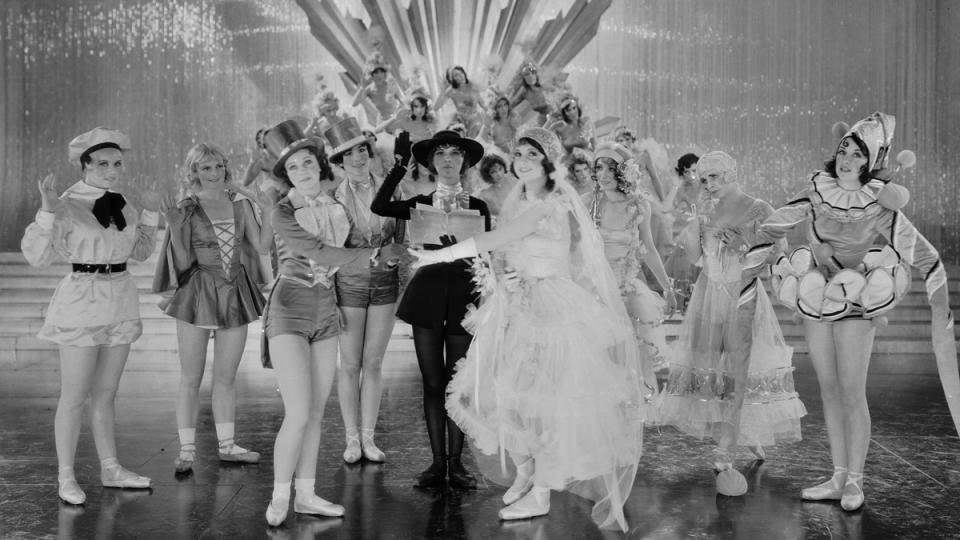
The Broadway Melody (MGM)
The competition wasn’t astounding at the second Academy Awards, as the industry struggled to adapt to a new era of synchronized sound. Thus, a film like The Broadway Melody — a sound-packed melodrama about two sisters who dream of an acting career, torn apart by their mutual love for a cad of a songwriter — managed to stand out against the other nominees. But it’s a thin film, and the romance isn’t very convincing. In retrospect maybe some of the other nominated films, like the clever thriller Alibi or the subtextually queer Western In Old Arizona, had more going for them. (Then again, maybe not. It really wasn’t a great year.) — William Bibbiani
95. Cimarron (1929)
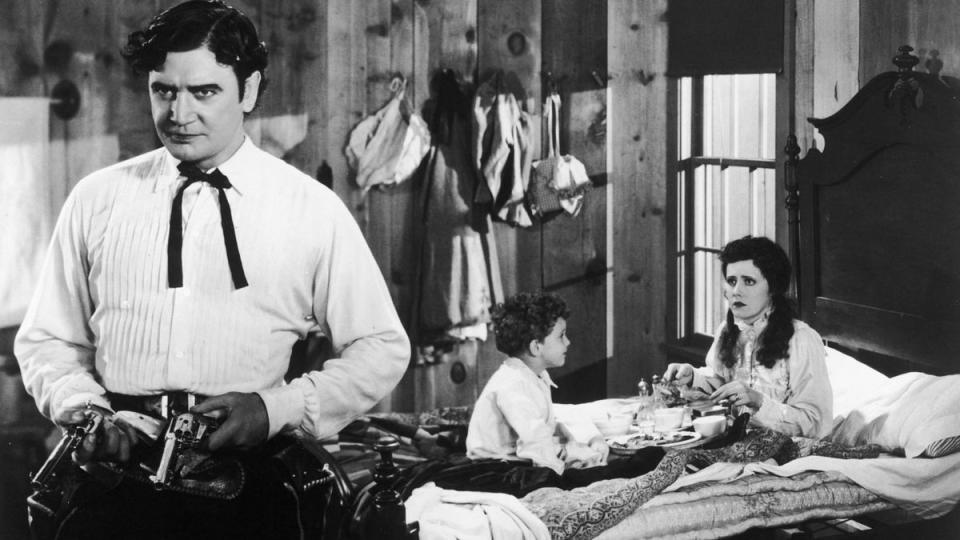
Cimarron (RKO Radio)
The first Western to win the Best Picture Oscar (and the only one to win until Clint Eastwood’s Unforgiven six decades later) is an ambitious technical achievement, capturing the rise of a frontier boom town from nothingness into an urban sprawl. At the center is, at least on paper, a fascinating story about Yancy (Richard Dix), a heroic man with wanderlust, his conservative wife Sabra (Irene Dunn), and how they evolve — and get lost — in an increasingly progressive American society. But after a thrilling opening land grab sequence, it’s boring. Staggeringly boring. And to think, it was up against the quick-witted and cynical The Front Page and the funny, smart, and emotionally powerful Skippy, both of which make a grander impact despite their smaller scale. — W. Bibbiani
94. The Great Ziegfeld (1936)
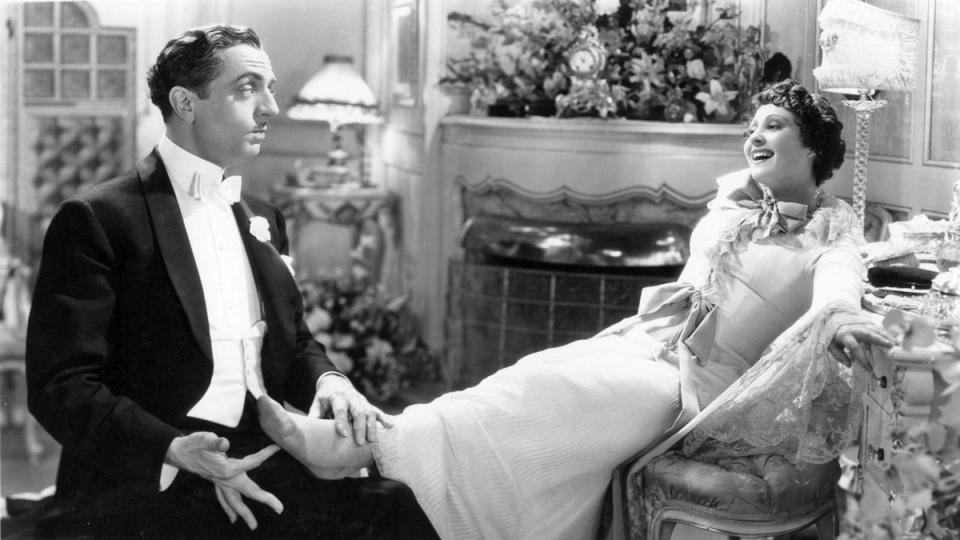
The Great Ziegfeld (MGM)
In the earliest days of the Oscars, the winners were decided by a tiny pool of voters and tended to be dominated by films by Metro-Goldwyn-Mayer. The Great Ziegfeld was pure MGM: huge set-pieces, an inspirational true-life story, and eye-watering musical showstopper — a costly endeavor with over a thousand people working on the production. You definitely see every cent on-screen in this highly sanitized musical biopic of the theatrical impresario Florenz “Flo” Ziegfeld Jr., but at three hours long, it’s a total slog, over-reliant on clichés and nowhere near as magical as other musicals of the era. At least the costumes are gorgeous. — Kayleigh Donaldson
93. Tom Jones (1963)
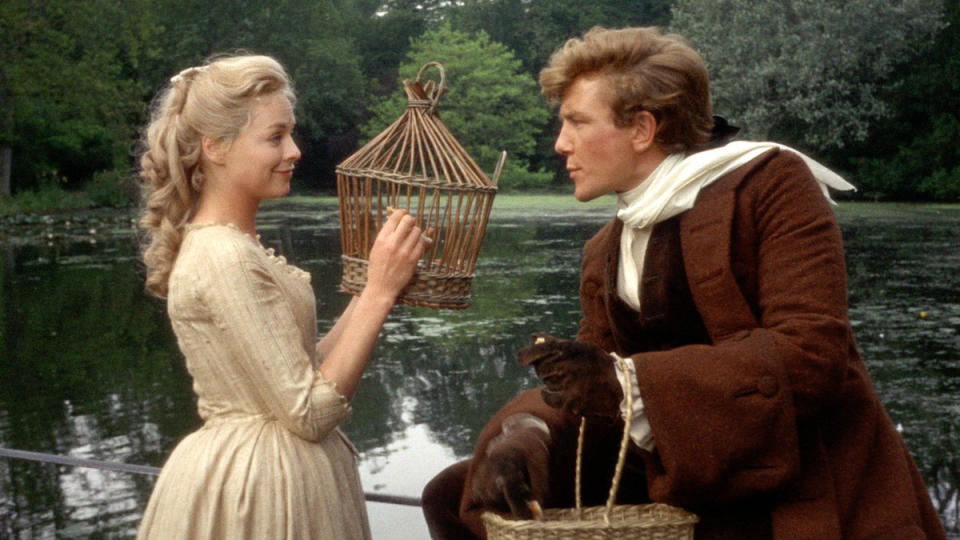
Tom Jones (United Artists)
To understand why, exactly, a light social satire like Tom Jones might win Best Picture, sometimes the answer lies in its competition. The ’60s aren’t exactly considered a high point for American cinema; there are no shortage of masterpieces from that decade, but Hollywood productions in particular were in a bit of a rut that would last until young blood like Francis Ford Coppola, Bob Fosse, and Steven Spielberg revolutionized things in the ’70s. Thus, in 1964, the Albert Finney-starring comedy’s competition in the category that year included studio-killing flop Cleopatra — meanwhile perhaps the most lasting classic from that year, The Great Escape, wasn’t even nominated for Best Picture. Tom Jones is a fine enough time — Tony Richardson brings wild energy to the period setting, and what a scamp that Tom is! — but it’s not operating on the same level that so many of the other films on this list reach. — L.S. Miller
92. Green Book (2018)
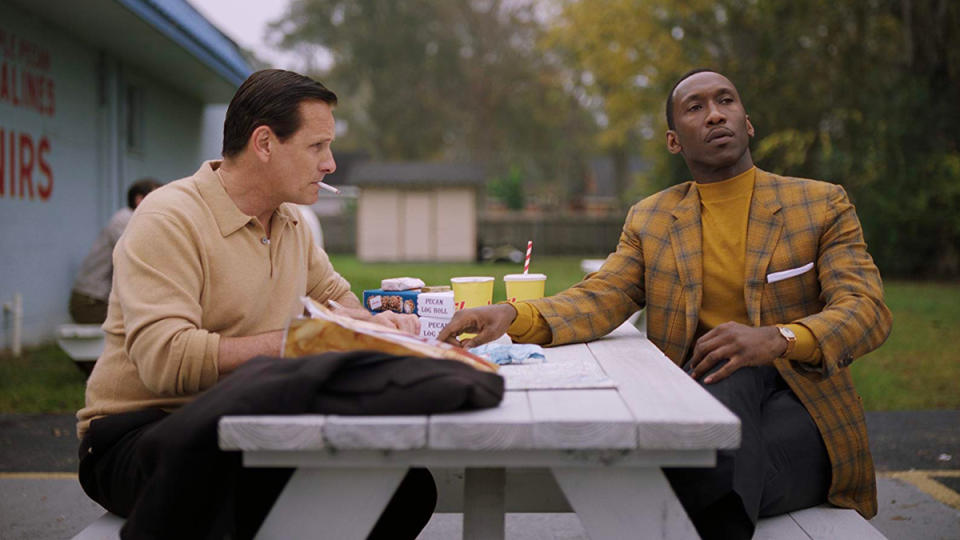
Green Book (Universal)
Let’s just get it over with: Green Book is not a great movie. Inspired by the 1962 travels of Black pianist Don Shirley and his white driver and bodyguard Frank “Tony Lip” as they toured the Deep South, featured stellar performances from Viggo Mortensen and Mahershala Ali, but the exceptionalism pretty much stops there. In addition to some very uncouth characterization of Shirley’s character, which garnered criticism for being stereotyped and lazy, Green Book also wades into the waters of a film depicting the “white savior” narrative, downplaying the unabashed racism of 1960s America to simply focus instead on the budding friendship between the two leads. It’s a disappointing Best Picture win, one that probably should have gone to Roma or BlacKkKlansman. — Cady Siregar
91. The Life of Emile Zola (1937)
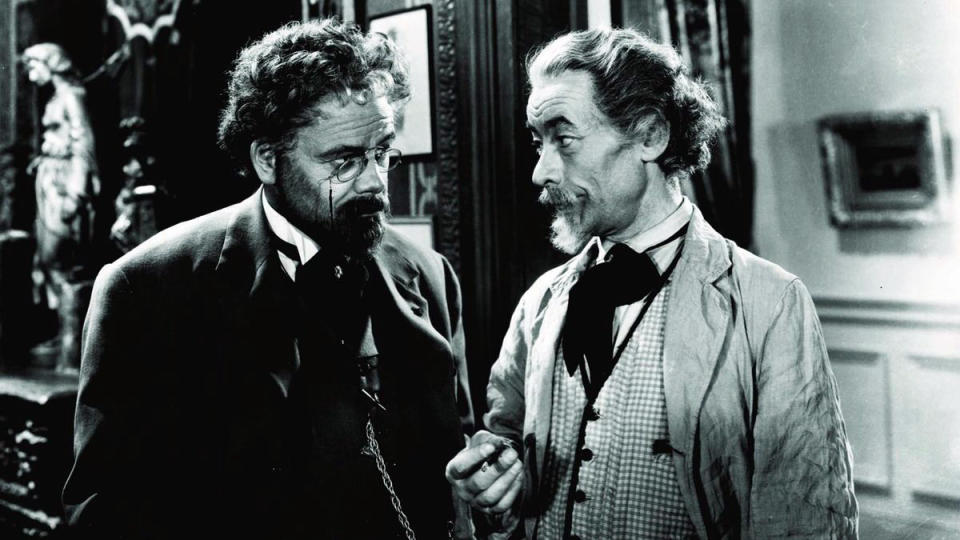
The Life of Emile Zola (Warner Bros.)
Celebrated in its day for its biographical depiction of the iconoclastic French writer, whose work defied social norms and shook the foundations of government, The Life of Emile Zola looks conventional and quaint by modern standards. But even at the time it was cowardly, completely ignoring Zola’s battles against antisemitism in an apparent attempt to stay out of 1930s politics and to avoid speaking out against the rise of the Nazi Party in Germany. Even if you can (somehow) set that aside, there were no shortage of superior, more exciting motion pictures in that year’s nominees, like the emotional coming-of-age tale Captains Courageous, the gorgeously photographed proto-noir Dead End, the crowd-pleasing One Hundred Men and a Girl, and the illuminating backstage ensemble Stage Door. — W. Bibbiani
90. Braveheart (1995)
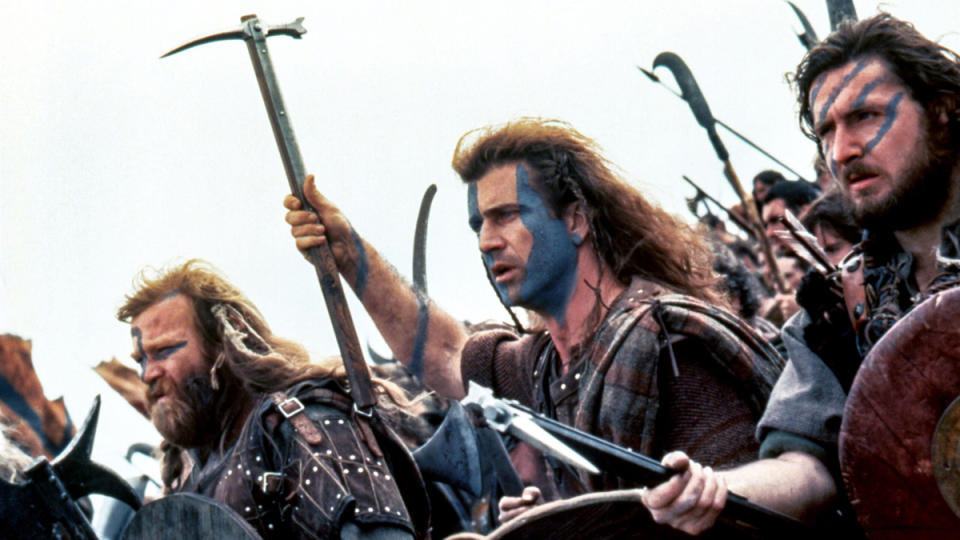
Braveheart (Paramount)
The Academy loves a historical epic, but Braveheart, for all of its technical prowess, is a staggeringly ahistorical mess that panders to the worst excesses of the genre. Mel Gibson’s take on the life of William Wallace includes the Battle of Stirling Bridge without the bridge, a ton of homophobic stereotypes with its depiction of Prince Edward, and an added romance with Isabella of France so that Mel could bed more than one lady in the narrative. Gibson does know his way around a fight scene, but its bastardizing of hugely important Scottish history for the sake of a wannabe superhero origin story/Gibson vanity project is tedious. — K. Donaldson
89. The Greatest Show on Earth (1952)
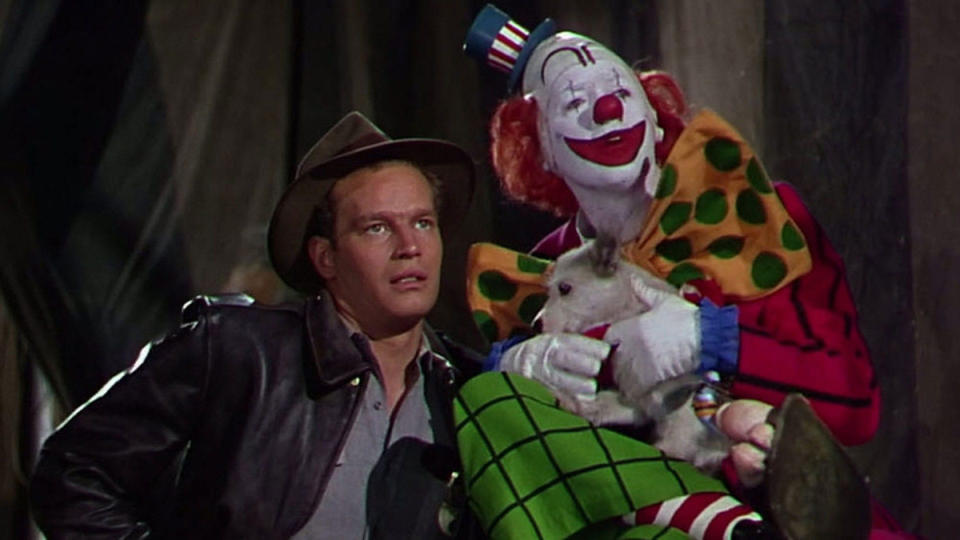
The Greatest Show on Earth (Paramount)
In 2022’s The Fabelmans, Steven Spielberg showcases Cecil B. DeMille’s winning film as the spark which inspires his young avatar to become a filmmaker, and when seen in full it’s easy to understand why the film would stand out in the imagination of a young boy. Packed with spectacle courtesy of the real-life Ringling Bros. and Barnum & Bailey Circus, which DeMille incorporated documentary-style into the action, The Greatest Show on Earth is light on plot, revolving largely around the love triangle that emerges between the circus’s two trapeze artists (Betty Hutton, Cornel Wilde) and the manager (Charlton Heston). But the film does feature a standout supporting performance by James Stewart as a clown with a terrible secret; really, its biggest crime is the fact that it won in the same year as High Noon, The Quiet Man, and the not-even-nominated Singin’ in the Rain. — L.S. Miller
88. Out of Africa (1985)
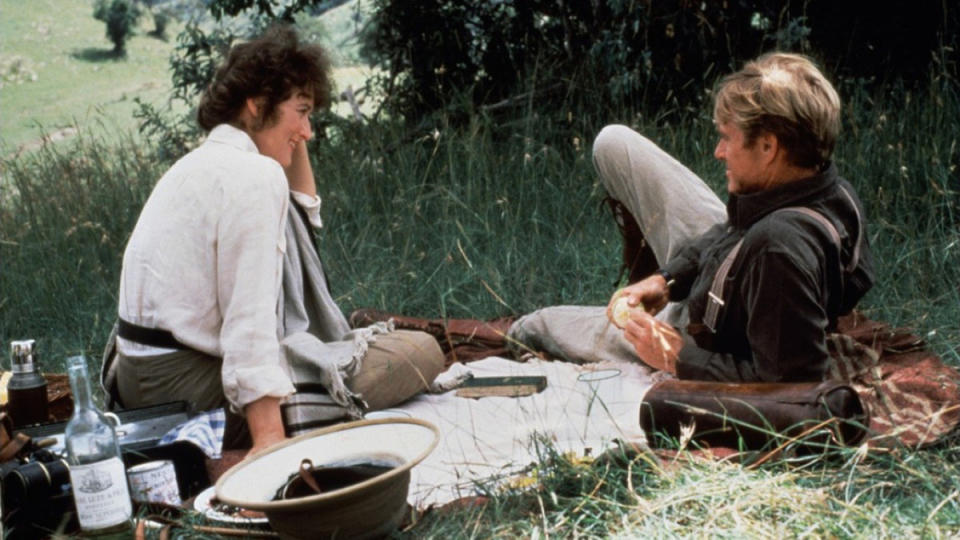
Out of Africa (Universal)
Not for the first time and not for the last, Academy voters mistook an epic running time and stunning cinematography for a movie with something to say. True, Meryl Streep is divine, and Robert Redford is as handsome and charming as ever. But take away the backdrop of colonialism and all you’re left with is a failing farm and a woman who falls in love with the wrong man three separate times. The 160-minute length is rough going compared to some of the sprightlier films on this list, and the awards it took home — including for Best Picture and Best Director — should rightly have gone to the cast instead. — Wren Graves
87. Around the World in 80 Days (1956)
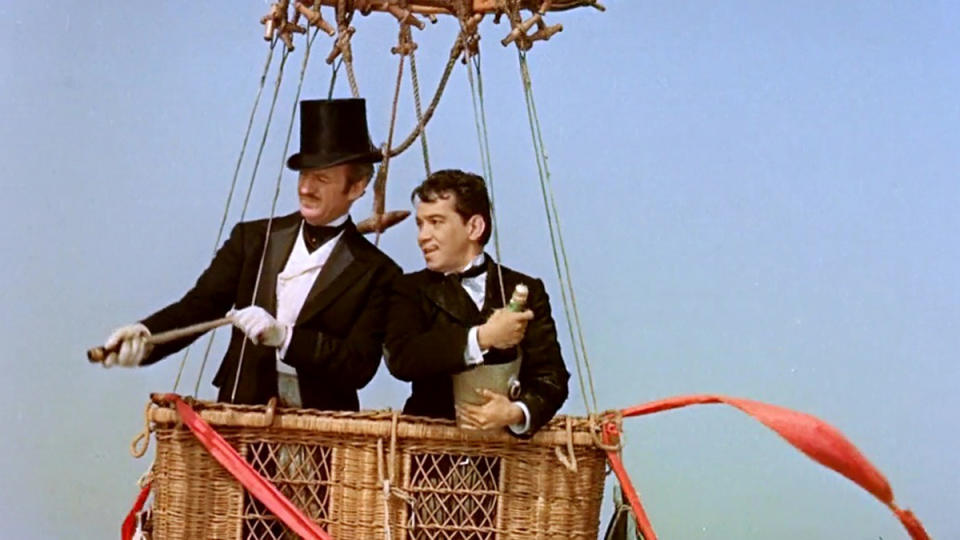
Around the World in 80 Days (United Artists)
The Oscars tend to lean towards honoring the “most” movie of each year, especially in earlier decades. Of the nominees at the 20th annual awards — including Giant, The King and I, and The Ten Commandments — Around the World in 80 Days definitely squeaks out a win for “most.” Epic in length, this pretty by-the-book adaptation of Jules Verne’s classic adventure novel, according to TCM, filmed in Paris, New Mexico, Colorado, Calcutta, Bangkok, Bombay, Chinchón, London, Mexico City, Pakistan, and more locations, with dazzling color cinematography making this half-adventure film, half-travelogue. While some elements have aged pretty badly (let’s just say casting Shirley MacLaine as an Indian princess is the tip of the iceberg here), the star-studded cast of dozens includes everyone from Sir John Gielgud to Noel Coward to Buster Keaton to Marlene Dietrich to Frank Sinatra. That’s probably why it won in its year, truth be told — every Academy member was probably friends with at least one of the actors featured. — L.S. Miller
86. Gigi (1958)
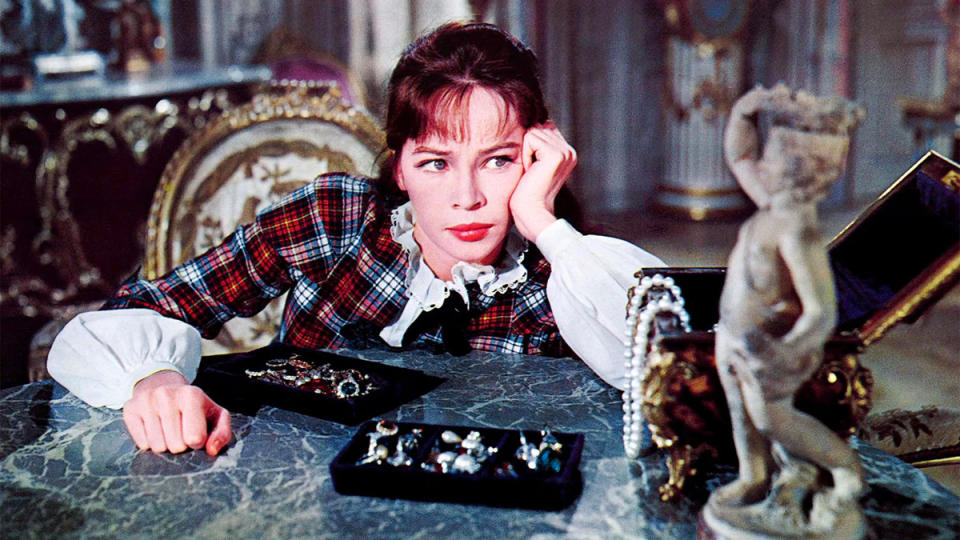
Gigi (MGM)
Brimming with charm and visual beauty, Gigi won all nine of its nominations in 1959, including Best Picture and Best Director — holding the record for biggest Oscar sweep until it was finally overtaken four decades later by Lord of the Rings: The Return of the King’s 11-trophy victory. Based in Paris at the turn of the century, watching Gigi is like taking a holiday through Europe condensed into two hours. However, Gigi’s visual charm does not make up for how poorly aspects of the film have aged, beginning with watching Gigi being trained by her family to become a courtesan at only 16 years old. The opening song, “Thank Heaven for Little Girls,” may also be the most problematic song featured in a Best Picture film to date. — Grace Ann Natanawan
85. Million Dollar Baby (2004)
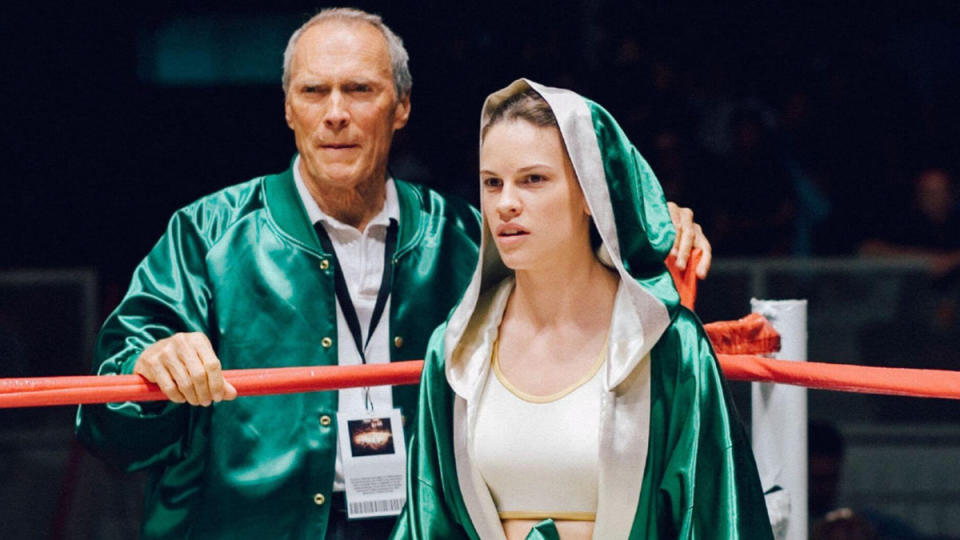
Million Dollar Baby (Warner Bros.)
Clint Eastwood, Morgan Freeman, and Hilary Swank could have made darning socks compelling — during one scene, they nearly did just that — and perhaps a story around ratty footwear would have been preferable to the dumpster fire of the final act. The injury that befalls boxer Maggie (Swank) may have resonated among the Hollywood crowd, who perhaps could not imagine living without their corporeal advantages. But the plot twist drew near universal condemnation from disability activists, besides thumbing its nose at the movie’s own themes. If Maggie couldn’t find meaning in her new chosen family, then did those relationships even matter? — W. Graves
84. American Beauty (1999)
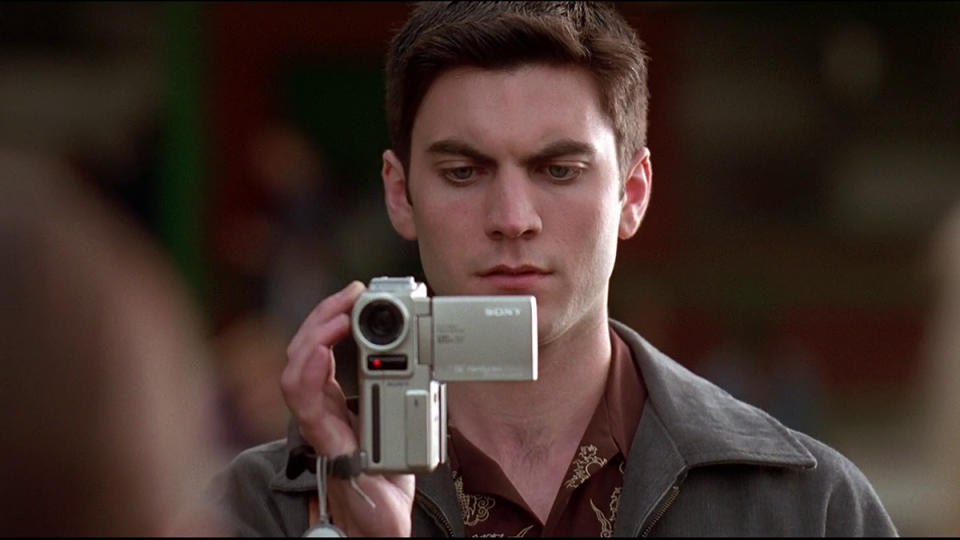
American Beauty (DreamWorks)
Whenever you talk about the most polarizing Best Picture winners, director Sam Mendes’ 1999 black comedy starring Kevin Spacey and Annette Bening tends to pop up. If you’re a fan of the film, you probably find that it’s a witty, provocative portrait of middle-class suburban malaise. If you’re not a fan, you’d say it’s a lot less deep than its admirers seem to think it is, content to bludgeon the audience with Metaphor and Symbolism and Motifs. It’s definitely a film for people who find plastic bags blowing in the wind to be devastatingly beautiful. American Beauty may have lost some of its initial sheen over the past two decades (not to mention it’s a film that’s anchored by an accused sex abuser), but it remains a cinematic encapsulation of pre-9/11 America, imperfect but still capable of driving conversation. — Spencer Dukoff
83. Going My Way (1944)
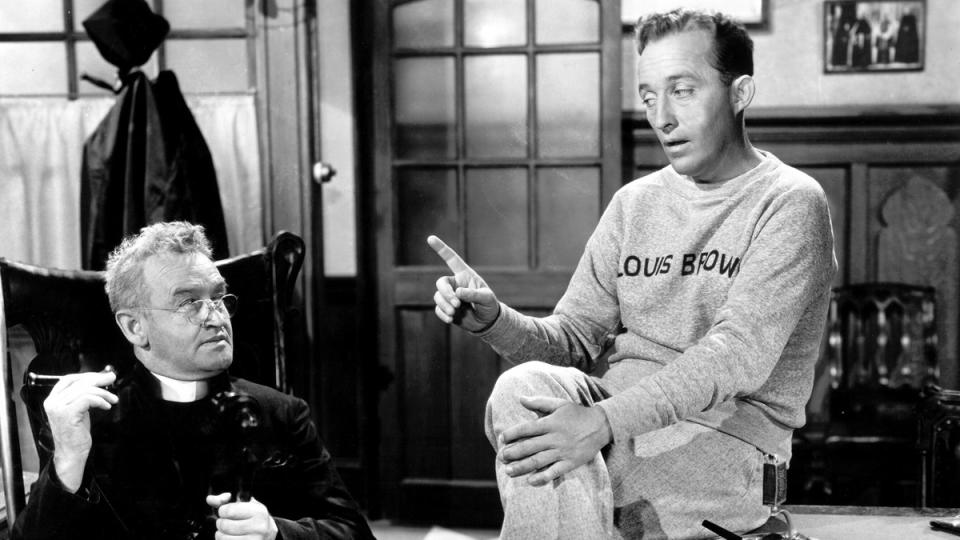
Going My Way (Paramount)
Bing Crosby plays a hip, young Catholic priest bringing the 20th century to an old-fashioned church, and to an aging colleague whose antiquated ways aren’t helping his community. Going My Way is a feel-good film, perfectly amiable and remarkably slight, overshadowed a bit by its superior sequel, The Bells of St. Mary’s (which was also nominated for Best Picture, but lost to Billy Wilder’s The Lost Weekend). It also doesn’t hold a candle to the two classic thrillers it competed against: Double Indemnity and Gaslight. At least it’s better than the fusty and interminable presidential biopic Wilson, which somehow tied Going My Way for the most nominations in 1944. — W. Bibbiani
82. Driving Miss Daisy (1989)
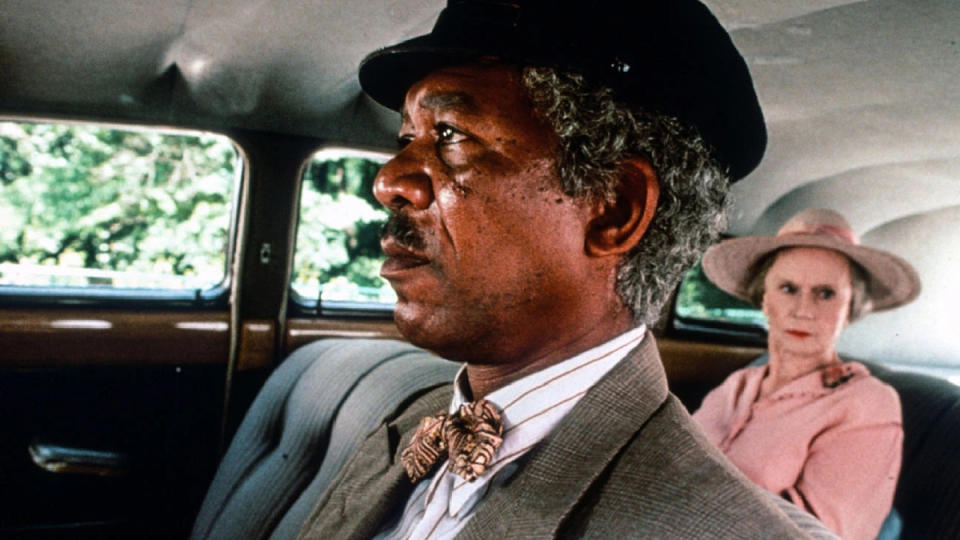
Driving Miss Daisy (Warner Bros.)
The Academy crowned Driving Miss Daisy as Best Picture in the same year that Spike Lee’s Do the Right Thing was eligible for the top prize. While the latter tackles race with bracing honesty, the former feels quaint and conservative. Much like 2018’s Green Book, it’s a film about race that makes white people feel comfortable (and both happen to feature a Black person and a white person driving in a car as the central setting, albeit in different configurations). You can’t knock the performances by Morgan Freeman and Jessica Tandy (who took home a statuette for Best Actress), but it’s tough to make a case that the last PG-rated movie to win Best Picture belongs among the cream of the crop on the rest of this list. — S. Dukoff
81. How Green Was My Valley (1941)
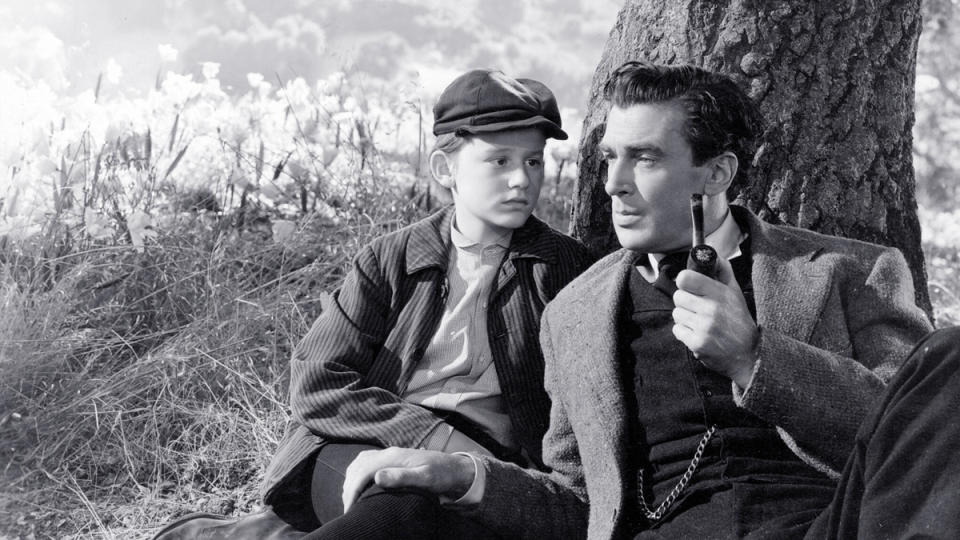
How Green Was My Valley (20th Century Fox)
The greatest crime How Green My Valley commits isn’t heavy-handed storytelling, although there’s plenty of that. No, its greatest crime was winning Best Picture in a year when Citizen Kane and The Maltese Falcon were also nominated. While we’re at it, The Little Foxes, long forgotten by most audiences today, is a shockingly vicious tragedy that holds up better than John Ford’s Welsh coal mining melodrama on almost every level. But this isn’t a bad film, just an overbearing one, with real criticisms about the abuses of industry against the working man, and a fine performance from a young Roddy McDowall. –– W. Bibbiani
80. Forrest Gump (1994)
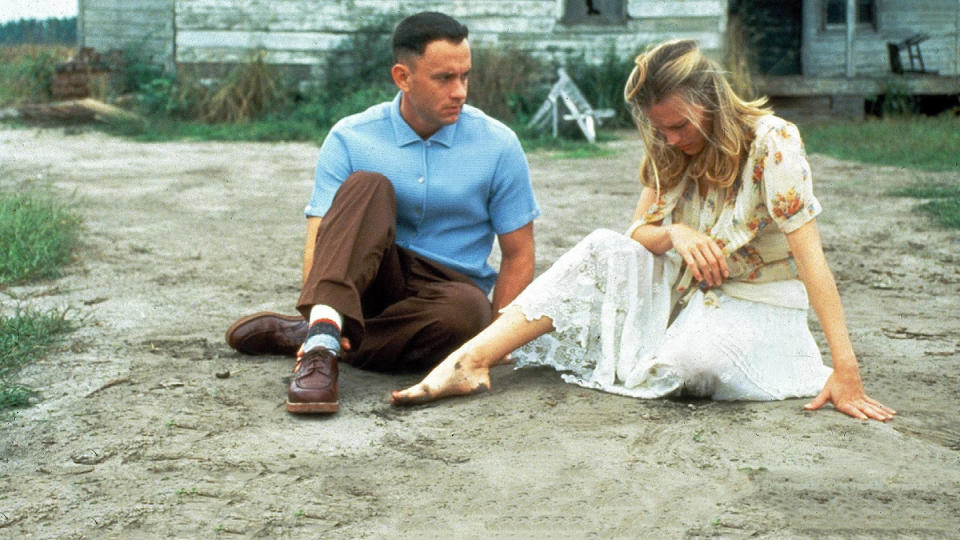
Forrest Gump (Paramount)
Whether Robert Zemeckis’ history-bending, sweeter-than-chocolate Tom Hanks showcase endears you or not, Forrest Gump stands as a towering movie in Oscar history. With a whopping 13 nominations and five wins, including Best Picture, Best Director, Best Actor, and Best Adapted Screenplay, the film is incredibly decorated. Now, should it have necessarily beat The Shawshank Redemption or Pulp Fiction? Well, at the risk of sounding like a freshman-year film major, all we’ll say is that the path of the righteous man is beset on all sides by the iniquities of the… — Jonah Krueger
79. Cavalcade (1933)
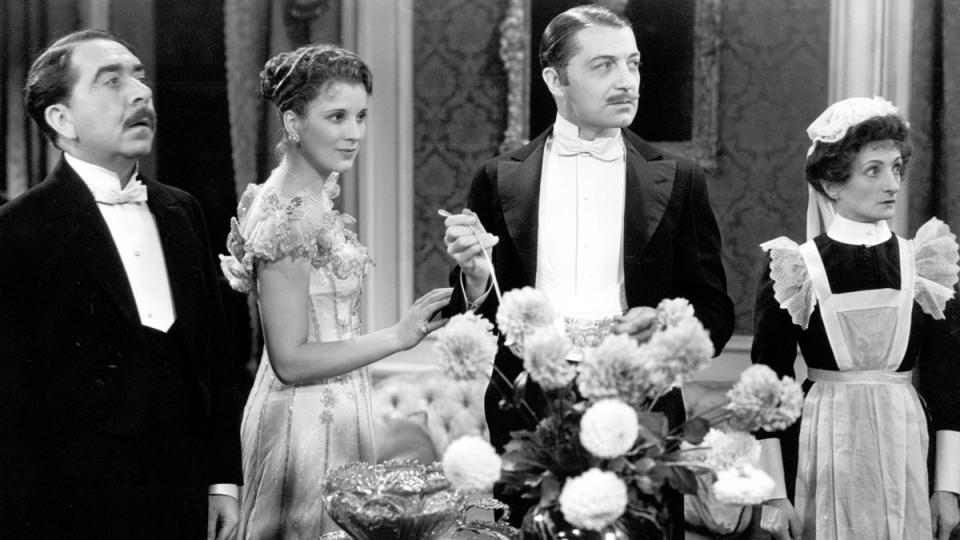
Cavalcade (Fox)
Thirty years in the life of an English family fly by in Frank Lloyd’s classic, which stands out from other winning war pictures of the era with its emphasis on life at home during major events like the Boer War and World War I. It’s a strong concept and Noël Coward’s script handles the passing of time well, but the drama veers too hard into melodrama at certain points, and the characters aren’t deep enough to make the story as engaging as it could be. There were some other strong contenders nominated that year, as well — A Farewell to Arms, Little Women, She Done Him Wrong — but this isn’t the worst mistake the Academy has made over the years. — L.S. Miller
78. Slumdog Millionaire (2008)
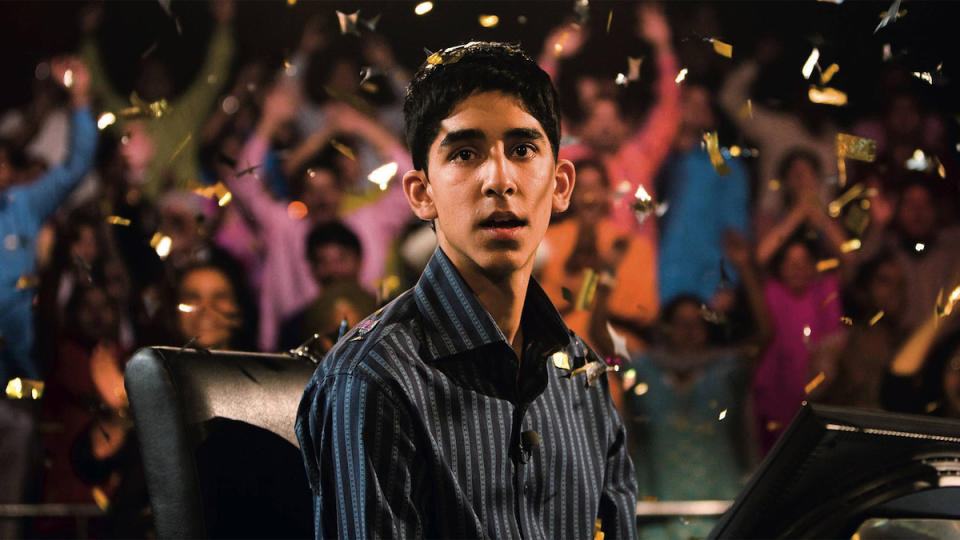
Slumdog Millionaire (Fox Searchlight)
Directed by Danny Boyle, the vibrant Slumdog Millionaire was the big winner at the 81st Academy Awards in 2009, nominated for 10 Academy Awards and winning eight. (This was the final year in recent memory in which only five films were nominated for Best Picture; The Academy expanded to 10 Best Picture nominations the following year, due to controversy regarding The Dark Knight and WALL-E being snubbed for nominations.) While receiving critical acclaim in the West, at the time of its release several notable Indian filmmakers commented on how the film borders on poverty porn and feels exploitative in nature. Such concerns mean that Slumdog Millionaire has become less enjoyable to revisit in recent years. — G.A. Natanawan
77. Chariots of Fire (1981)
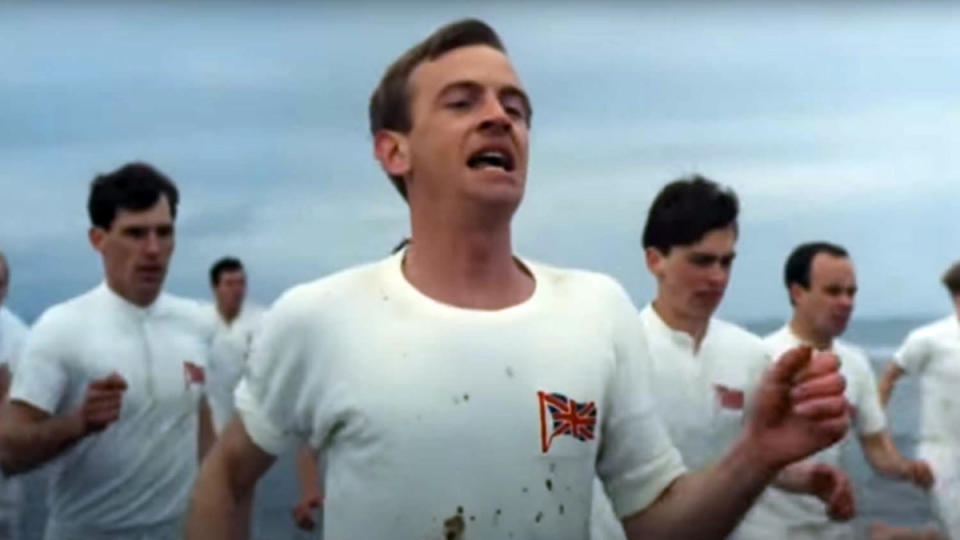
Chariots of Fire (20th Century Fox)
Everyone knows the Vangelis score that defines Chariots of Fire, but the film it supports gets less attention these days. This biographical drama about two runners trying to overcome prejudice in the lead-up to the 1924 Olympics is the epitome of a sturdy, respectful British prestige film. There’s elegance in its simplicity, although it feels creaky in points that leave the fascinating material in the lurch — watch it for some scene-stealing work by Ian Holm and that score, but it’s tough to justify this Best Picture win over the likes of Reds and Raiders of the Lost Ark. — K. Donaldson
76. Grand Hotel (1932)
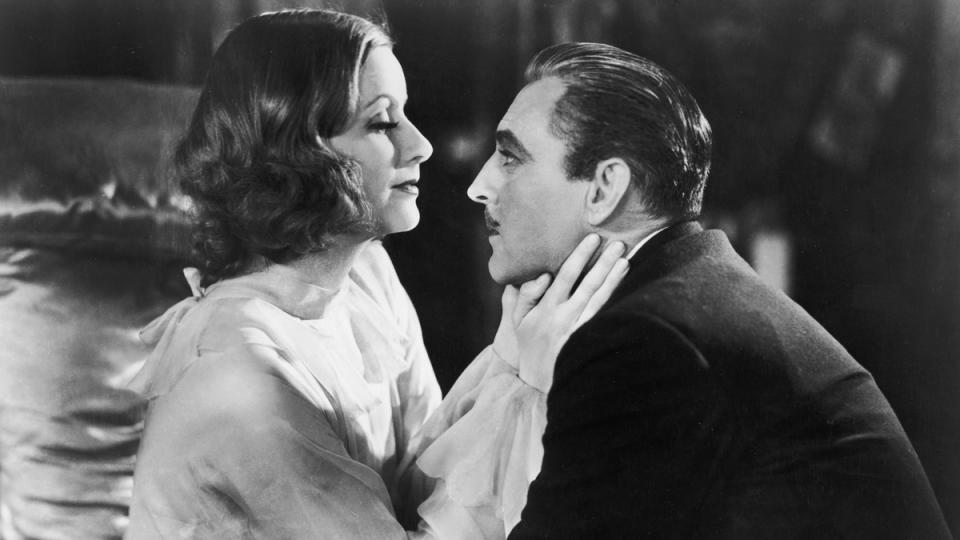
Grand Hotel (MGM)
Crime! Drama! Betrayal! Intrigue! Although Grand Hotel dates all the way back to 1932, many of its themes still feel relevant. The film, which stars Greta Garbo and Joan Crawford, competed at the fifth Academy Awards, and, despite a cast whose names still carry weight, has faded a bit into obscurity. One accolade Grand Hotel could very well hold forever is that this movie is the only Best Picture winner to not be nominated in any other category: As the awards show has evolved in the nearly hundred years since Grand Hotel, campaigns often gain momentum through the packaging of a film as a whole — the actors, production, script, and direction keep a film in the conversation. On that level alone, there might not ever be a Best Picture winner like Grand Hotel again. — Mary Siroky
75. Wings (1927)
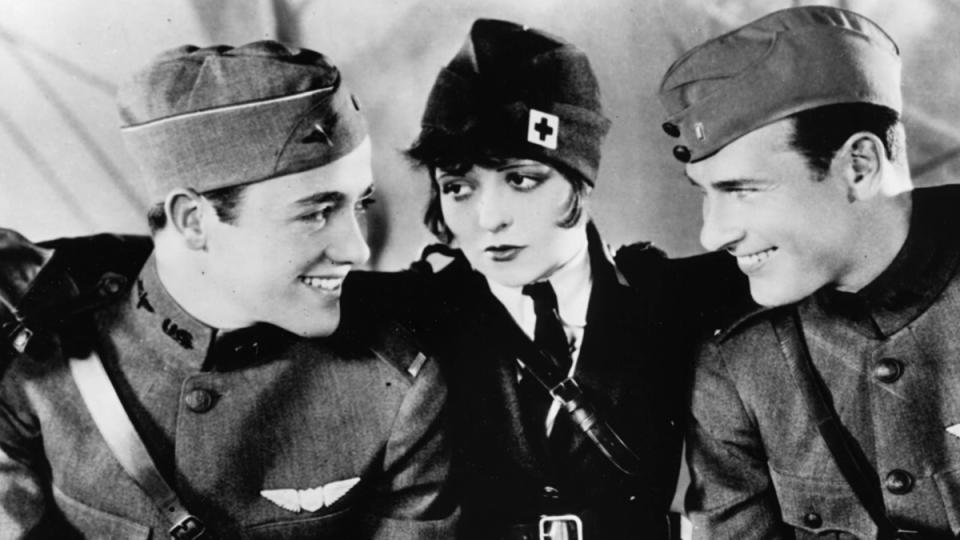
Wings (Paramount)
Wings might be the first film to officially win the award for Best Picture (the other big winner of that first ceremony, Sunrise, officially won for being that year’s “Unique and Artistic Picture”). But what’s most fascinating about it is that it’s exactly the kind of film Hollywood still loves to make: a big war epic with a sweeping romance at its center. And it’s much more solid than so many of its imitators. (I’d rather watch Wings again than, say, Michael Bay’s Pearl Harbor.) Plus, the star power of Clara Bow still shines brightly after all these years; her plucky performance as an ambulance-driving girl next door gives this film an essential emotional anchor. — L.S. Miller
74. You Can’t Take It with You (1938)
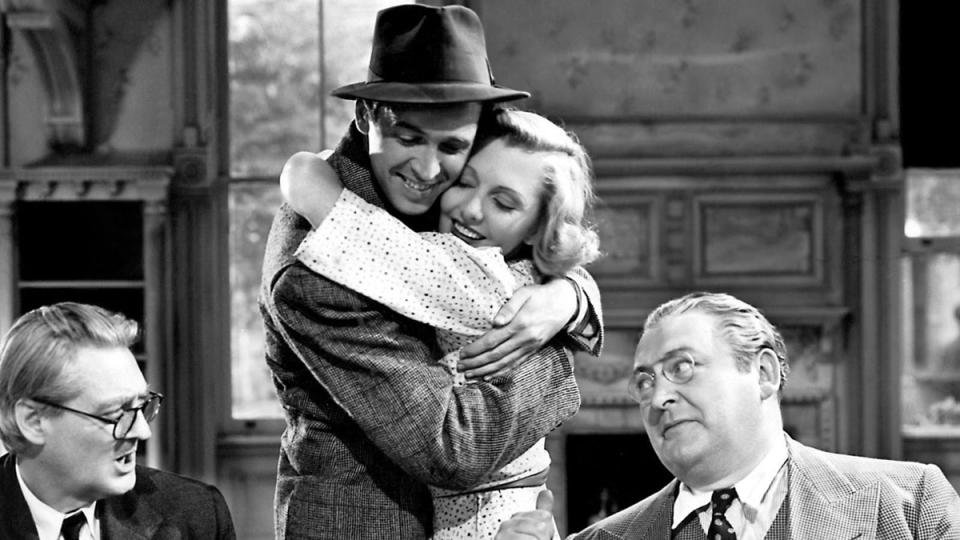
You Can’t Take It With You (Columbia)
Years before It’s a Wonderful Life would cement his legacy as America’s foremost purveyor of cinematic wholesomeness, Frank Capra would cultivate his homespun charm with this adaptation of the 1936 play about a young banking scion (James Stewart) who falls for his charming secretary (Jean Arthur) — only to contend with her too-quirky-by-half family. It’s got screwball verve in spades, but it’s maybe one of Capra’s lesser efforts by comparison. Plus, it beat out Jean Renoir’s masterpiece Le Grand Illusion, an early portent of the Academy’s overall aversion to awarding the big prizes to anything that isn’t in English. — Clint Worthington
73. A Beautiful Mind (2001)
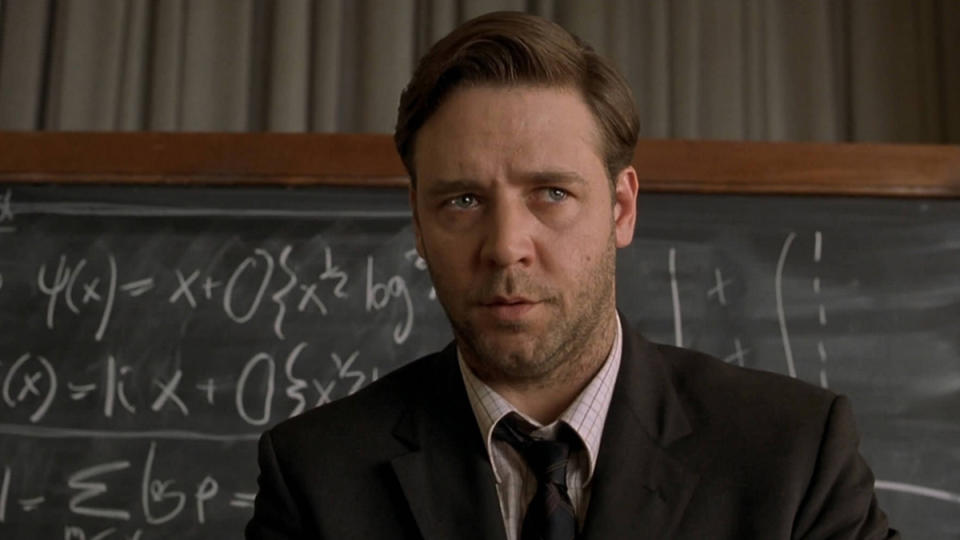
A Beautiful Mind (Universal)
Maybe A Beautiful Mind wasn’t the most accurate depiction of its real-world subject, but when has that ever stopped the Academy from showering a film with awards? Russell Crowe, Ron Howard, and company went into Hollywood’s biggest night with an impressive eight nominations and managed to walk away with four golden statues, including Best Picture. And given the swath of worthy motion pictures that weren’t nominated for Best Picture that year (Donnie Darko, Mulholland Drive, The Royal Tenenbaums, Spirited Away, Amélie), why not throw it to A Beautiful Mind? — J. Krueger
72. My Fair Lady (1964)
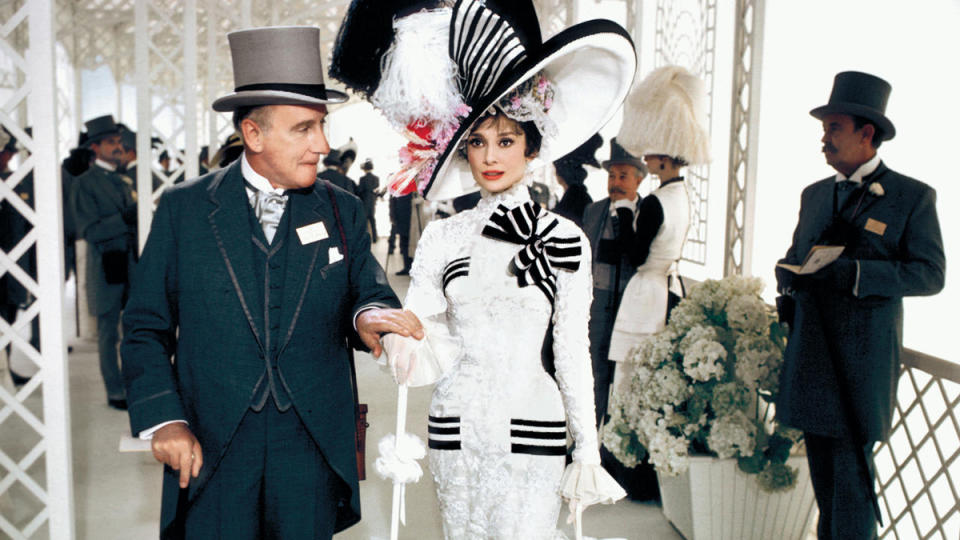
My Fair Lady (Warner Bros.)
Starring Audrey Hepburn and directed by George Cukor, the 1964 musical comedy My Fair Lady won eight Academy Awards including Best Picture, Best Director, and Best Actor for Rex Harrison’s portrayal of Professor Henry Higgins. Adapted from the 1956 stage musical, the film became the second highest-grossing film of 1964, which perhaps helped it beat fellow nominees Mary Poppins and Stanley Kubrick’s Dr. Stangelove for the top prize. Hepburn charms in her performance and the musical numbers remain captivating and pleasant. However, with a runtime of two hours and fifty-five minutes, My Fair Lady trudges through its scenes at a lethargic pace. — G.A. Natanawan
71. The English Patient (1996)
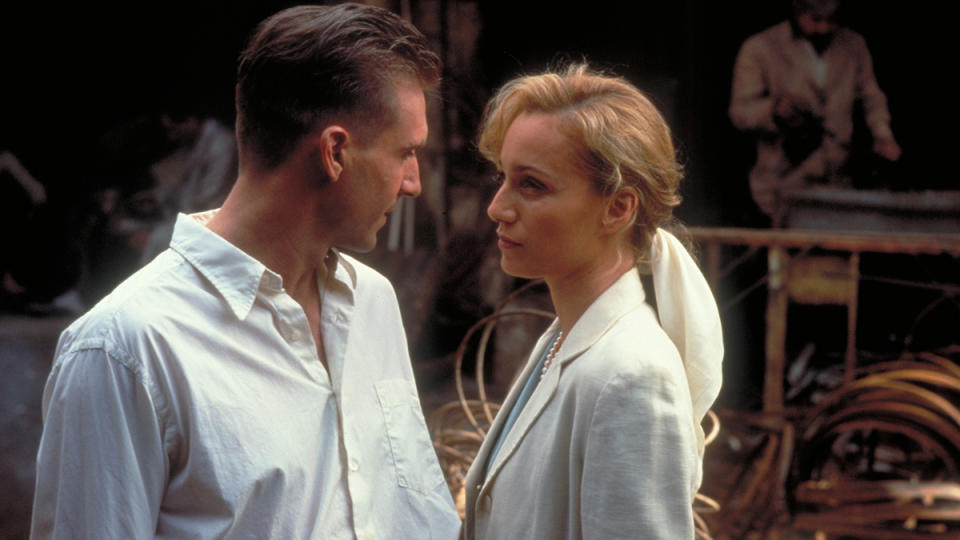
The English Patient (Miramax)
Every now and then, who doesn’t enjoy a love story that spans continents, challenges, and the test of time? The English Patient boasts an all-star cast, including Ralph Fiennes, Juliette Binoche, Willem Dafoe, Naveen Andrews, and Colin Firth, but, even so, isn’t one of the buzziest Best Picture victors. At the 69th Academy Awards, The English Patient beat out Jerry Maguire and Fargo for the top prize, but today, of those three films, it’s probably not the movie most people would point to as the “best.” — M. Siroky
70. Gentleman’s Agreement (1947)
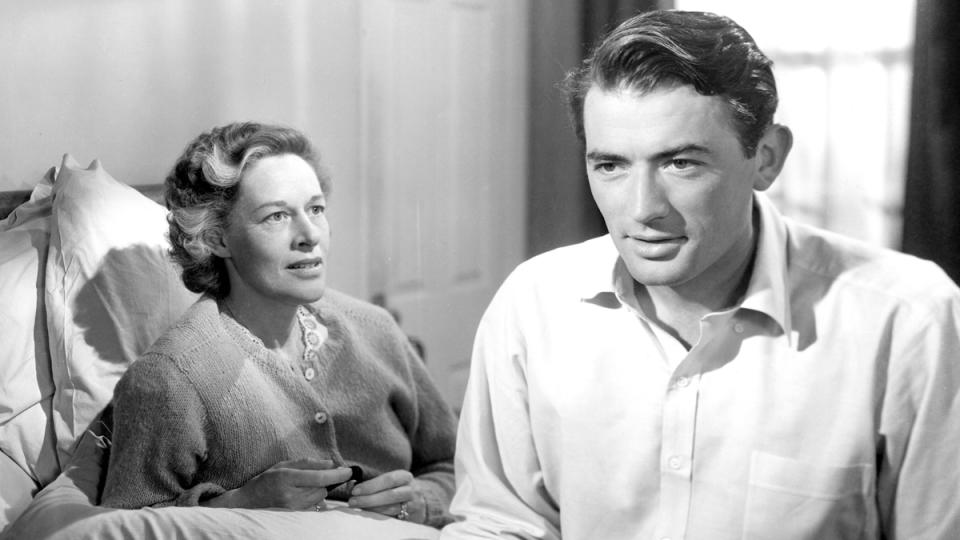
Gentleman’s Agreement (20th Century Fox)
A rare example of the early Oscars recognizing a movie focused on social issues — in this case, the overt and subtle ways anti-semitism creeps into society. Elia Kazan doesn’t bring too many filmmaking flourishes to the story of a journalist (Gregory Peck) going undercover as a Jewish man, but while the approach is straightforward, its subject matter was groundbreaking for the time. Today, it holds up less well, but Peck more than ably proves why he’s one of film history’s greatest leading men. Fun fact: The boy playing Peck’s son? Why that’s future Quantum Leap and Battlestar Galactica star Dean Stockwell! — L.S. Miller
69. All the King’s Men (1949)
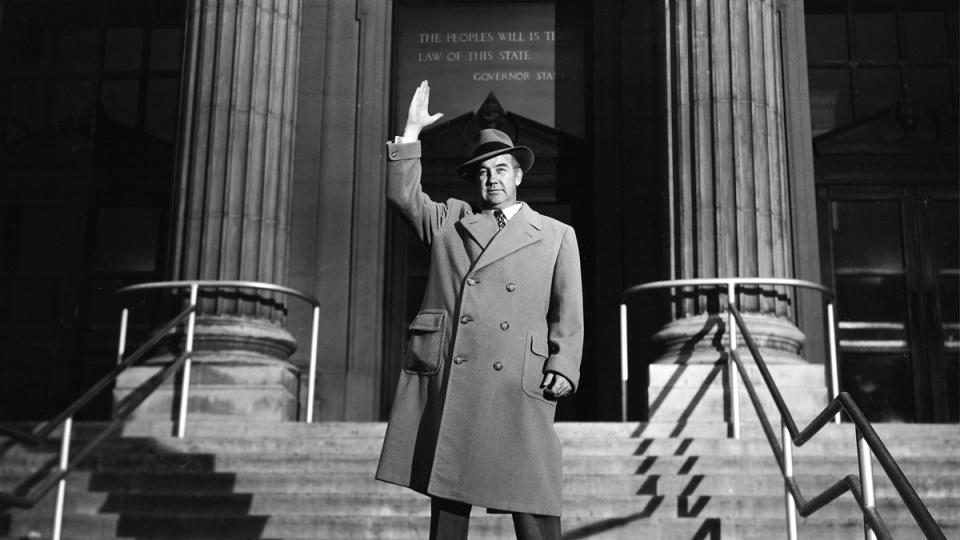
All the King’s Men (Columbia)
All The King’s Men chronicles the rise of populist politician Willie Stark in the 1930s Deep South, modeling the character of Stark directly off real-life U.S. Senator Huey P. Long. Based on the 1947 Pulitzer Prize-winning novel by Robert Penn Warren, the film was directed by Robert Rossen, who was blacklisted by Hollywood studios after appearing before the House Un-American Activities Committee as an accused Communist (he later named 57 current or former Communists in order to end the blacklisting). Few films have been able to explore power, class, and corruption so incisively, and the film holds up as a stirring, dark journey into the depths of the American psyche. — S. Dukoff
68. Patton (1970)
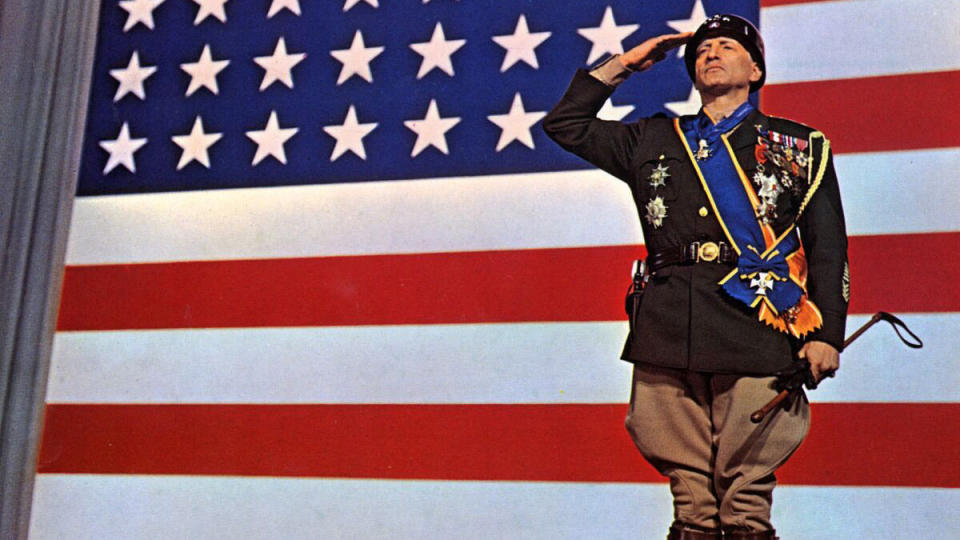
Patton (20th Century Fox)
For the modern viewer, the big draw of Patton is the script, co-written by Francis Ford Coppola (whose name will be showing up a few more times on this list), as well as a thoroughly committed performance from George C. Scott. Scott famously refused to accept his award for Best Actor, but definitely deserved the recognition, tearing into the titular general’s thirst for combat in a performance that still remains one of the all-time greats in ways that were interpreted as anti-war upon its release. But through modern eyes, it’s surprisingly more neutral than that, especially given the setting of World War II; it’s not that Patton doesn’t care about the cause he’s fighting for, it’s that he loves the fundamentals of wartime just a little bit more. At the 43rd Oscars, it faced competition from Robert Altman’s M*A*S*H and tragic romance Love Story, but once again the Academy’s love of “most movie” won out, because the movie and the man have one thing in common: They were both a lot. — L.S. Miller
67. The Last Emperor (1987)
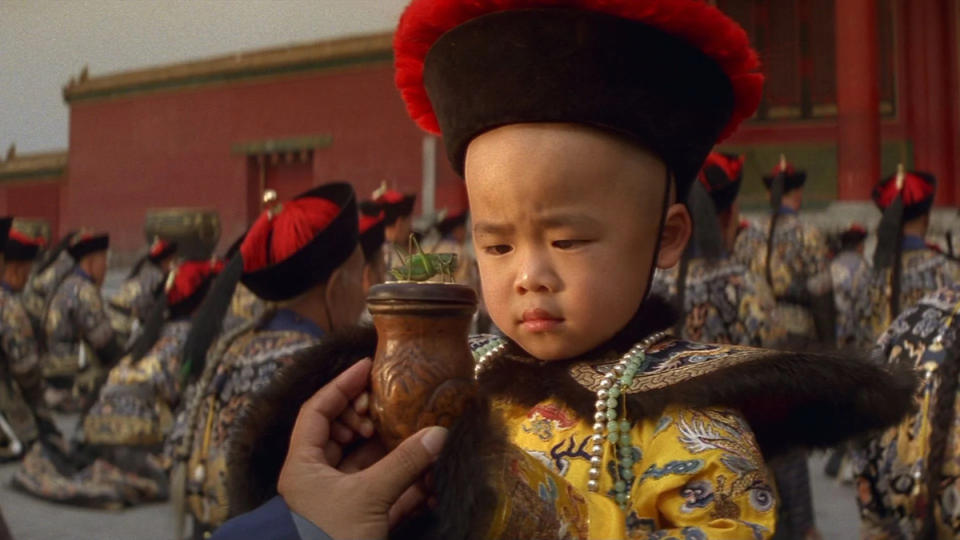
The Last Emperor (Columbia)
For my money, better nominees like Broadcast News and Moonstruck could have easily stolen the Oscar away from Bernardo Bertolucci’s historical epic. But there’s no denying the sheer scope of craftsmanship on display in The Last Emperor, a vivid and heartbreaking biopic about China’s boy emperor Pu Yi. Its lush presentation, courtesy of Vittorio Storaro’s honeyed cinematography and Ferdinando Scarfiotti’s pitch-perfect recreation of the Forbidden City, belies a tragic tale of a boy raised to rule, only to be torn apart by the winds of political change. It can teeter on Orientalism (being a Chinese drama filmed in English to satiate Western sensibilities), but it’s still a stunning work of film craft. – C. Worthington
66. An American in Paris (1951)
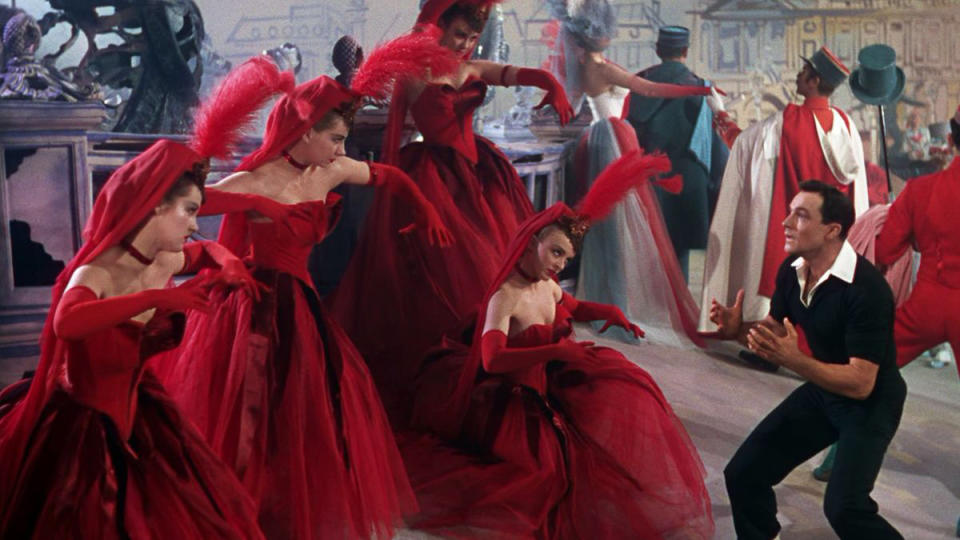
An American in Paris (MGM)
The iconic music of Gershwin and the athletic movement style of Gene Kelly are a match made in heaven. While it’s not Kelly’s most well-known film (that would have to be Singin’ in the Rain), it might very well be his most romantic — the “dream ballet” opposite Leslie Caron is hypnotic, gorgeous, and iconic, a dialogue-free sequence that runs for seventeen minutes with the kind of patience and focus some modern films should perhaps consider emulating. While this is the climax of the movie, don’t sleep on the “I Got Rhythm” sequence, almost unbearable in how adorable it is. A bit surprisingly in retrospect, An American in Paris beat out A Streetcar Named Desire for Best Picture at the 24th Academy Awards. Marlon Brando couldn’t even catch a break in the Best Actor category, where the award went to Humphrey Bogart for The African Queen. — M. Siroky
65. Mrs. Miniver (1942)
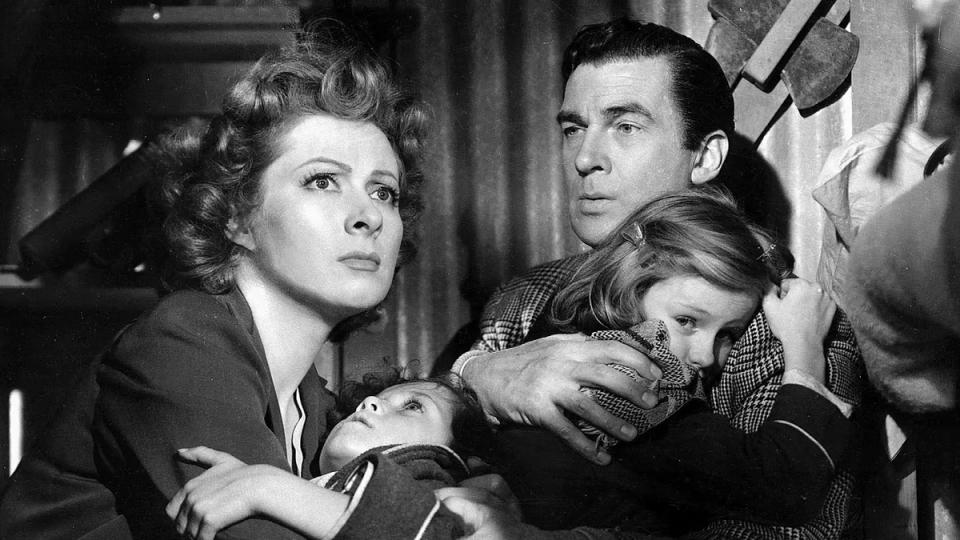
Mrs. Miniver (MGM)
Despite having more Best Director nominations than anyone else, William Wyler has become weirdly underrated in recent decades: The king of dramatic nuance and literary adaptations during the Golden Age had a run of hits that lasted for over 20 years. Mrs. Miniver may not be the peak of that, but it’s respectable stuff. Released in the midst of World War II, it follows the eponymous housewife as she tries to hold her family together during falling bombs and a potential Nazi invasion. Credited with inspiring major American support for the Brits before Pearl Harbor, Mrs. Miniver is certainly too sentimental for its own good, but mightily effective as a tale of family fortitude amid impossible circumstances. — K. Donaldson
64. A Man for All Seasons (1966)
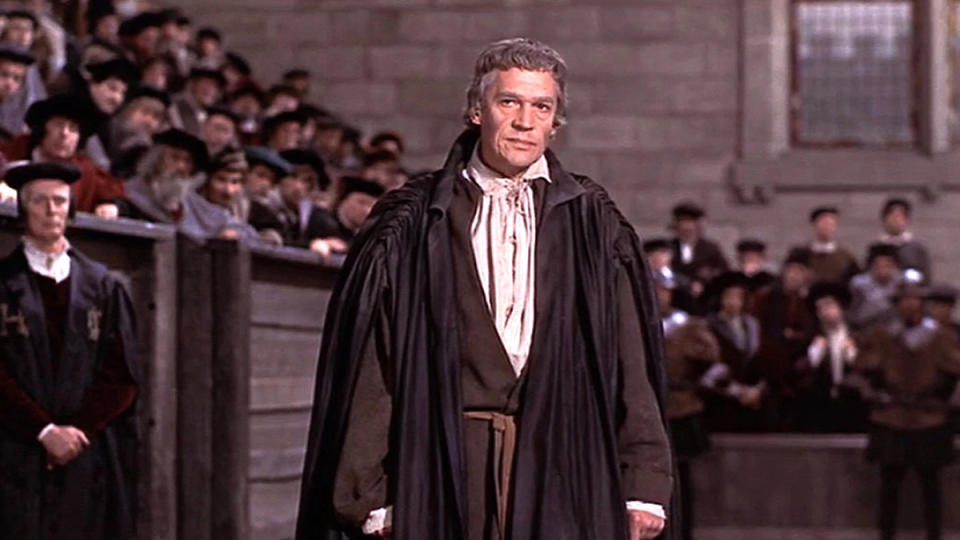
A Man for All Seasons (Columbia)
Fred Zimmerman’s British period piece is just as relevant today as it was in 1966. That sounds cliché, but that doesn’t make the statement false. Beyond its all-star cast, its costumes, or the way Zimmerman balances humor, drama, and subtle dread, A Man for All Seasons is all about political corruption: Specifically, the film illustrates how far a powerful person might go to rewrite laws and put their illegal actions on the right side of the law. Sir Thomas Moore (Paul Schofield) stands as the one incorruptible person in King Henry VIII’s (Robert Shaw) way, and he remains an obstacle despite everything taken from him in the process. A Man for All Seasons not only won Best Picture, but took home Oscars in five other categories as well. If the movie came out today, there’s a good chance we’re looking at the same results. — Marcus Shorter
63. Mutiny on the Bounty (1935)
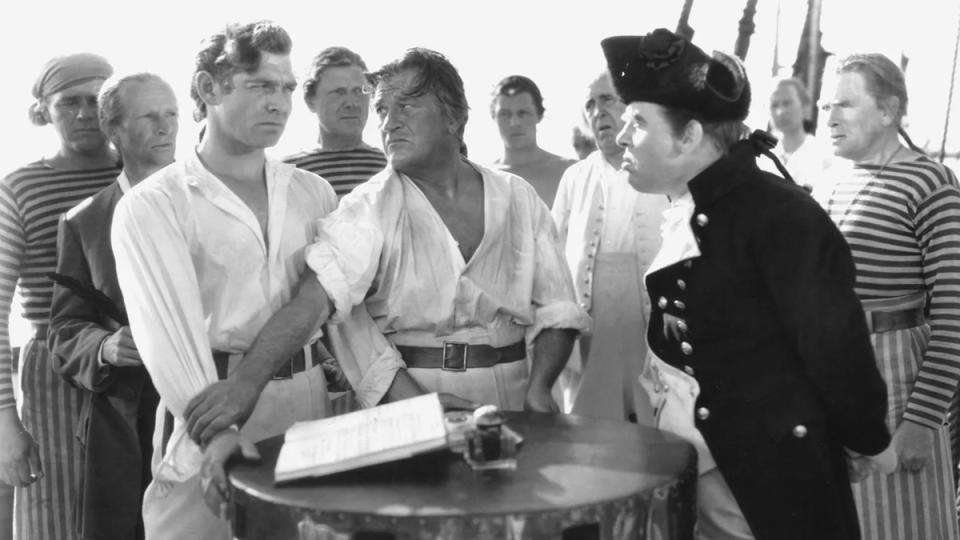
Mutiny on the Bounty (MGM)
Arguments over historical accuracy or fidelity to source material often take up a lot of oxygen. Mutiny on the Bounty represented a time when studios and creative types alike cared less about the details than they did entertaining the audience with something fit for the screen. Put another way, Frank Lloyd’s flick didn’t let the truth get in the way of a good story. Starring Clark Gable when he was untouchable in star power, Mutiny on the Bounty perfectly matched the mid-1930s zeitgeist, with the Great Depression almost in the rearview mirror but anger at the powerful still palpable. When Gable’s Fletcher Christian goes against William Bligh (Charles Laughton) for the way Bligh treats his crew and their miserable living conditions, he’s speaking for an entire fed-up nation. Some Best Pictures nominees win on their craft. Some win based on sheer star power and spectacle. But a film like Munity on the Bounty, while packing all of the above, edges out the competition because it taps into the cultural moment. — M. Shorter
62. All Quiet on the Western Front (1930)
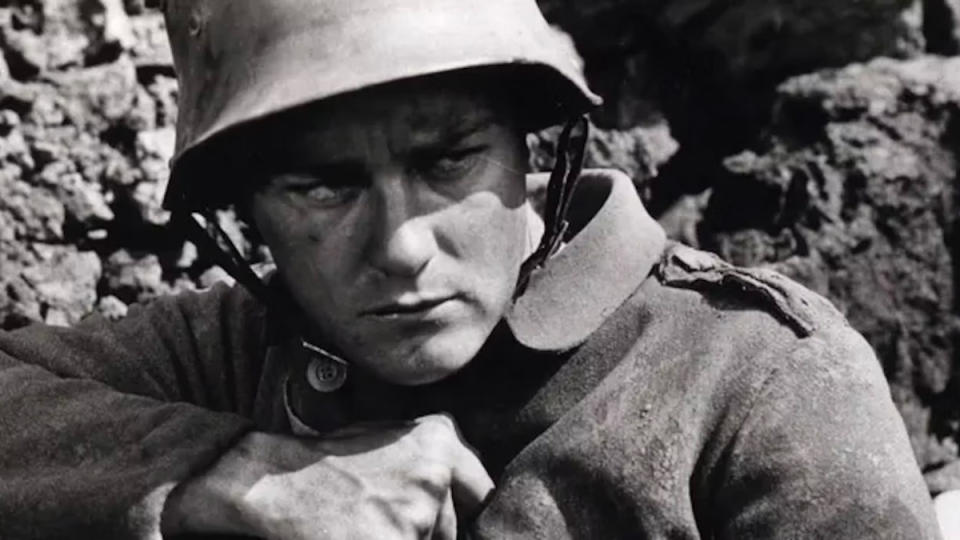
All Quiet on the Western Front (Universal)
While a new All Quiet adaptation is a 2023 Oscar contender, the 1930 adaptation still stands out for its impressive filmmaking (especially given the technical limitations of the era) and unflinching look at the horrors of war. The third-ever film to win Best Picture, its competition at the time wasn’t too fierce — but its pacifist message rings out so strongly that Nazi Germany actually banned the film entirely. You’re pissing off the right people, when you’re pissing off the Nazis. — L.S. Miller
61. Dances with Wolves (1990)
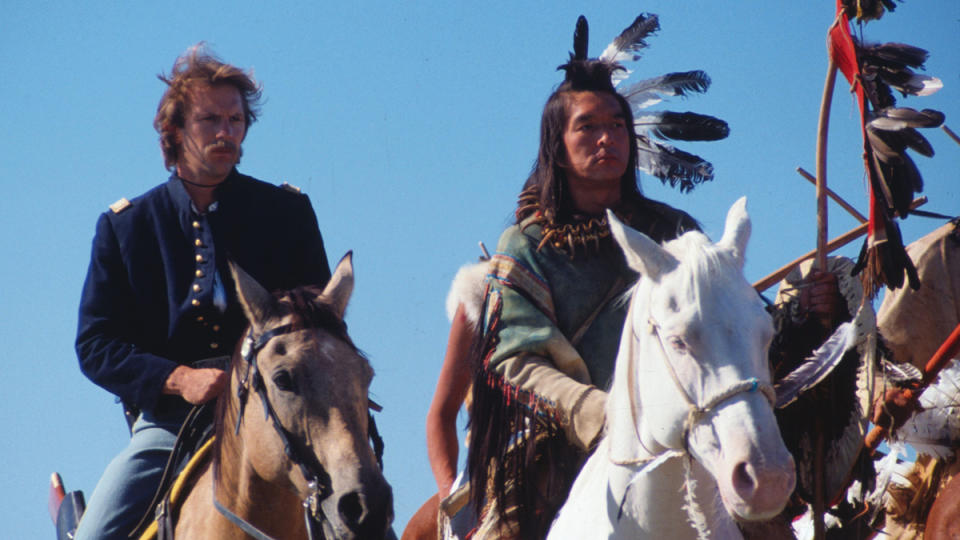
Dances With Wolves (Orion Pictures)
Kevin Costner’s 1990 Western drama is one he starred in, directed, and produced, telling the tale of an army lieutenant who encounters the Lakota in 1863. Initially celebrated for modernizing the Western genre, one that was increasingly becoming outdated within Hollywood, recent criticisms of the film allude to its tendency to portray Costner’s character as a “white savior,” despite the film’s efforts to preserve and authentically portray Native American culture. Dances with Wolves is a beautiful film, and wonderfully shot; it was worthy of a Best Picture win in its time, but we have to wonder how Hollywood has taken stock of the film’s cultural criticisms in the decades since. — C. Siregar
60. From Here to Eternity (1953)
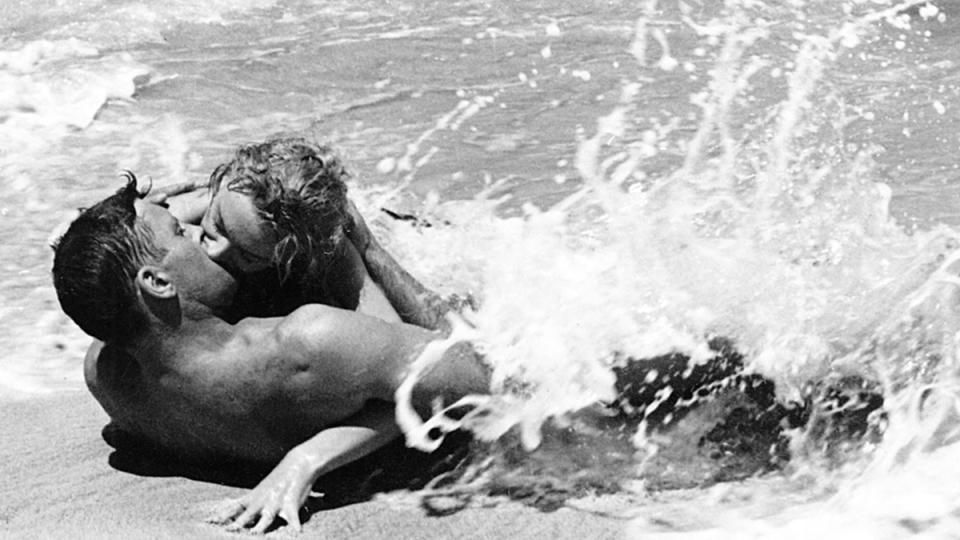
From Here to Eternity (Columbia)
Everyone knows From Here to Eternity for the hottest kiss on the beach ever committed to celluloid, but the melodrama surrounding it is equally deserving of your time. An all-star cast gives career-best performances, (Frank Sinatra, Montgomery Clift, and the scene-stealing Deborah Kerr) depicting soldiers and their families stationed in Hawaii in the days before the Pearl Harbour attack. Considered shocking by the standards of the time with its candid depictions of infidelity and toxic masculinity, it still carries a potency that makes it extremely rewatchable. Its flaws are evident, but these characters are so enthralling that you can’t help but go with it. — K. Donaldson
59. Ordinary People (1980)
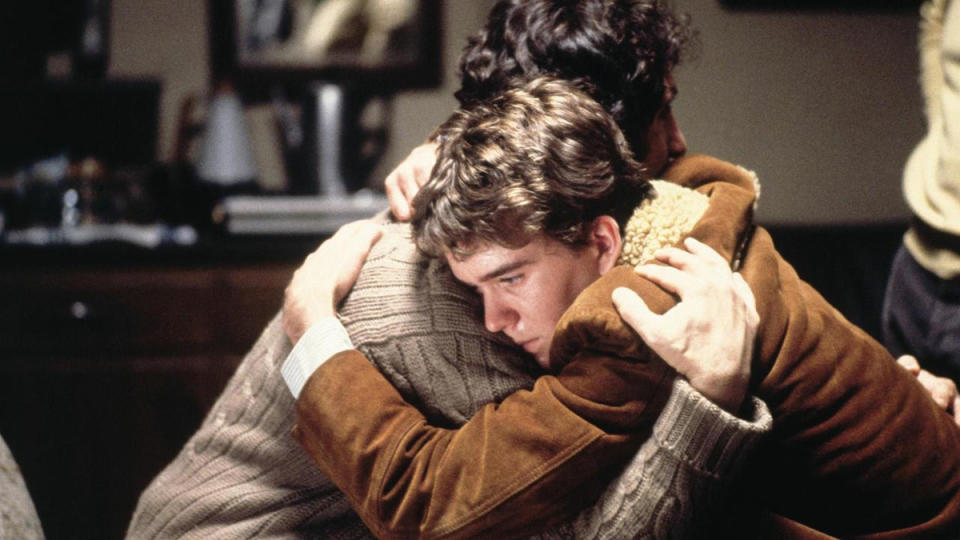
Ordinary People (Paramount)
Talk about a gut punch. This meditation on trauma and grief holds up four decades later because of its core quartet: Donald Sutherland, Timothy Hutton, Mary Tyler Moore, and Judd Hirsch all deliver some of the best performances of their respective careers. It’s a film that finds power in subtlety, buoying the characters with relatability and alloying the emotional payoffs on screen. That Ordinary People marks Robert Redford’s directorial debut (for which he won the Oscar for Best Director) makes the film even more impressive. And while some film buffs may say that Raging Bull was robbed of Best Picture, count me as an Ordinary People apologist. — S. Dukoff
58. Terms of Endearment (1983)
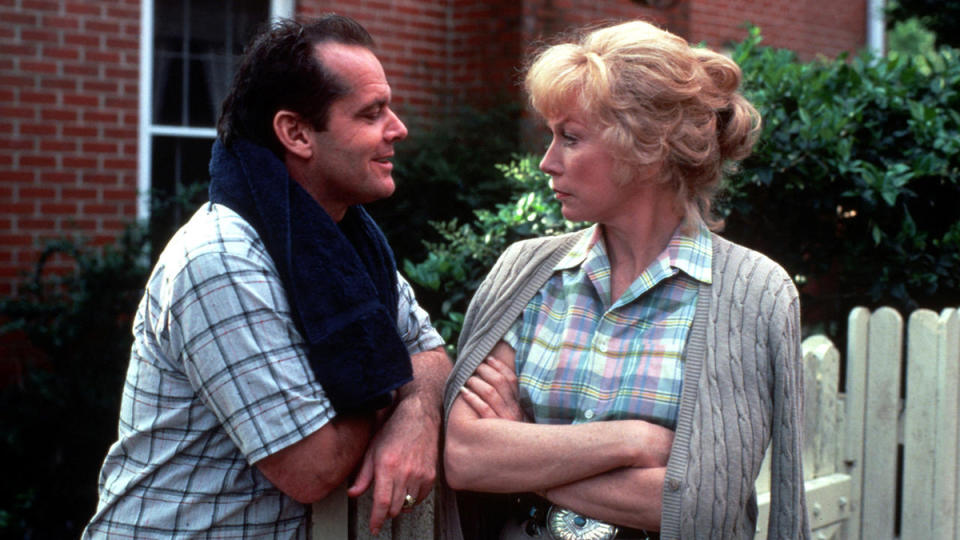
Terms of Endearment (Paramount)
Many Oscar fans see Terms of Endearment’s Best Picture win over The Right Stuff and The Big Chill as a mistake by the Academy. We get that, but James L. Brooks’ dramedy of a tumultuous mother-daughter relationship really withstands the test of time. Shirley MacLaine finally won an Oscar for her scene-stealing turn as a widow trying to figure out her relationship with her child, played by Debra Winger — the comic timing is strong and Brooks manages the often wild tonal shifts with ease. It isn’t as technically ambitious as its Best Picture competition that year, but there’s something to be said for a smart adult drama about interesting people. — K. Donaldson
57. The King’s Speech (2010)
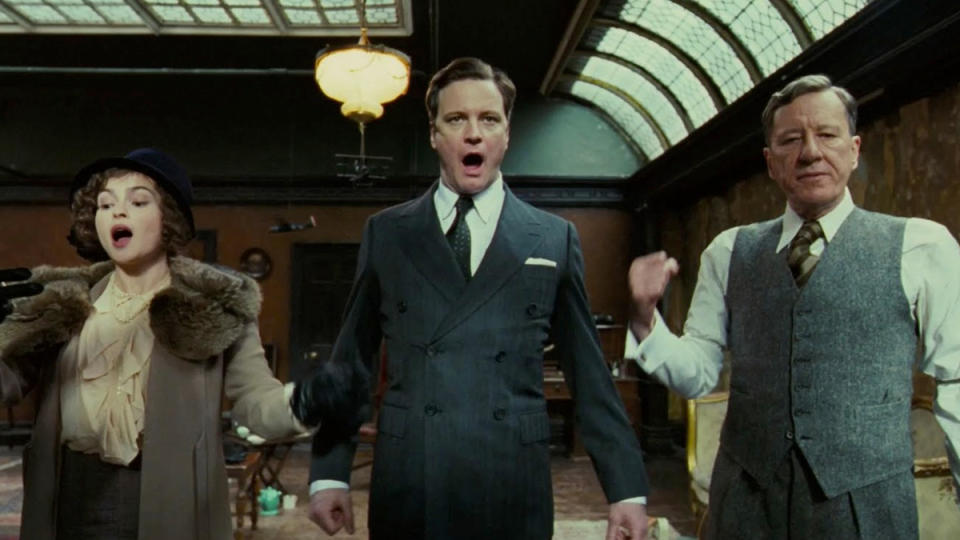
The King’s Speech (The Weinstein Company)
Give Colin Firth all the awards, always. Tom Hooper’s 2010 historical drama The King’s Speech explores the relationship between Firth’s King George VI and his language coach, Lionel Logue (Geoffrey Rush), as the king tries to deal with his speech impediment in time to make his first wartime radio broadcast as Britain declares war on Germany in 1939. Empathetic and sensitive, The King’s Speech portrayed a different side to the way films approach war and politics, leading it to win over films including Inception, The Social Network, and True Grit. — C. Siregar
56. Oliver! (1968)
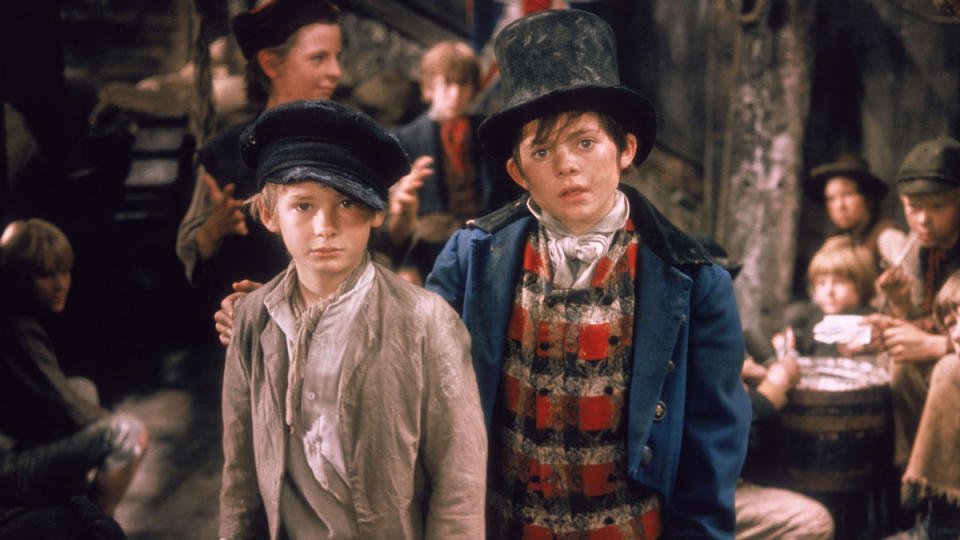
Oliver! (Columbia)
The 1968 adaptation of the Charles Dickens classic won over audiences and critics alike. What a year for classics, though — Oliver! was at the same Academy Awards as Funny Girl, The Producers, Romeo & Juliet, and 2001: A Space Odyssey. Hindsight is 20-20, of course, but it’s wild that the Stanley Kubrick space adventure didn’t make its way into the Best Picture category at all.
Oliver! was the last movie-musical to win Best Picture until Chicago over 30 years later, in 2002. Now, the adaptation is best remembered for its larger-than-life choreography and, of course, the iconic question: “Please, sir, may I have some more?” — M. Siroky
55. Gladiator (2000)

Gladiator (DreamWorks)
Ridley Scott’s Roman Empire epic, Gladiator, was a massive achievement. Clearly, the 73rd Academy Awards agreed, as it rightly beat crowd-pleasers such as Cast Away and Crouching Tiger, Hidden Dragon to take home Best Actor (for Russell Crowe), Best Picture, Best Costume Design, Best Sound, and Best Visual Effects. Indeed, Crowe is immensely sympathetic, imposing, and noble, just as Best Supporting Actor nominee Joaquin Phoenix portrays one of the best villains of the 2000s. Despite its sluggish pace and thin plot, those career-making performances — alongside consistently exquisite cinematography and set design — allowed Gladiator to conquer most of its Oscar opponents. — Jordan Blum
54. Hamlet (1948)
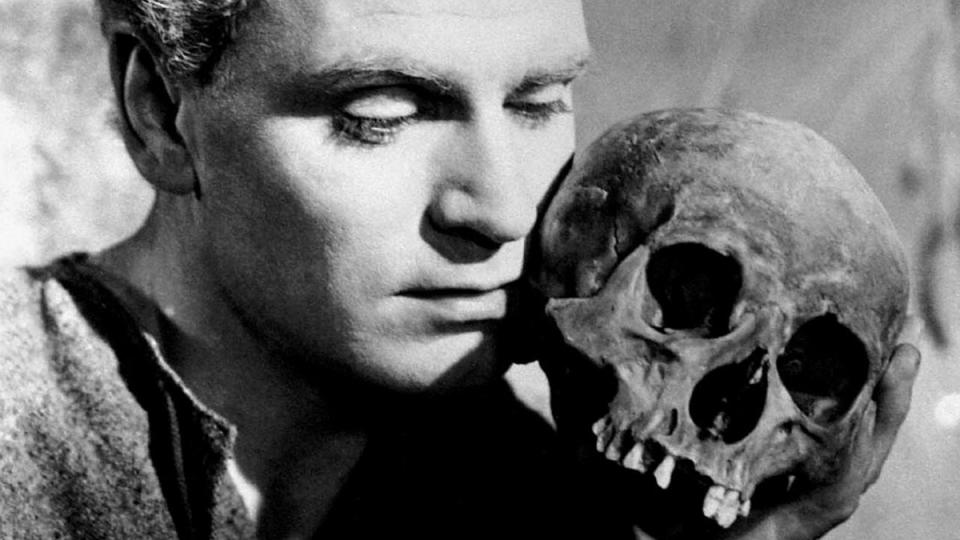
Hamlet (Rank Film Distributors)
When it comes to the pursuit of plaques and trophies, Shakespeare is an easy bet. Do at least a halfway decent job at adapting one of ol’ Willie’s plays, and you’re bound to rake in at least a couple of nominations. Laurence Olivier’s 1948 version of Hamlet cashed that check all the way to Best Motion Picture, making it the first British film to accomplish such a feat. The film also took home titles for Best Actor, Best Set Design (black and white), and Best Costume Design (black and white). And while modern audiences likely conjure images of Kenneth Branagh’s more faithful, grandiose adaptation when they think of Hamlet, Olivier’s version remains one of the better Shakespeare-related projects to gain Oscar recognition. – J. Krueger
53. Gone with the Wind (1939)
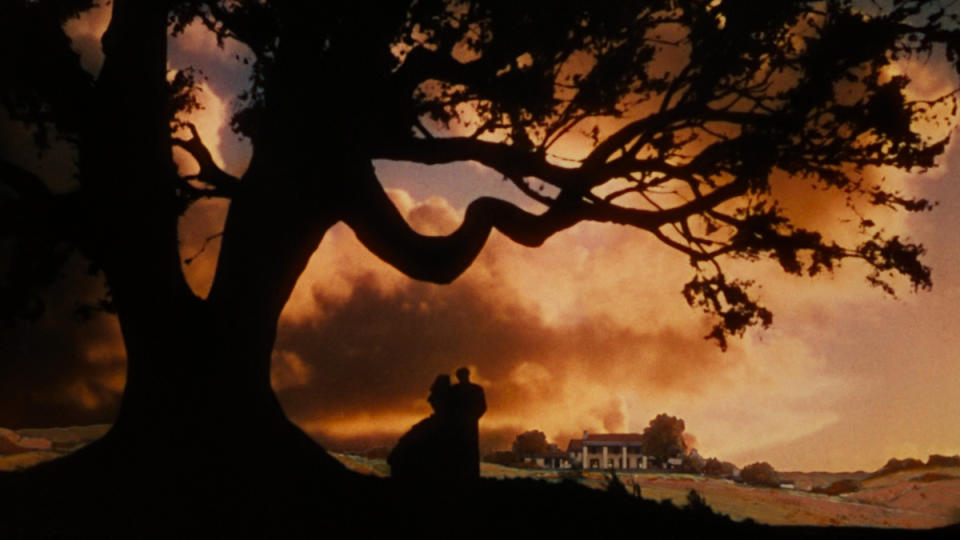
Gone With the Wind (MGM)
Gone with the Wind is a complicated film in 2023. Gone with the Wind was a complicated film in 1939. Victor Fleming’s film glorifies the Confederacy and slavery, while doing its fair share in shaping misinformation regarding the Confederate flag as the film staked its place in pop culture decades after its initial release. But not all art soothes the soul; some of it challenges and creates visceral reactions. What does the film say about race? How does it view the South and romanticize an ugly period in America’s history? What does it teach us about diversity in Hollywood? And after we dig into those cultural issues, how does the actual filmmaking hold up by today’s standards?
While the first few questions come with their own complications, depending on who answers the questions, the last one is pretty definitive: Gone with the Wind remains a stunning piece of work. Created during a time where Hollywood fell in love with Technicolor and filmmakers invented new camera techniques on the fly, Gone with the Wind is gorgeous and never dull despite its seemingly gargantuan runtime — the “most movie” of all the films nominated that year. Its cultural issues notwithstanding, Gone with the Wind still works, for the most part. But when compared to some of its competition that year, namely The Wizard of Oz and Mr. Smith Goes to Washington, Gone with the Wind feels like a candle in the sun. — M. Shorter
52. Nomadland (2020)

Nomadland (Searchlight Pictures)
It’s hard to say yet how history will remember Chloé Zhao’s searing yet quiet look at a woman (Frances McDormand) who lives her life on the road, finding her own kind of peace as a seasonal worker at the edges of society. But while Nomadland might feel very different from the Oscar winners of old, it does have something in common with films like Lawrence of Arabia and The Sound of Music — boy does Zhao love a sweeping vista. The lush filmmaking captures the American West from a very different point of view, but still makes Fern’s journey feel as epic as any war picture. — L.S. Miller
51. Midnight Cowboy (1969)
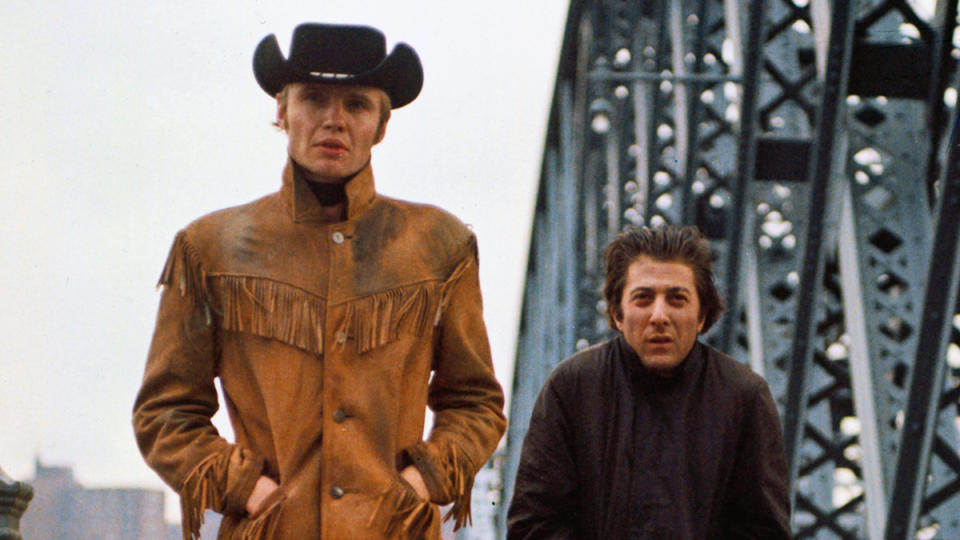
Midnight Cowboy (United Artists)
John Schlesinger’s 1969 classic, Midnight Cowboy, won Best Picture, Best Director, and Best Adapted Screenplay at the 42nd Academy Awards. That’s notable for a few reasons, including the fact that it remains the only X-rated film to win Best Picture. (Cumulatively, it deservingly beat superb contenders such as Goodbye, Columbus; Butch Cassidy and the Sundance Kid; and They Shoot Horses, Don’t They?) Best Actor nominees Jon Voight and Dustin Hoffman have excellent chemistry and completely disappear into their roles, and over 50 years later, the perfectly paced film remains a seminal exploration of lost innocence and the desperation of loneliness. — J. Blum
50. The Sting (1973)
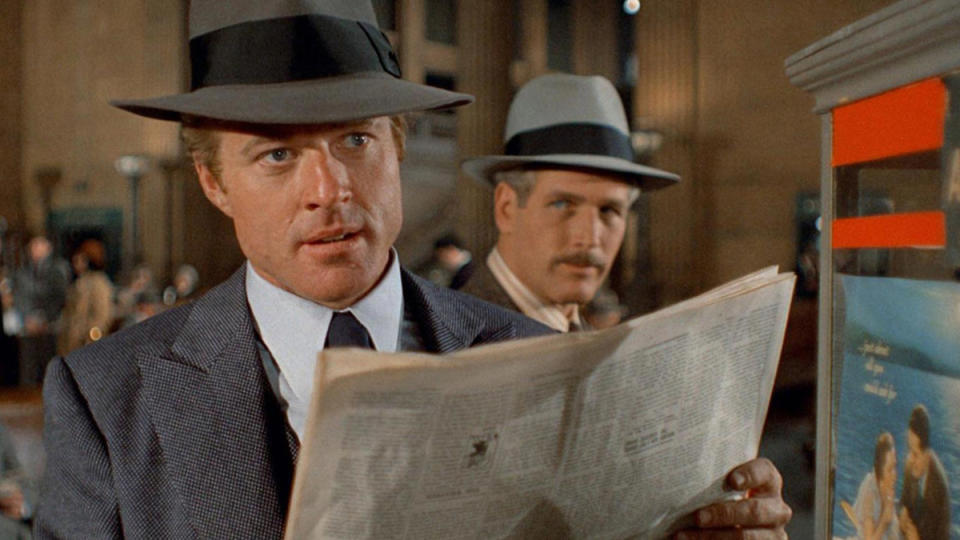
The Sting (Universal)
The Sting is the complete opposite of The Exorcist, another film up for Best Picture that year, and yet they both represent two types of films the Academy looks down on these days. If a studio made The Sting today, maybe they get an Oscar nomination. Do they win though? Highly doubtful, as The Sting represents a time when the Academy rewarded impeccably-made crowd pleasers with big movie stars having fun: Robert Redford, Paul Newman, Robert Shaw, Eileen Brenan (Mrs. Peacock for Clue fans), and Charles Durning come together for a heist film that set the blueprint for Ocean’s Eleven, in the same way that film created a lane for everything that came after 2001. The Sting introduces the audience to a new world and never makes any of it feel confusing or intimidating — Redford and Newman’s charm, combined with David S. Ward’s screenplay, makes the whole complicated affair feel light and accessible. During the very serious and bleak 1970s, The Sting’s lightness stands out amongst the more serious and dour Oscar winners of the decade. — M. Shorter
49. Rain Man (1988)
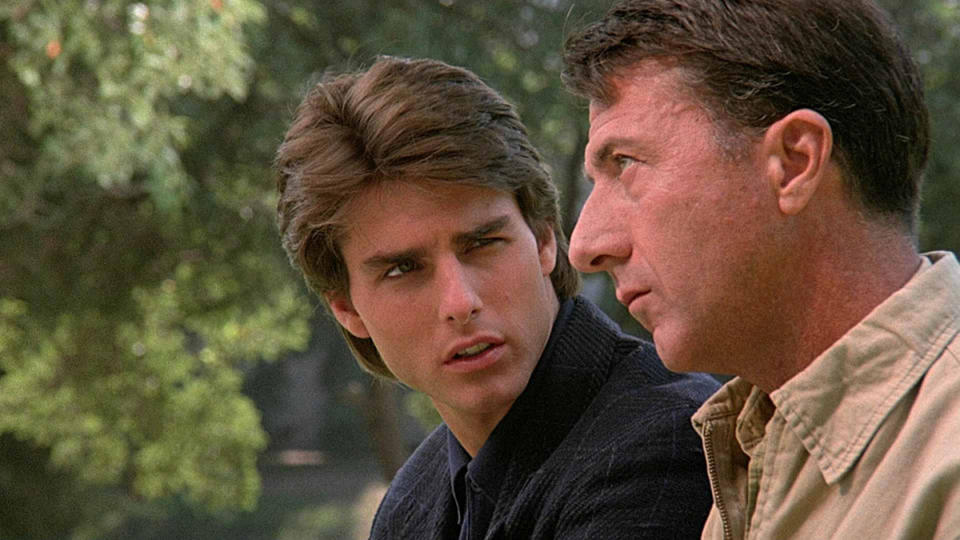
Rain Man (MGM)
In hindsight, Rain Man seems like it was mathematically crafted to win Best Picture at the 61st Academy Awards. Starring Tom Cruise and Dustin Hoffman and directed by Barry Levinson (fresh off of Good Morning, Vietnam), it’s an obvious winning formula — in fact, the film won four of its eight nominations, including Best Actor, Best Director, and Best Original Screenplay. Is there a conversion to be had around the film’s depiction of autism? Yes, no question about it. But reevaluating the other films up for Best Picture that year — a group of nominees sorely missing classics like Dead Poets Society and When Harry Met Sally — Rain Man’s lasting cultural relevance outshines them. At the very least, Rain Man is far from the most forgotten Best Picture winner. – J. Krueger
48. Gandhi (1982)
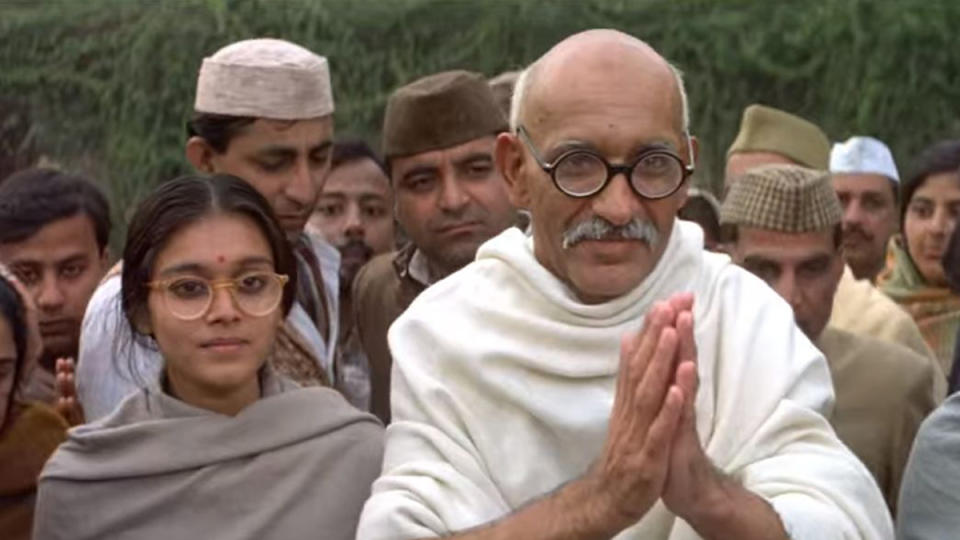
Gandhi (Columbia)
As far as historical biopics go, Gandhi is one of the classics. Starring Ben Kingsley in the title role and directed by the one and only Richard Attenborough, the 1982 feature arguably set the standard for biopics as it followed the life of the Indian leader as he led the independent movement against the rule of the British Empire in the name of peace. The film was celebrated around the world, a shoo-in as the Best Picture winner for that year, even beating that year’s heavy-hitters: E.T. the Extra-Terrestrial and Tootsie. — C. Siregar
47. On the Waterfront (1954)
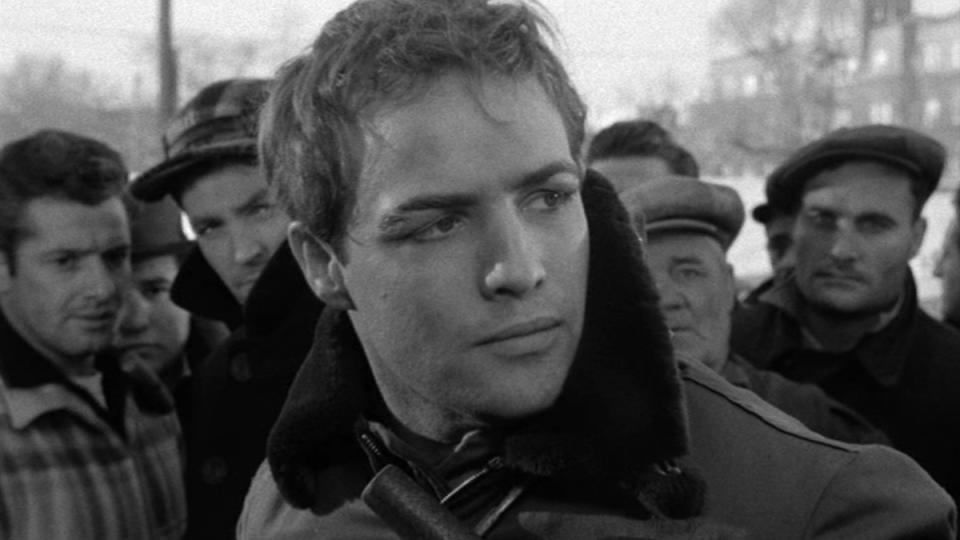
On the Waterfront (Columbia)
Elia Kazan’s 1954 opus On the Waterfront is essential for a few reasons — sure, it’s a powerfully tense exploration of the psychological dynamics of obeying authority, but the biggest winner is Marlon Brando. His performance and journey as dockworker Terry Malloy is packed with standout moments; his ability to tackle subtext and command a rolodex of emotions is stunning, and his “I coulda been a contender!” scene is still iconic today. Brando proved that his acting expertise was enough to root a film in, and it remains On the Waterfront’s most legendary quality nearly 70 years later. — Paolo Ragusa
46. Rebecca (1940)
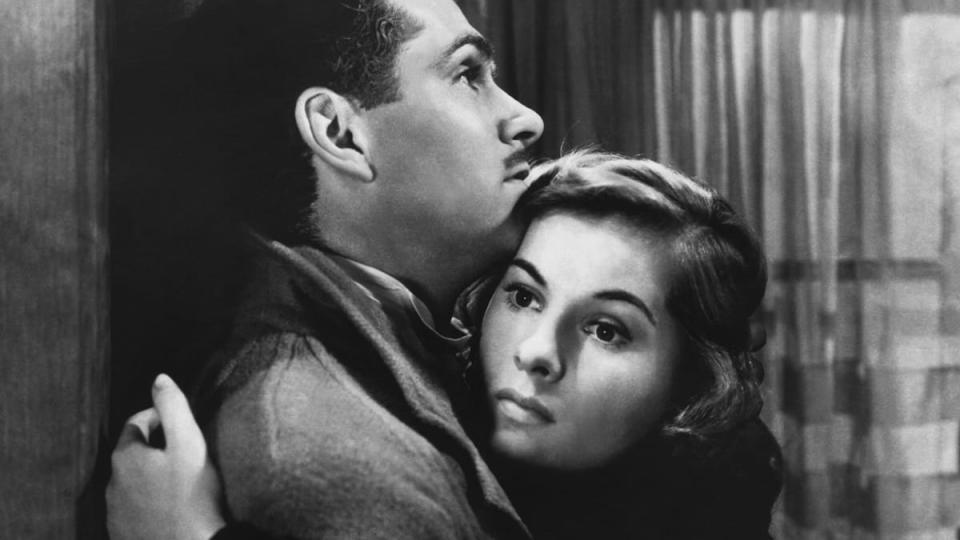
Rebecca (United Artists)
Alfred Hitchcock’s only Best Picture winner, Rebecca, received 11 Academy Award nominations but only won two awards, for Best Picture (beating out The Grapes of Wrath and The Philadelphia Story) and Best Cinematography. Adapted from the popular 1938 novel Rebecca by Daphne du Maurier, this was Hitchcock’s first American film, an ethereal gothic thriller capturing the complicated romance between Maxim De Winter (Laurence Olivier) and his new young wife (Joan Fontaine). Shrouded in mystery and transfixing suspense, the film translates the enigmatic subtleties of the novel well — Fontaine’s performance in particular ties the production together, as the audience follows her through the strange dreamlike world of Manderly. — G.A. Natanawan
45. The Artist (2011)
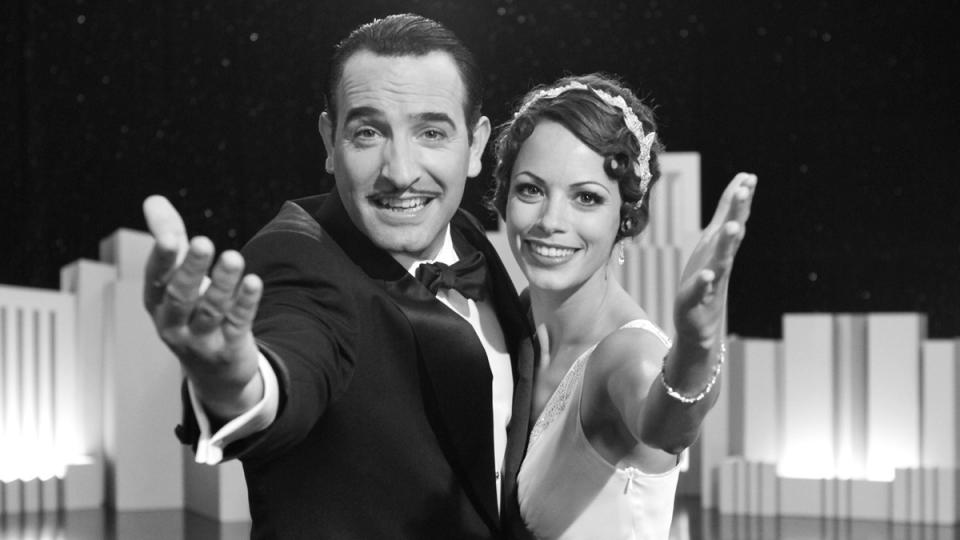
The Artist (The Weinstein Company)
Hollywood loves movies about Hollywood. After all, what better way to feel honored as a person in entertainment than to have people make entertainment about how gratifying it is to make entertainment! But the Hollywood-centric films that really shine are like 2011’s The Artist, a love letter to the silent era of filmmaking and a testament to the craft of the artist. It’s fun to consider that a film with only a few lines of spoken, audible dialogue won Best Picture in 2012 (over films like The Tree of Life and The Help), but the incredible level of detail and courage to present a newer version of a “silent film” 80 years after the era collapsed makes it a worthy winner. — P. Ragusa
44. CODA (2021)
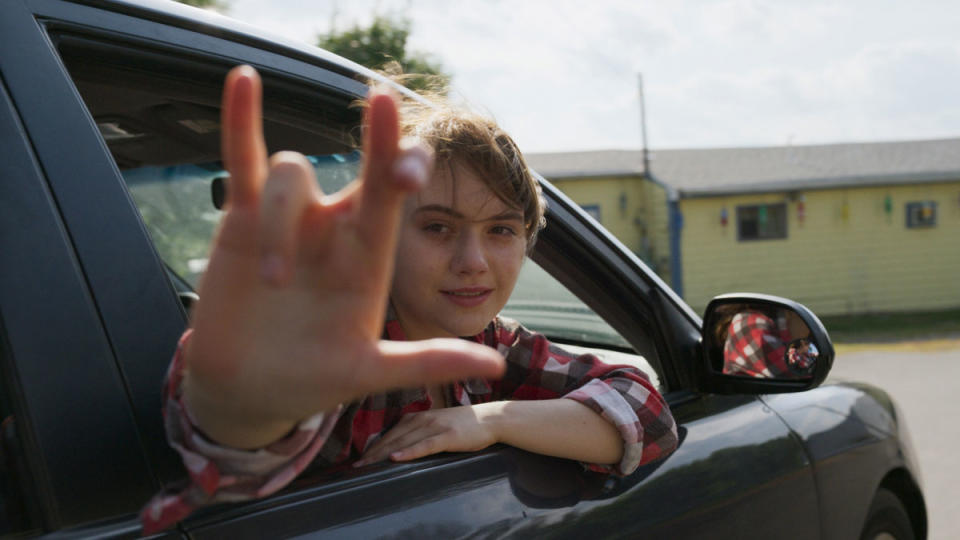
CODA (Apple TV+)
It’s too early to know how our most recent Best Picture winner will age, but, from where we stand now, one of the best things about CODA is the lovely performances it gave us, particularly from Marlee Matlin and Troy Kotsur, the latter of whom won Best Supporting Actor in a historic moment for the deaf community. Emilia Jones also gives a gorgeous performance as Ruby, CODA’s central character, her vocals and authentic emotion existing in balance with one another. If nothing else, CODA is a truly moving film that can be enjoyed across age groups. Looking for an acclaimed film to throw on with your parents that won’t be as intense as some of the year’s other nominees? Look no further. — M. Siroky
43. The Lost Weekend (1945)
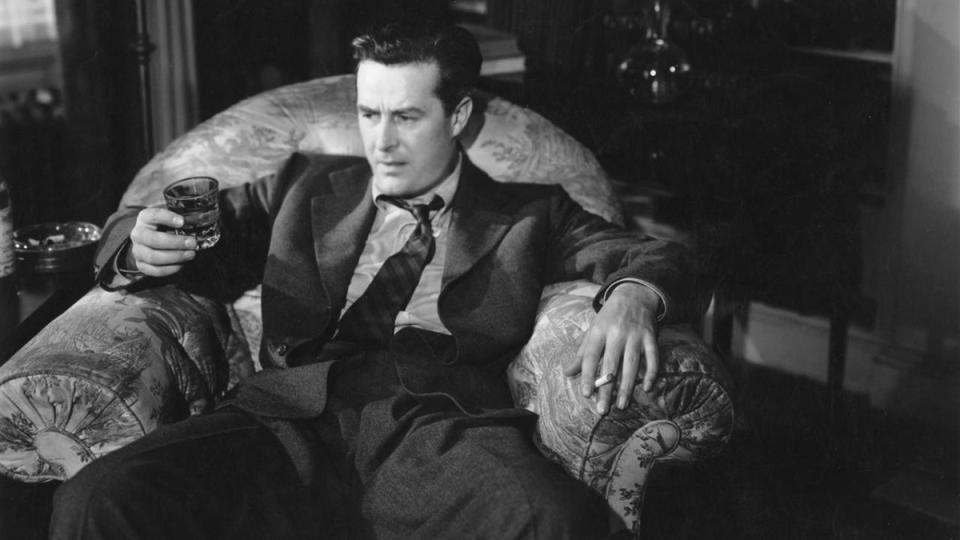
The Lost Weekend (Paramount)
Much like The Best Years of Our Lives, Billy Wilder’s The Lost Weekend captures a particular kind of postwar malaise: the existential angst of the American man, now lost in a modern age that offers little meaning for him. But here, the demon isn’t wartime trauma, but alcoholism: Wilder looks unflinchingly at the way substance abuse can slowly but surely dissolve a person into atoms, and how it recruits the addict into helping it happen. Ray Milland is a suitably disheveled lead, and Miklos Rozsa’s eerie theremin score hammers home the out-of-body experience of a life-ending bender. It competed against Mildred Pierce and Spellbound for the Best Picture Oscar, but it’s a fine winner nonetheless. — C. Worthington
42. Annie Hall (1977)
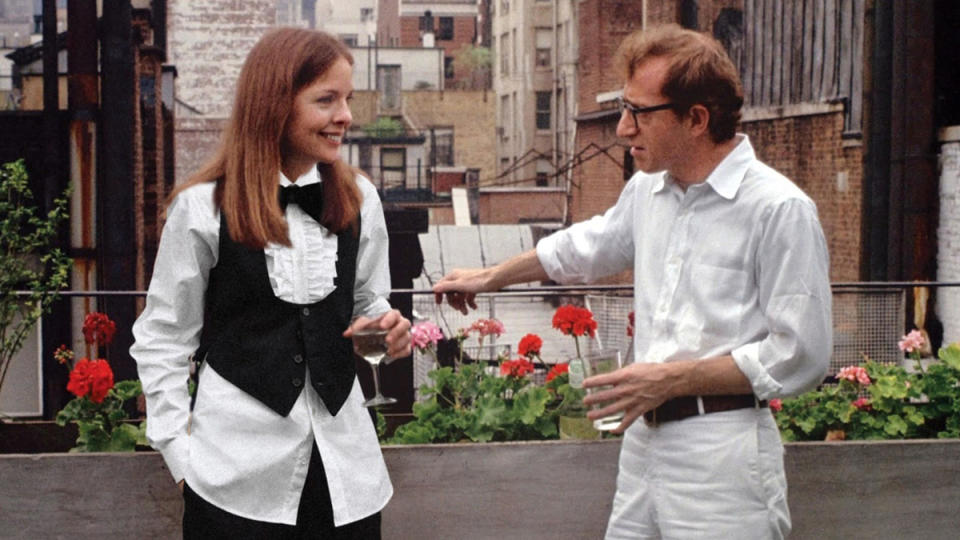
Annie Hall (United Artists)
Having previously focused on silly comedies, Woody Allen drastically shifted gears with 1977’s grounded and earnest Annie Hall, which went on to win Best Picture, Best Director, Best Original Screenplay, and Best Actress for Diane Keaton at the 50th Academy Awards. (Had it gotten Best Actor, too, it would have swept the “Big Five.”) Its competition that year included Star Wars and The Goodbye Girl, yet its timelessly quirky characters and bittersweet examination of romance made it unbeatable then. Allen’s legacy has become a complicated one in recent years, but this is arguably the best film of his career. — J. Blum
41. The Deer Hunter (1978)
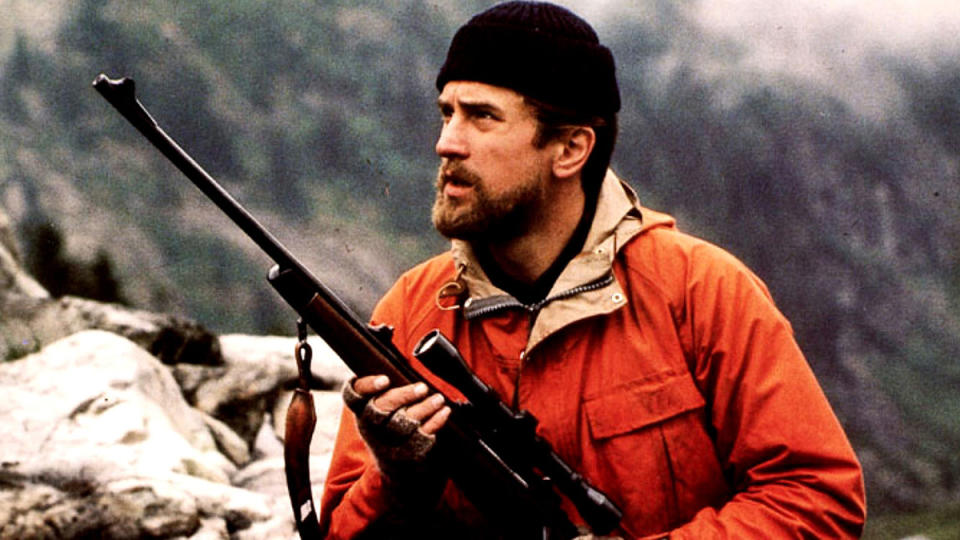
The Deer Hunter (Universal)
The Deer Hunter is not an easy watch. It’s downright brutal in certain parts, daring you to look away from the horror befalling its central characters. But that’s exactly why it’s such a compelling film, epic in its ambitions and breathtaking in its execution. Director Michael Cimino’s 1978 film takes the audience on a journey from a working-class Pennsylvania town to the jungles of Vietnam, following a trio of men whose lives are forever changed by war. Robert De Niro, Christopher Walken, and John Savage all give bravura performances, as well as Meryl Streep, who earned her first Oscar nomination for the role of Linda. Don’t be intimidated by its three-hour runtime — The Deer Hunter is essential viewing for any fan of cinema. — S. Dukoff
40. Unforgiven (1992)

Unforgiven (Warner Bros.)
Clint Eastwood in the Wild West. It’s nothing you haven’t seen before, right? Wrong. While Eastwood has no shortage of iconic film roles, Unforgiven is perhaps his most well-rounded performance, all the more impressive given the fact that he pulled double-duty as director. The movie features a strong ensemble including Gene Hackman, Morgan Freeman, and Richard Harris, and feels influential in its embrace of the anti-hero. One of three Westerns to ever win Best Picture (Cimmaron and Dances with the Wolves — if you count No Country for Old Men, it’s one of four), Unforgiven is one of the definitive films of the genre, bringing something new to a style that often leans on tropes. — S. Dukoff
39. In the Heat of the Night (1967)
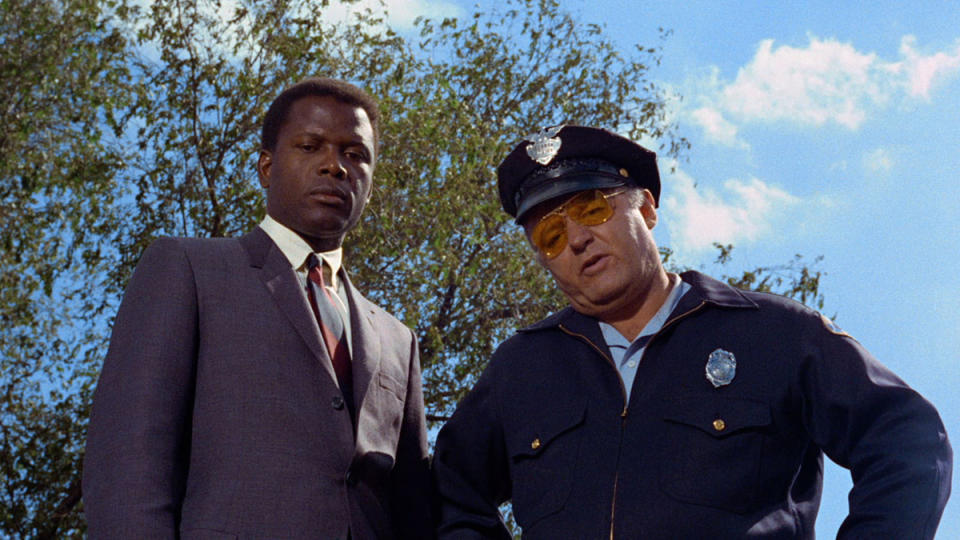
In the Heat of the Night (United Artists)
Just 13 years removed from Brown v. Board of Education, In the Heat of the Night delivered a tense, at times funny, strongly acted representation of racism in the South. At least, for the times; the drama feels a bit removed by today’s standards, but during the ’60s, the dignified rage that Sidney Poitier brought to Virgil Tibbs’ confrontations with Rod Steiger’s Chief Gillespie and the residents of Sparta, Mississippi (including the original “slap heard around the world”) was powerful. Perhaps so much so that the Academy felt inclined to award the film its top honor, despite fellow ’67 nominees Bonnie and Clyde and The Graduate holding more lasting critical acclaim. — Ben Kaye
38. Argo (2012)
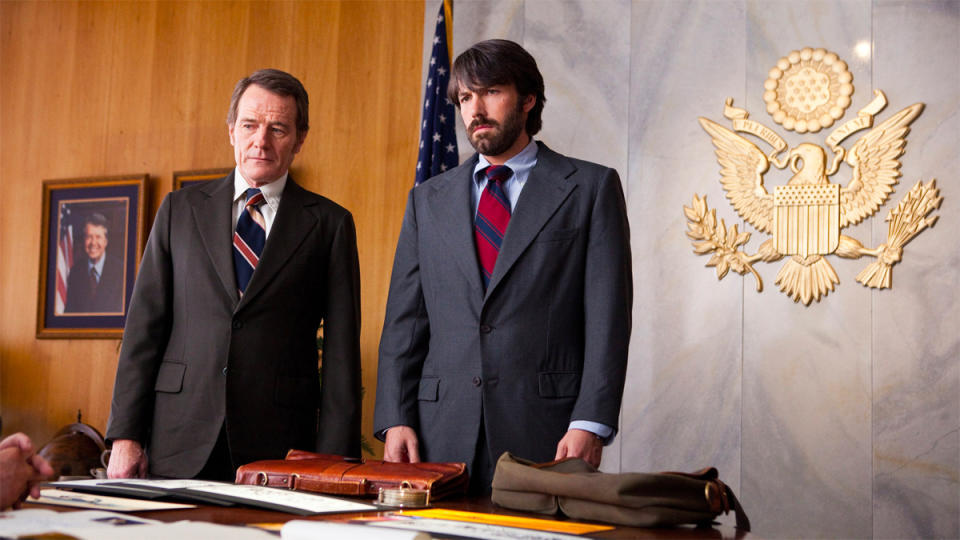
Argo (Warner Bros.)
This tale of how a fake film crew aided the 1978 Iran hostage crisis could have almost been designed in a lab for Oscars domination. Based on a true story? Check. Stacked cast led by a beloved longtime actor (Ben Affleck) who had recently turned powerhouse director? Check. Love letter to the power of cinema? If you heard thunderous applause in 2012 it was all of Hollywood clapping themselves on the back. But even so, the performances are universally strong and the source material is genuinely bonkers, so when those credits roll, you might just find yourself clapping, too. — W. Graves
37. Chicago (2002)
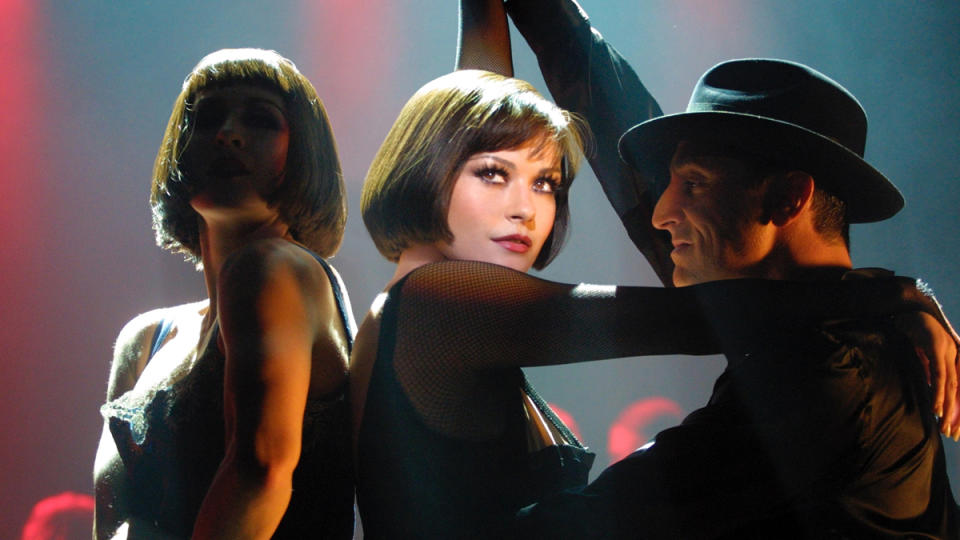
Chicago (Miramax)
Chicago brings the classic Bob Fosse Broadway production to the big screen in a lucid and sexy adaptation — the first musical to win Best Picture since Oliver! in 1968, over three decades prior. Directed by Rob Marshall, the musical won Best Picture and five other awards including Best Supporting Actress for Catherine Zeta-Jones’ portrayal of Velma Kelly, a vaudeville entertainer and murderess. Other notable films nominated for Best Picture in 2003 include The Lord of the Rings: The Two Towers and The Hours, movies which have aged better in film history. But the bawdy musical adapts well to the big screen and entertains both theatre connoisseurs and movie buffs alike, with its flashy musical sequences proving amusing, despite the uneven pacing. — G.A. Natanawan
36. Platoon (1986)
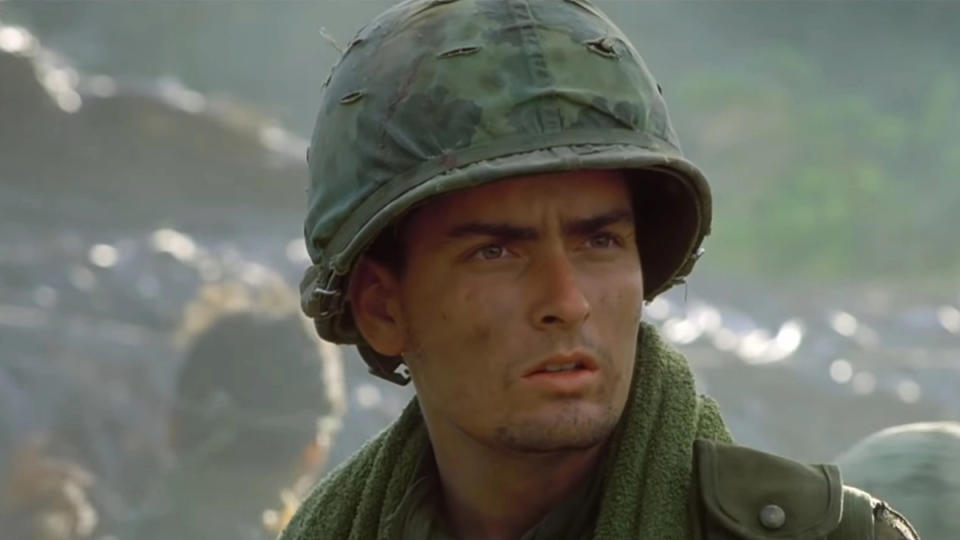
Platoon (Orion Pictures)
It’s hard to imagine a time when Charlie Sheen, Johnny Drama, Dr. Cox, and the guy who voices the President on Rick and Morty could be in one of the most visceral war films of all time; then again, it’s equally hard envisioning Oliver Stone making a movie today with this much reserved impact. Showing the moral and physical trials of grunts humping through Vietnam, Platoon is a high-water mark for many involved in its production. As an unflinching look at the depravity of sending souls to battle in far-off lands, it also remains a relevant examination of the human cost of American warmongering. — B. Kaye
35. Marty (1955)
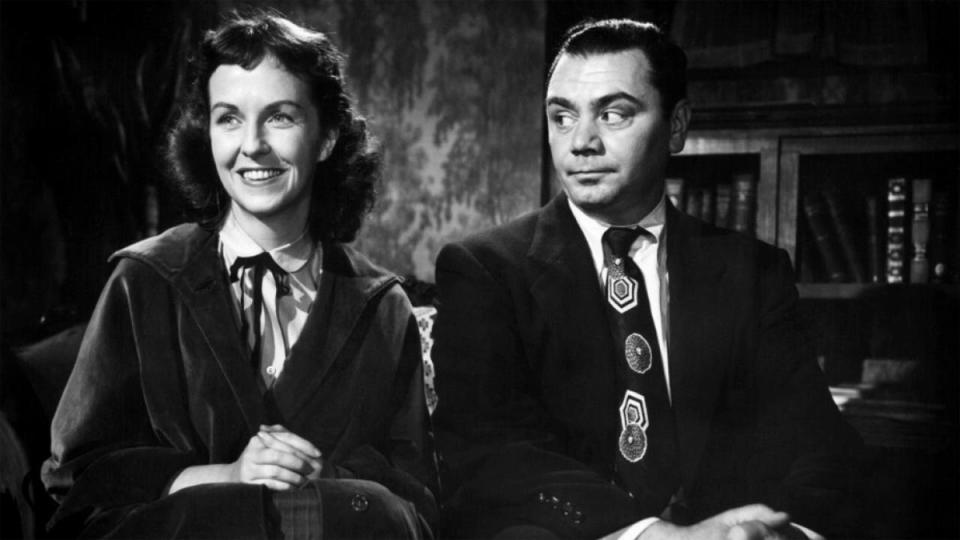
Marty (United Artists)
A strong script by Paddy Chayefsky and winning performances from Ernest Borgnine and Betsy Blair can almost make you forgive the film’s insistence that Blair is merely “plain.” Borgnine stars as a 34-year-old bachelor who lives with his mother and makes a connection with a shy, lonely schoolteacher. There isn’t a whole lot more to the plot than this, and yet Marty is one of only three films to win Best Picture and the Palm d’Or, in no small part because the heroes are so vividly drawn. If you like intimate character studies, you can’t go wrong with this one. — W. Graves
34. Sunrise (1927)
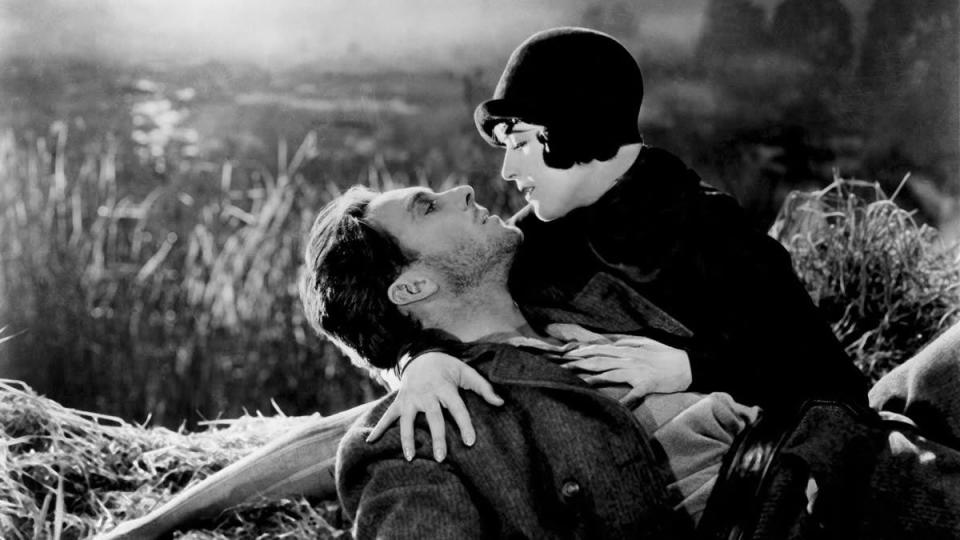
Sunrise (Fox)
At the original Academy Awards ceremony there were actually two categories for Best Picture, both having equal merit. The first, for “Outstanding Picture,” went to the handsome World War I epic Wings, and the second, for “Best Unique and Artistic Picture,” went to F.W. Murnau’s stunning, genre-defying Sunrise: A Song of Two Humans. It’s the story of a farmer convinced by a seductress to murder his wife, only to realize his mistake and have the most romantic day ever, and it features wildly inventive filmmaking that still dazzles today. Murnau’s film deserves not only recognition, but a noteworthy and vaunted place in the Oscar canon, even if the Academy did decide in retrospect that only the Oscar for Wings actually counted. (Rude.) — W. Bibbiani
33. The French Connection (1971)
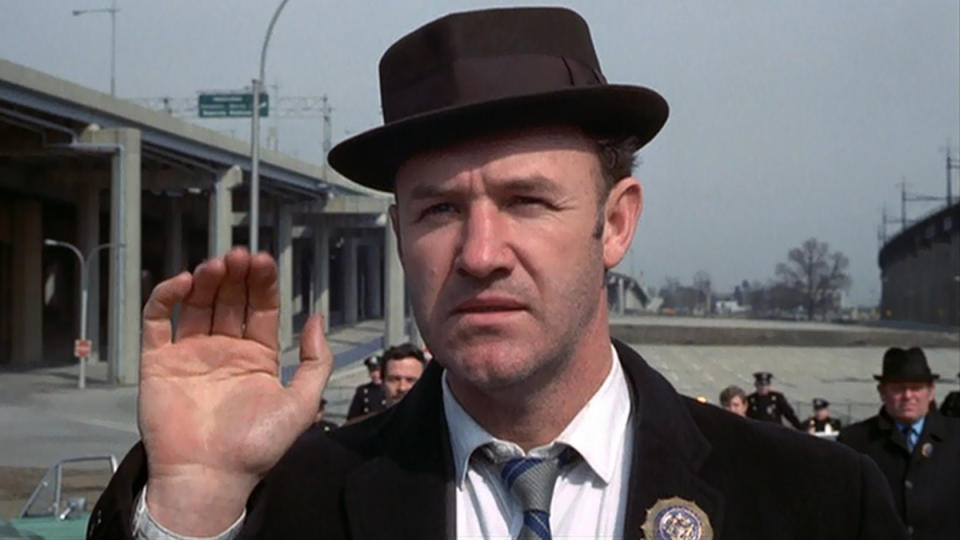
The French Connection (20th Century Fox)
One of the great detective films in the history of the medium, The French Connection completely changed the game when it was released in 1971. The film’s gripping storyline, authentic portrayal of police work, and superb performances by Gene Hackman and Roy Scheider made it an instant classic, and helped pave the way for a new generation of neo-noir thrillers. The French Connection’s incredible pacing — from the desperate shootouts to the iconic car chase sequence — adds palpable tension and situates the audience in the driver’s seat. Using the concrete jungle of New York City as a frenetic backdrop, the urgent energy, specifically in Hackman’s astounding performance, is enough to make The French Connection a crime drama masterpiece. — P. Ragusa
32. It Happened One Night (1934)
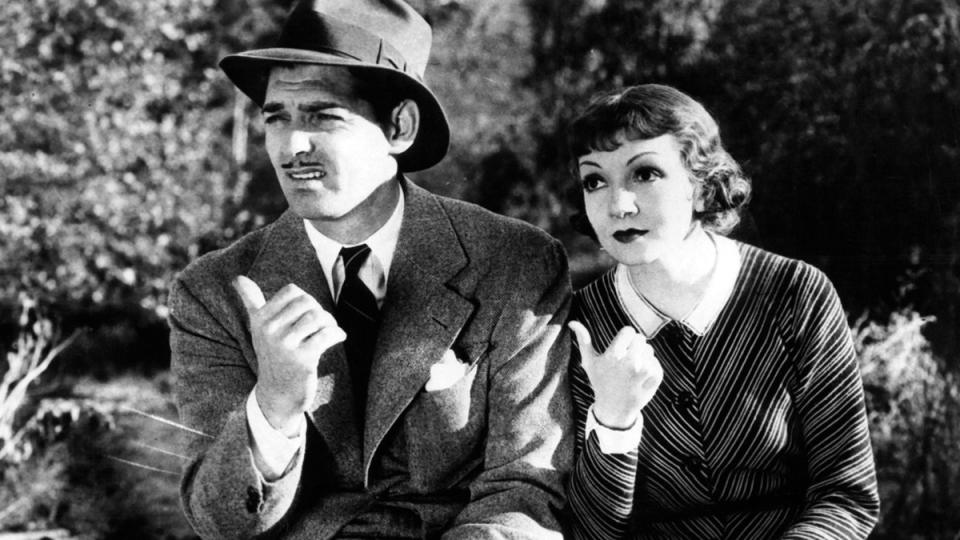
It Happened One Night (Columbia)
One of the last films made before the draconian censorship of the Motion Picture Production Code, It Happened One Night was more risqué than just about any flick released in American theaters for the next 30 years. This tale of the attempted elopement of a spoiled heiress (Claudette Colbert) and her chance meeting with a charming, principled, and resolutely broke reporter (Clarke Gable) teetered between a comedy of manners and outright slapstick, with a final scene that literally trumpets the first time they have sex. — W. Graves
31. Shakespeare in Love (1998)
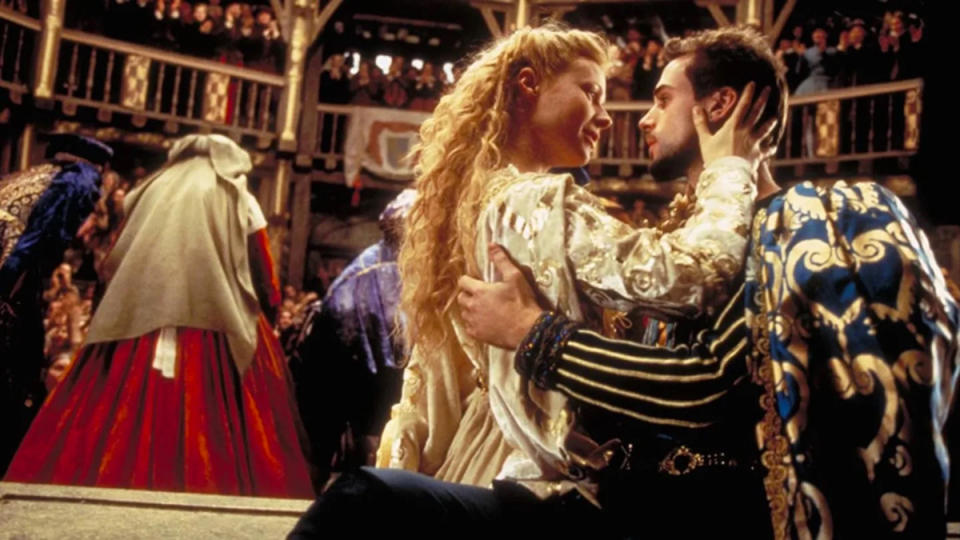
Shakespeare in Love (Miramax)
Shakespeare’s audiences went to “hear” plays, not see them, and so it’s fitting that Shakespeare in Love would retain almost all its wit and beauty if you watched it with your eyes closed. Tom Stoppard is one of the most decorated playwrights of the last century, and his script for director John Madden is as good as it gets: hilarious, sexy, and deeply emotional, even as it grapples with ancient themes of duty and gender. Did it deserve to beat Saving Private Ryan? All we can say is that sometimes two great movies come out in the same year. Besides, the show-within-the-show, which begins as Romeo & Ethel the Pirate’s Daughter, is a love letter to the stage, and hope for all of us that our first attempts can be improved. — W. Graves
30. Kramer vs. Kramer (1979)
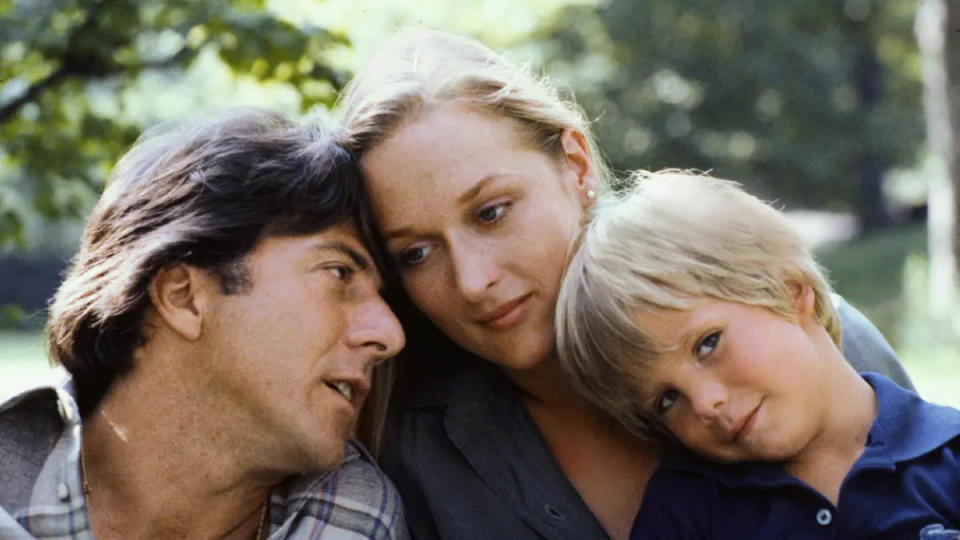
Kramer vs. Kramer (Columbia)
Robert Benton’s 1979 drama Kramer vs. Kramer remains a timeless exploration of divorce, family dynamics, and the way we leave our children behind. In fact, it is the definitive divorce film, and that’s due to the incisive screenplay as well as Dustin Hoffman and Meryl Streep’s revelatory performances. As the “Nuclear Family” began to experience a cultural decline throughout the 1970s, Kramer vs. Kramer is a difficult, albeit necessary, investigation into preconceived notions of family and tradition. And today, it’s another devastating reminder of how custody battles can result in some serious trauma. — P. Ragusa
29. Ben-Hur (1959)
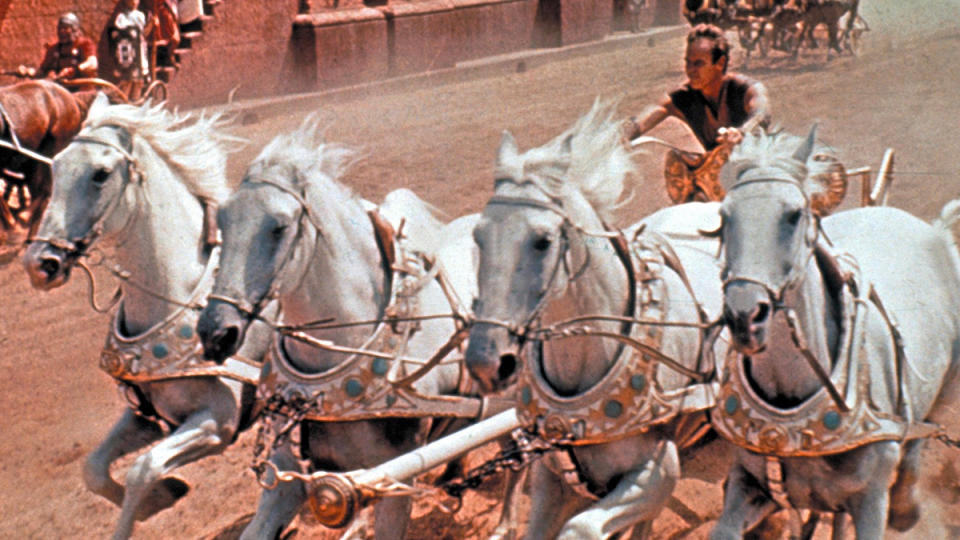
Ben-Hur (MGM)
Of all films produced during Hollywood’s infatuation with epics, Ben-Hur is only second to Lawrence of Arabia in terms of scope, influence, craft, and scenes that would make even the most jaded modern fan look up from their phone and pay attention. Everything starts with the movie’s visceral chariot races done during an era where real stuntmen risked it all — Ben-Hur set itself apart from the pack by showing audiences something new in 1959 and setting a new template for what they expected from any action movie that came in its wake. Ben-Hur is one of the few Oscar-nominated flicks that takes every ingredient that separated film from every other art form at the time, and puts it on screen for maximum effect. — M. Shorter
28. The Hurt Locker (2009)

The Hurt Locker (Summit Entertainment)
The Hurt Locker took home the top Oscars honor during the first year the awards instituted the 10-nominees rule for Best Picture. Of its nine competitors, maybe Inglourious Basterds or Up could have snatched the trophy, but there’s little doubt Kathryn Bigelow’s intimate and cautionary war drama earned its accolades. (The production challenges alone make it worthy of esteem.) By focusing on three individuals stuck in the same war the public had been watching deteriorate for half a decade, Bigelow forced America to take an intense, painful look at the world it had created. Few war films have had the chance to address current events with such impactful immediacy. — B. Kaye
27. The Bridge on the River Kwai (1957)
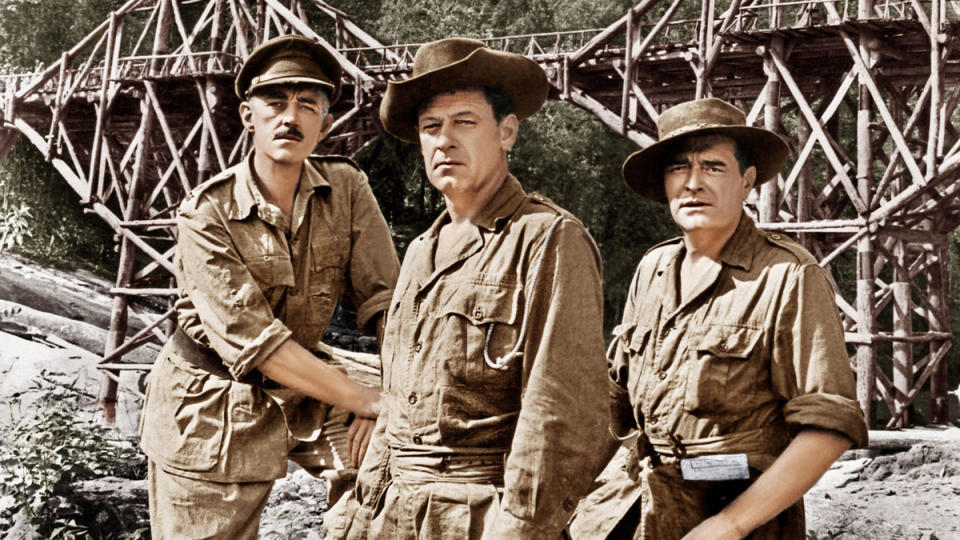
The Bridge on the River Kwai (Columbia)
While many things have changed throughout the history of the Academy, some things will always stay the same — you can usually count on a well-made epic to get some awards season attention, and 1957’s evidence is The Bridge on the River Kwai. The highest-grossing film of that year, the fictional take on the story of the Burma Railway construction remains a stellar achievement in nuanced wartime storytelling. — M. Siroky
26. Spotlight (2015)
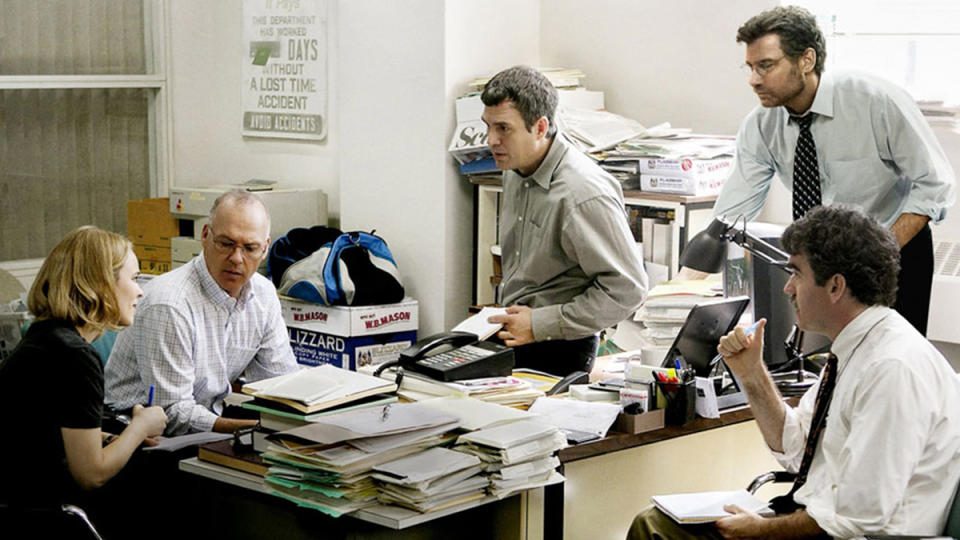
Spotlight (Open Road Films)
Tom McCarthy’s dive into the nitty-gritty investigation that uncovered a horrifying pattern of sexual abuse by Catholic priests in Boston — leading to the revelation that the Church itself was aware of these crimes — is probably the best movie about journalism since All the President’s Men. Yet it was a bit of a surprise winner in its year, up against bigger and louder awards players like Mad Max: Fury Road, The Martian, and The Revenant. Chalk it up to the socially relevant subject matter, plus the stacked ensemble (it’s wild how deep this bench of talent is: Mark Ruffalo, Michael Keaton, Rachel McAdams, Liev Schreiber, John Slattery, and Stanley Tucci are only some of the notable names featured) — not to mention McCarthy’s quiet direction, which allows the full impact of the scandal to be felt all the more powerfully. The heartbreaking performances are almost as memorable as the Microsoft Excel porn. Spotlight holds up. — L.S. Miller
25. Birdman or (The Unexpected Virtue of Ignorance) (2014)
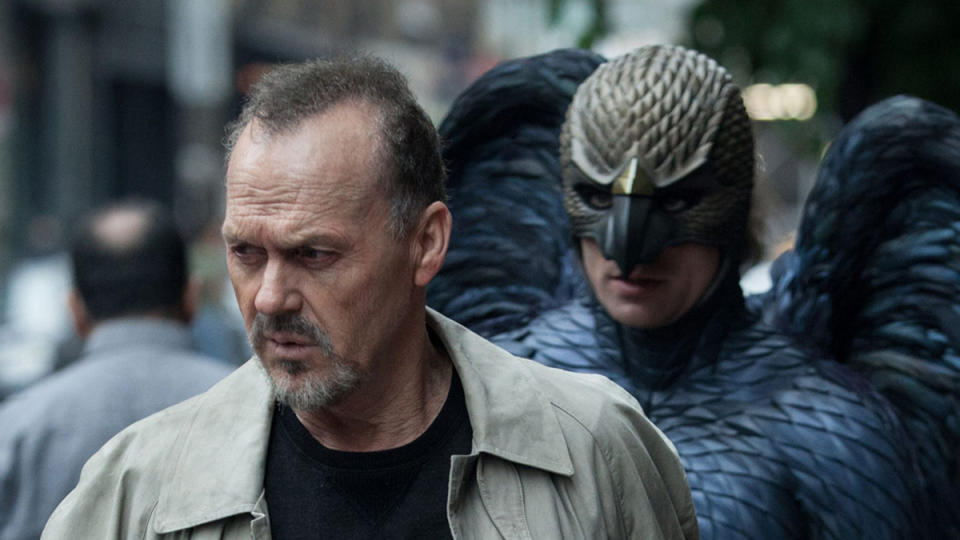
Birdman (Fox Searchlight)
Michael Keaton starring in a Alejandro González Iñárritu-directed feature about a disillusioned Hollywood actor who starred in a high-profile film trilogy in the ‘90s? Yes, please. Birdman is the best kind of dark comedy, the sort that makes a tongue-in-cheek mockery of its medium while still exploring the jadedness and melancholia that comes with it. It’s a meta movie, and Keaton is perfectly cast –– as are Zach Galifinakis, Emma Stone, and Edward Norton. Also, a black comedy like Birdman winning Best Picture was wholly refreshing. More, please! — C. Siregar
24. Oppenheimer (2023)
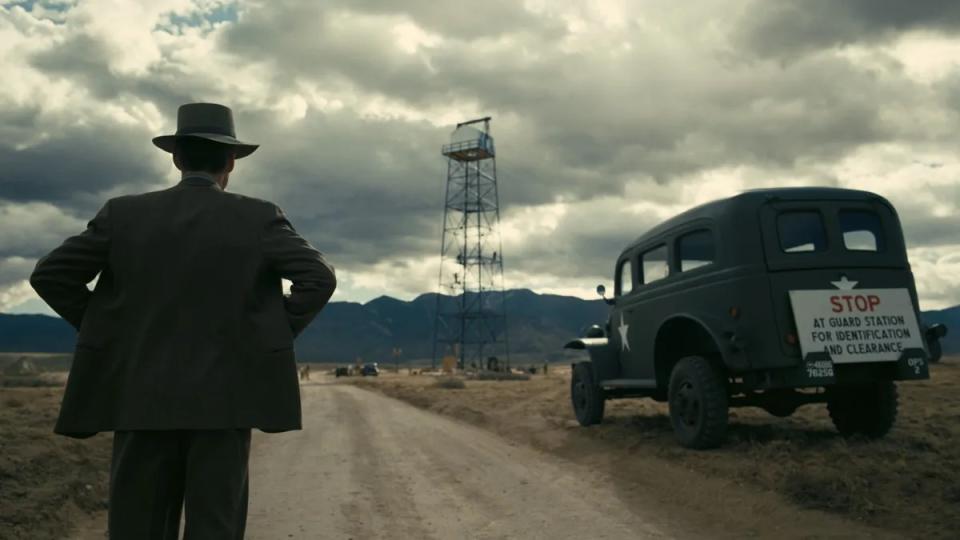
Oppenheimer (Universal)
In a very competitive year, Christopher Nolan’s Oppenheimer racked up big wins not just for best picture, but for categories like lead and supporting actor, directing, cinematography, and editing. It’s well-deserved attention, given the way the film builds to a remarkable crescendo over its three-hour runtime, taking the life and work of its titular physicist and finding the real potential for not just drama, but thrills along the way. The trial and testimony framework allows the film to plow through a significant chunk of history too, while setting up its true villain — not the Axis powers that drove the creation of the atomic bomb, but the American bureaucrats who punished Oppenheimer in the aftermath of its creation. The only reason Oppenheimer isn’t ranked even higher is that while it’s far from the only long movie on this list, its final hour still drags a little bit in comparison to what came before. (Also, that “Shiva, destroyer of worlds” scene is a bit silly.) Still, this is a winner to get excited about. — L.S. Miller
23. The Best Years of Our Lives (1946)
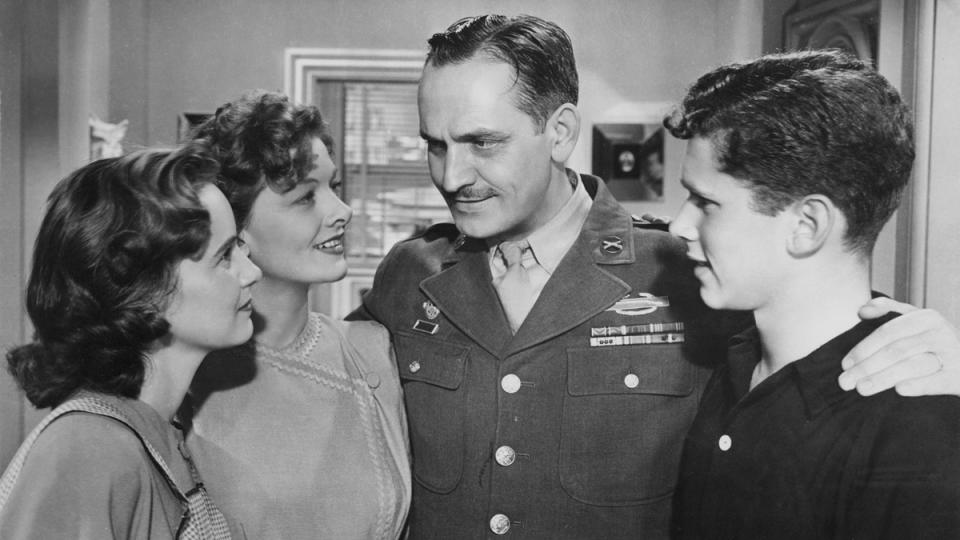
The Best Years of Our Lives (RKO Radio Pictures)
It’s a rare thing to see a post-World War II picture, at the height of the Hays Code, look so directly at the personal struggles of men returning from so-called noble conflict. But William Wyler’s The Best Years of Our Lives does so with remarkable clarity, charting the tribulations of three men who come back from the front and struggle to reintegrate into society. It’s most notable in Oscar history for awarding a Best Supporting Actor award to Harold Russell (a non-professional actor who, like his character, lost his hands in the war). But the picture as a whole feels so vital, reckoning with the bittersweetness of postwar American life for those who sacrificed so much to secure it. — C. Worthington
22. 12 Years a Slave (2013)
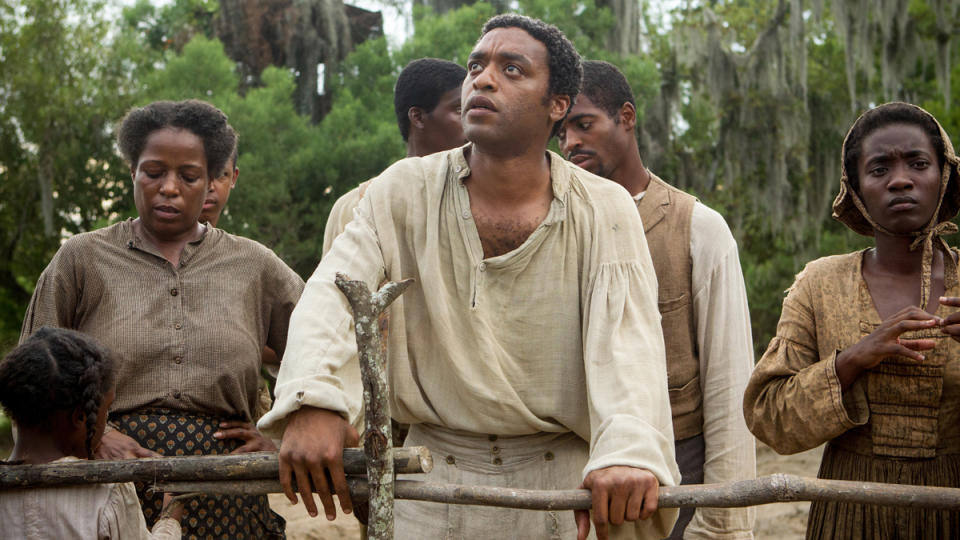
12 Years a Slave (Fox Searchlight)
Steve McQueen’s devastating portrait of American slavery is far from an easy watch, but he imbues 12 Years a Slave with cinematic brilliance, a remarkable cast, and a deep focus on composition. McQueen’s insistence on keeping the pace of the film relatively slow works well as he paints striking, lingering images, and when carnage ensues, it’s knotty, tense, and unforgiving. Not only was the film universally lauded, it introduced us to Lupita Nyong’o, whose breakout performance as Patsy earned her a well-deserved Best Supporting Actress trophy. — P. Ragusa
21. Everything Everywhere All at Once (2022)
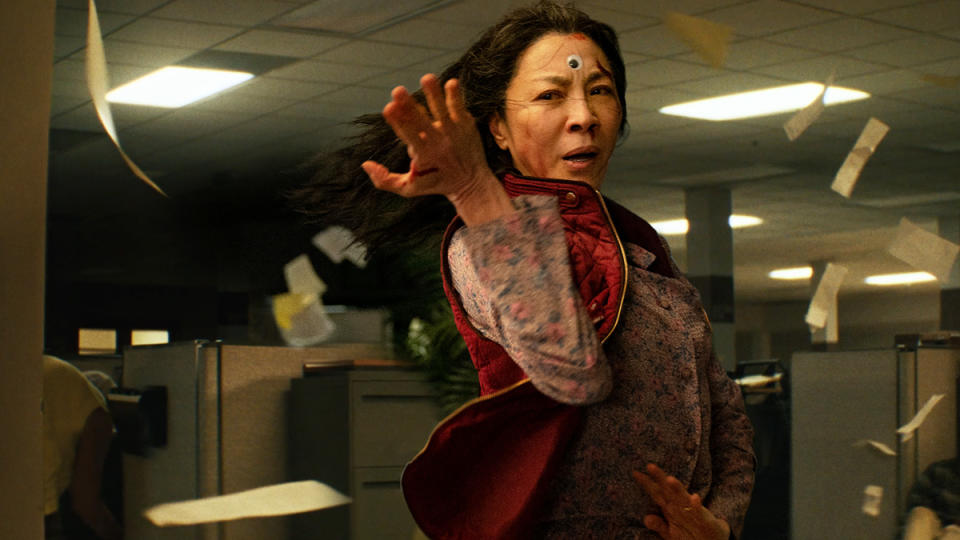
Everything Everywhere All at Once (A24)
Consequence‘s first official update to this list goes to a film close to our hearts, as we named Daniel Kwan and Daniel Scheinert our filmmakers of 2022 for their stirring, soulful, and wild story about a laundromat owner (Michelle Yeoh) whose world is blown apart by the revelation of the multiverse. Winning over an intimate Spielberg drama and an acclaimed war epic like the Netflix remake of All Quiet on the Western Front is an achievement for any film, but for Everything Everywhere All at Once, the real triumphs came in the acting categories: Ke Huy Quan completed his fairy tale comeback story with a win, Jamie Lee Curtis also won for supporting actress, and Yeoh herself was recognized for a role that used every facet of her talents. (If you’ve seen the film, you know just how many facets that encompasses.) In short, only history can say how well Everything Everywhere will age, but for right now it feels good to know that the Oscars got it right. — L.S. Miller
20. Amadeus (1984)
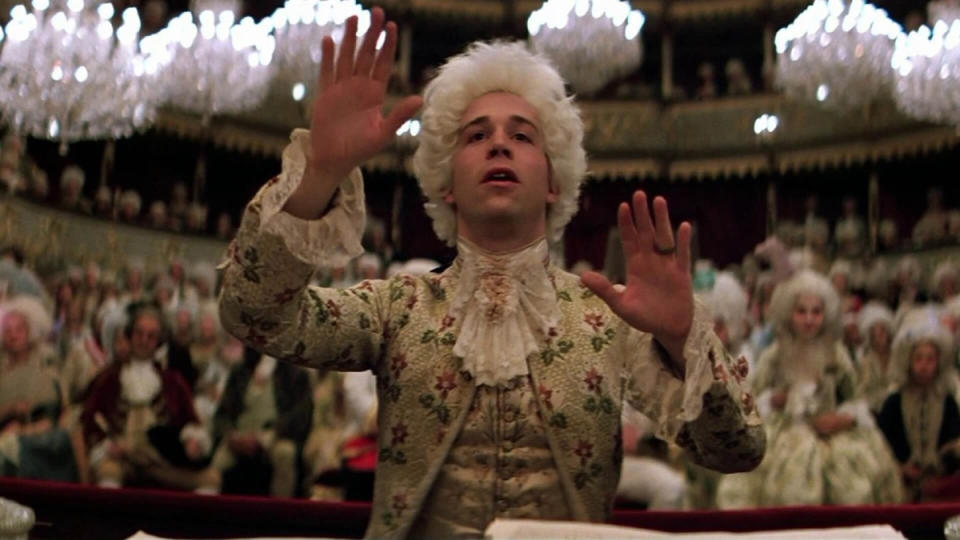
Amadeus (Orion Pictures)
It’s one thing to get a high number of nominations, and it’s another thing entirely to make good on those nominations and actually win. Amadeus, which secured eight of its 10 nominations, managed to pull off the latter. The epic tale of the fictionalized rivalry between Wolfgang Amadeus Mozart and Antonio Salieri captured the attention and hearts of the Academy. And, you know what, we’ll back them up on that call. Particularly when taking into account the film’s competition at the 1985 Oscars, Amadeus was not a controversial pick. – J. Krueger
19. No Country for Old Men (2007)
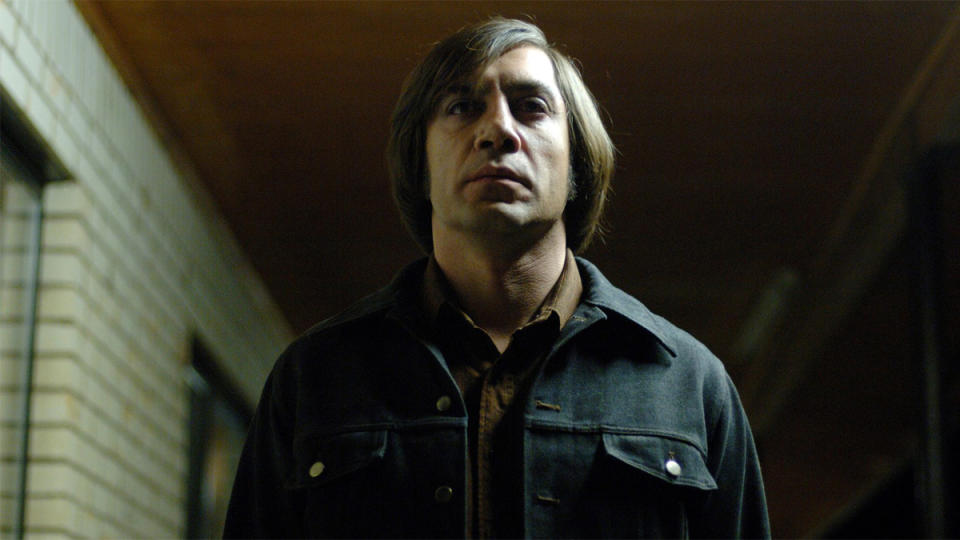
No Country for Old Men (Miramax)
When you think about films like Blood Simple, Fargo, and Raising Arizona, No Country for Old Men feels like the Coen Brothers operating at the peak of their cinematic powers, weaving together drama, mystery, and humor in a manner that only they could pull off. Josh Brolin and Tommy Lee Jones are excellent, as are Woody Harrelson, Kelly Macdonald, and Tess Harper, not to mention an all-time great villain, Javier Bardem’s Anton Chigurh. But beyond the individual performances, the Coens are able to coax a great deal out of the film’s true central character: the West Texas landscape. This is a visually stunning film, a movie made for people who love movies and the people who appreciate movie-making as a craft — arguably the best film by arguably the best filmmakers apart from Scorsese, Spielberg, or Kurosawa. — S. Dukoff
18. West Side Story (1961)
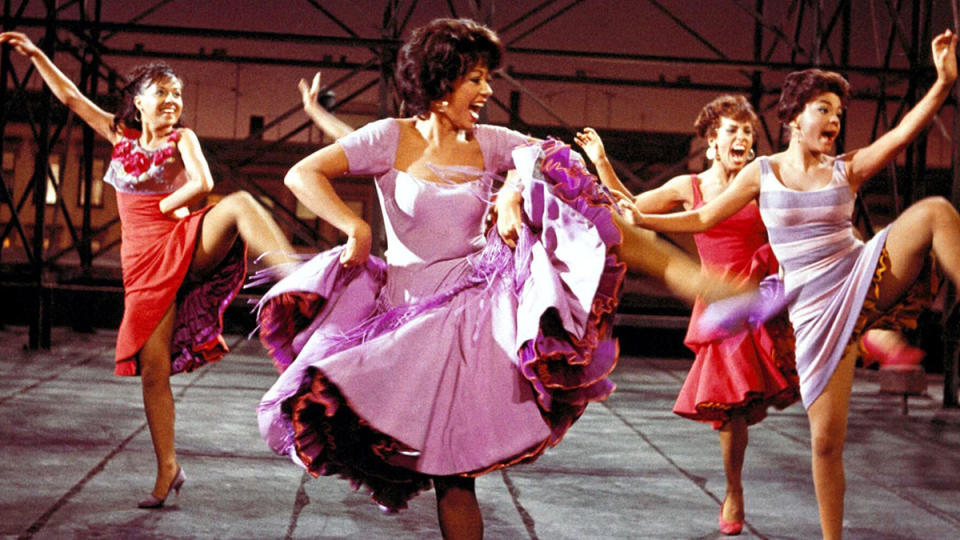
West Side Story (United Artists)
Is this the greatest movie musical of all time? Let’s have that conversation. West Side Story is one of the GOATs when it comes to Broadway, but this film adaptation directed by Robert Wise and Jerome Robbins brings this work of art to new heights. Gorgeously shot with cinematography by Daniel L. Fapp, West Side Story takes a timeless Romeo & Juliet story and transposes it onto the streets of New York City, where warring gangs the Jets and the Sharks compete for supremacy and fight over turf. There are so many layers to West Side Story, not to mention classic song-and-dance numbers that have become standards — Spielberg did his best to honor the original version with his recent adaptation, but there’s no touching the original West Side Story. — S. Dukoff
17. The Shape of Water (2017)

The Shape of Water (Fox Searchlight)
Guillermo del Toro’s films always have a romantic darkness to them, playing with elements of fantasy and magic against the limits of reality. In The Shape of Water, Elisa (Sally Hawkins) falls in love with a humanoid sea creature that had been captured at her Cold War-era government laboratory workplace. As she fights for his –– and eventually her own –– freedom from evil, the pair bond over their mutual loneliness and alienation from society (him, a fish-man; her, a shy mute). The term “Oscar bait” gets thrown around with certain movies; The Shape of Water is the antithesis to that sort of film, making its Best Picture win all the more worthy and thrilling. — C. Siregar
16. The Departed (2006)
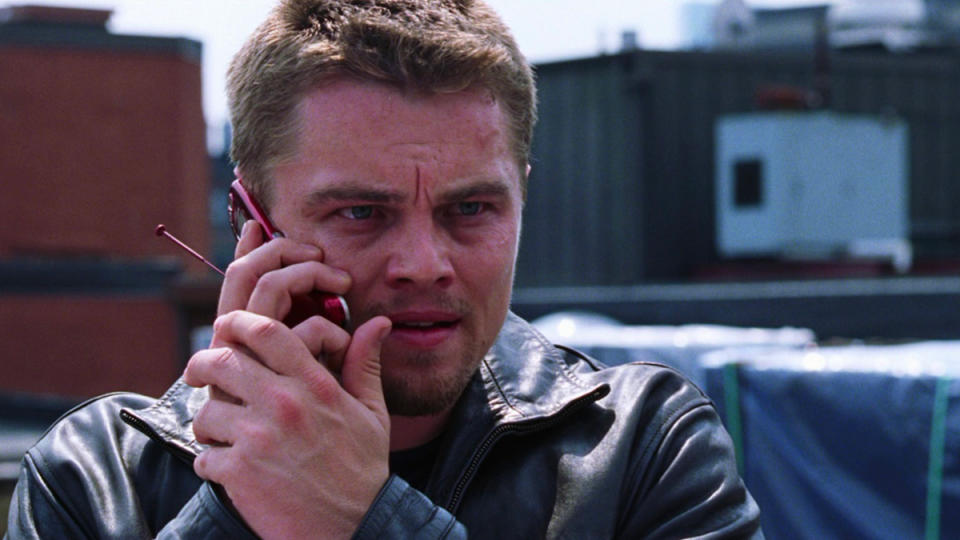
The Departed (Warner Bros.)
There are dozens of electrifying details about The Departed. The Boston accents (Try saying “Are you or are you not a cop?” in a Boston accent. It’s amazing). The father figure dynamics of Jack Nicholson’s mob character. The riveting structure and pacing. Both Mark Walhberg and Matt Damon (the ultimate Boston duo). It’s one of the best crime films ever made, and one of Scorsese’s most inspiring creations to date. The Departed holds many themes, but loyalty is a major one — there’s a significant moral grey area that gets larger and larger as the film progresses, and in the end, who you align yourself with can be at odds with who, or what, you’re fighting for. Over 15 years later, The Departed still takes us on an unforgettable ride, and leaves us wondering who we can really trust. — P. Ragusa
15. The Sound of Music (1965)
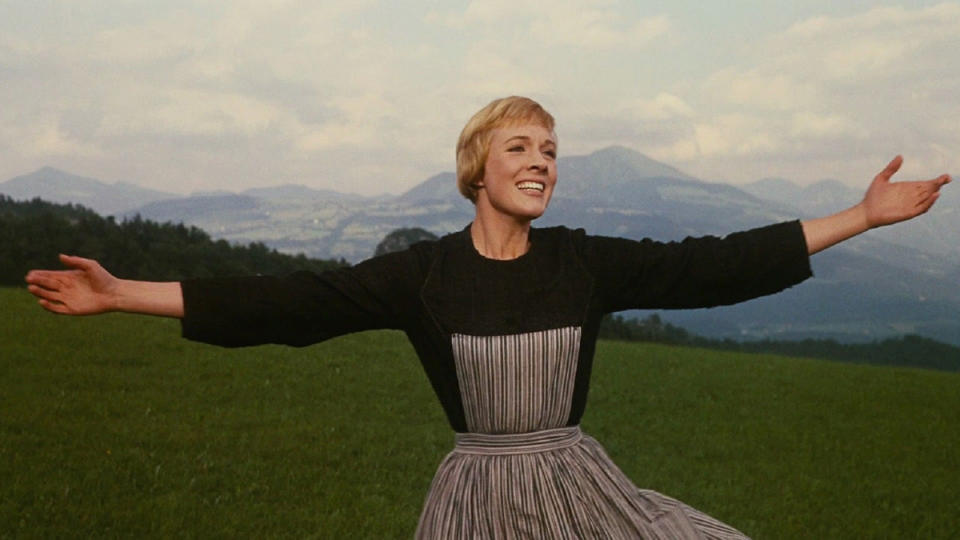
The Sound of Music (20th Century Fox)
Come for Julie Andrews starring as a rebellious young Austrian nun-in-training sent to work as a governess to the seven Von Trapp children, stay for a very handsome Christopher Plummer ceremoniously tearing the Nazi flag in two. The Sound of Music is a classic film in every sense of the term; the music, composed by Rodgers & Hammerstein for the original musical (itself loosely based on a true story) will likely stay ingrained in your brain forever, and the tale of a naval officer and his family as he is forced to flee from the Nazis is touching and powerful. It’s a worthy Best Picture winner, with plenty of heart and soul without ever veering into corny territory. — C. Siregar
14. Titanic (1997)
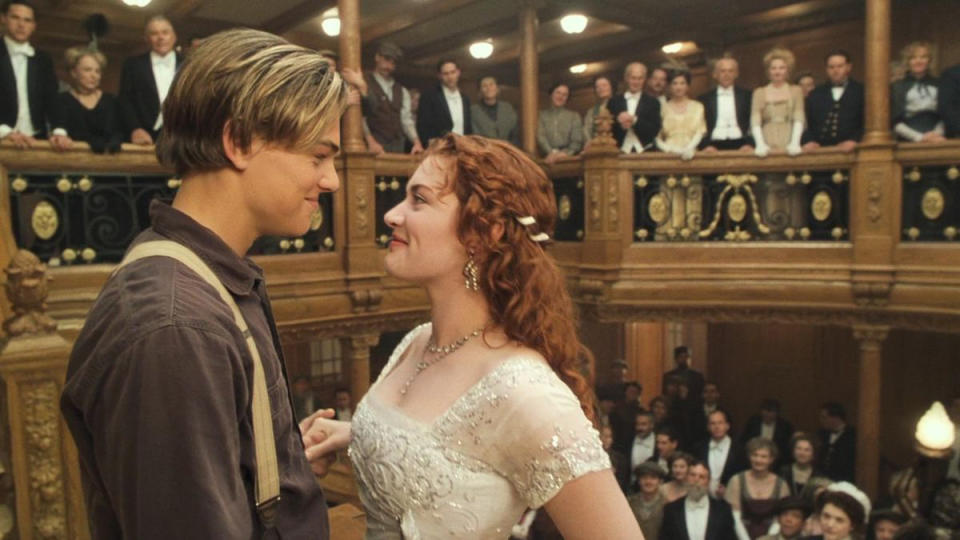
Titanic (Paramount)
There is a reason why we still debate the physics of whether or not Jack would have been able to survive the sinking of the Titanic decades after the premiere of the James Cameron film. With his 1997 epic, Cameron was able to weave an intimate story about a fictional romance that took place on board the doomed ship in a way that was so humanizing and personal; over a century after the actual ship set sail from Southampton to New York City, we still hold on so desperately to the notion that Jack could have survived the wreckage and lived happily ever after with Rose. That’s how Titanic showcases cinema at its very best, and how it’s certainly one of the most deserving Best Picture winners –– we try to cling on to a small truth that will bring us a sense of salvation, even though we know it was always going to be doomed. That’s what good films allow us to do. — C. Siregar
13. All About Eve (1950)
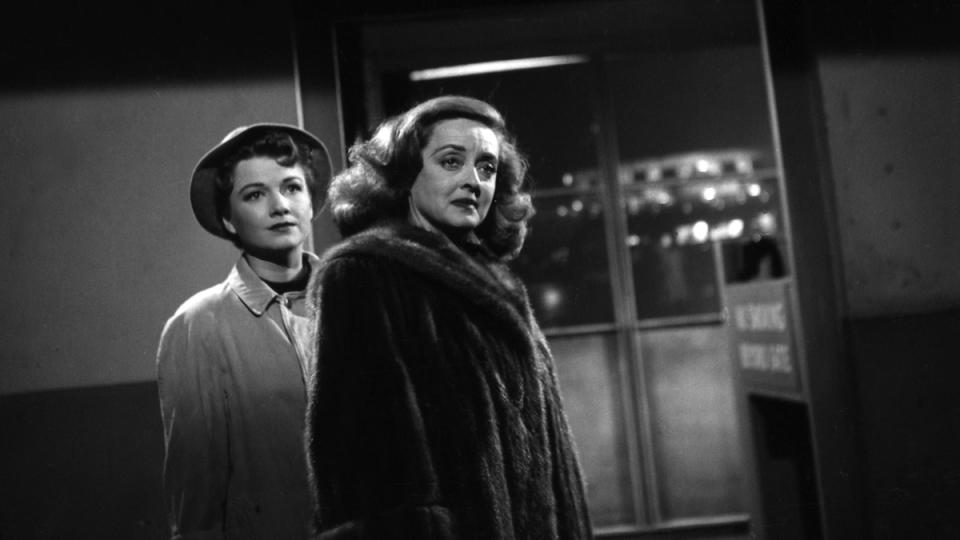
All About Eve (20th Century Fox)
Think of 1950s Hollywood and there’s a strong chance one of the first names that’ll come to mind is Bette Davis. Not only was she one of the most well-known figures at the time, but she truly had the range — her filmography spans over 100 acting credits, and All About Eve is one of the best. Coming out of the Golden Age of Hollywood, the story of aging and obsession is so well-structured that it more than holds up to this day; the film competed against the original Father of the Bride and another classic, Sunset Boulevard, ultimately emerging victorious and solidifying its place in the history books. — M. Siroky
12. The Lord of the Rings: The Return of the King (2003)
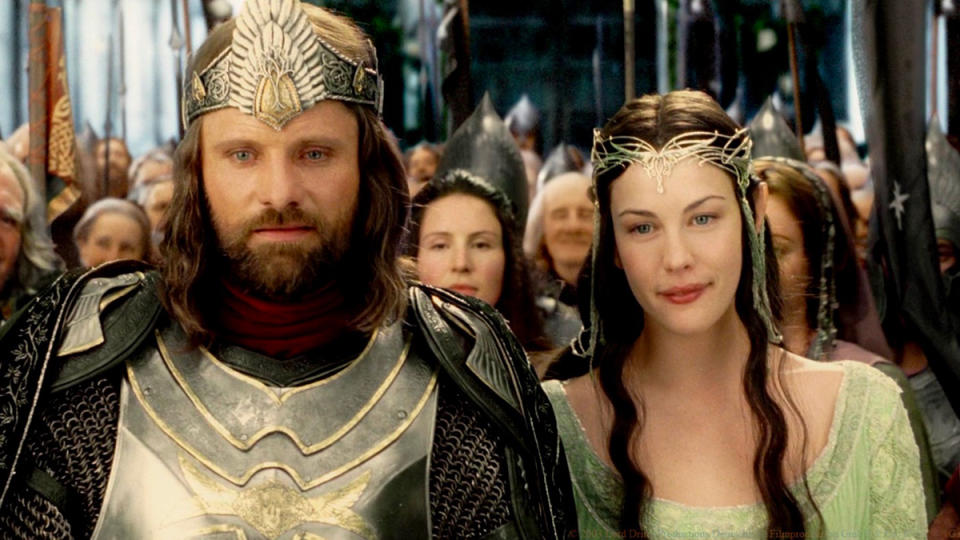
The Lord of the Rings: The Return of the King (New Line)
The 76th Academy Awards belonged to The Lord of the Rings: The Return of the King. The final entry in Peter Jackson’s original Tolkien trilogy took home all 11 awards for which it was nominated, a record tying it with Ben-Hur and Titanic. Which feels apt, because after The Fellowship of the Rings and The Two Towers lost the top prize in the previous years (to A Beautiful Mind and Chicago, respectively), RotK’s Best Picture win essentially served as an acknowledgment of the whole series. Even with three too many endings, the finale is a grand sendoff for one of the most influential, massive, and stunning achievements of fantasy storytelling ever put to film. — B. Kaye
11. Rocky (1976)
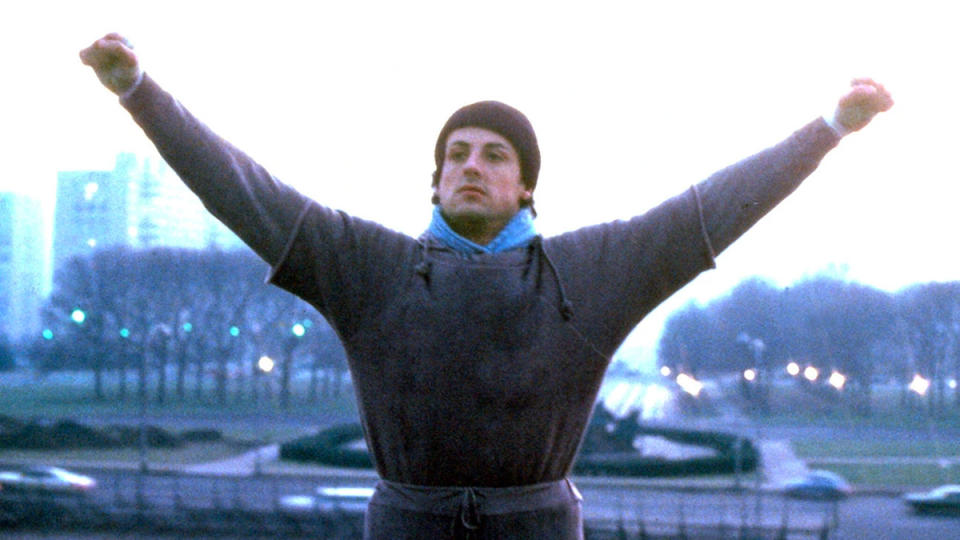
Rocky (MGM)
Spawning one of the most successful and long-running franchises in Hollywood history, this is the film that made Sylvester Stallone an icon. You have to give him a lot of credit for that: As the writer, star, and boxing choreographer of Rocky, Stallone gave himself an opportunity that it’s possible no other film would have. It may be a relatively straightforward hero’s journey tale, but the heart and relatability of Stallone’s title character make it impossible to not root for him. In retrospect, would you have rooted louder for Taxi Driver or Network to take home the Oscar? Maybe, but Rocky is still a knockout. — B. Kaye
10. The Apartment (1960)
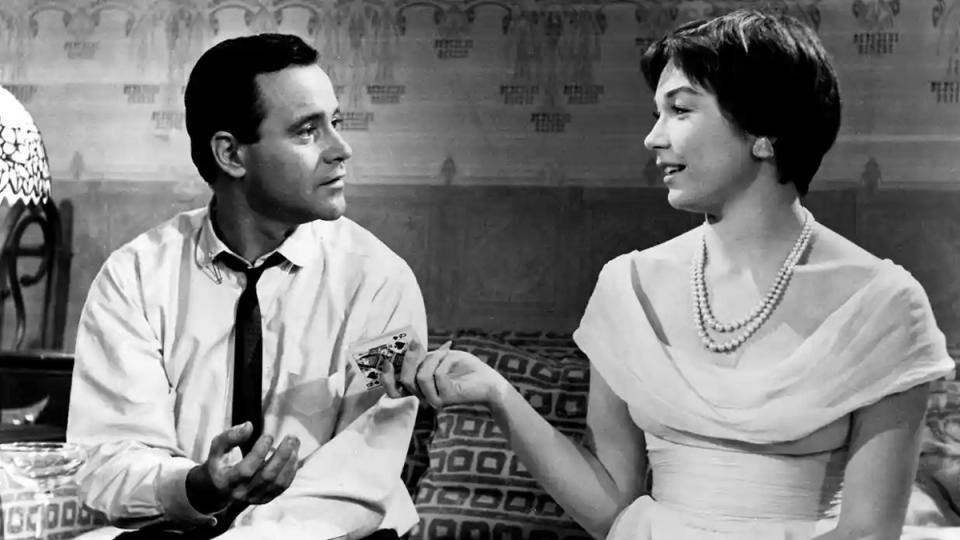
The Apartment (United Artists)
One of the best romantic comedies ever made, and one of the most acid-tongued Christmas movies of all time. Billy Wilder’s whip-smart script crackles in the hands of Jack Lemmon and Shirley MacLaine, two people thrown together by the whims of Lemmon’s selfish boss, only to find themselves bouncing between attraction and repulsion.
It’s funny, to be sure, but that sugar is balanced by the bitterness of melancholy, the relatable frustrations of people trying to get ahead in a world that forces them to work for a living. After this, a black and white film wouldn’t win Best Picture till Schindler’s List, but given its competition that year (including a John Wayne-produced war epic about the Alamo), it easily earned the statue. – C. Worthington
09. Lawrence of Arabia (1962)
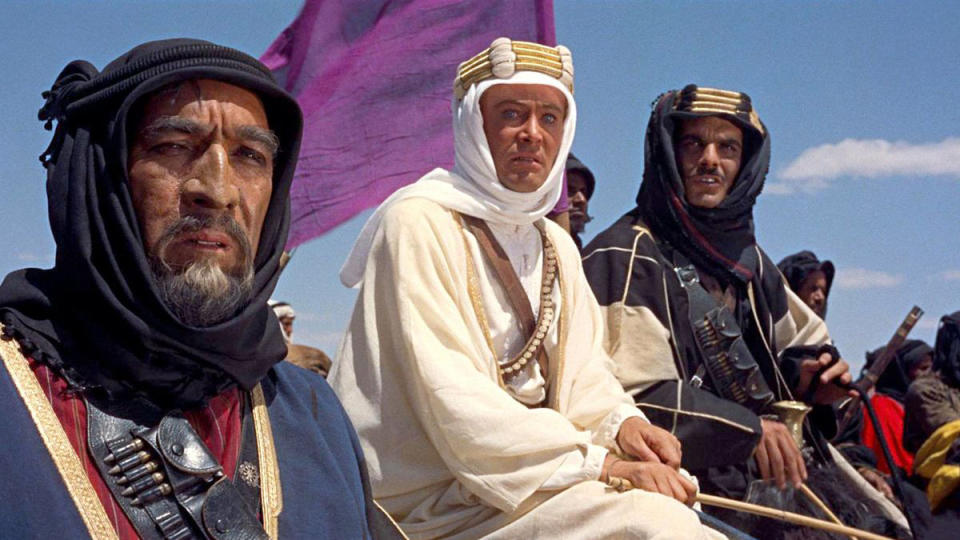
Lawrence of Arabia (Columbia)
Often hailed as one of the greatest films of all time, Lawrence of Arabia is a masterpiece of epic proportions, featuring stunning cinematography, a memorable score, and a powerful performance by Peter O’Toole in the lead role. The film is a grand portrayal of a pivotal moment in history, offering a complex character study of T.E. Lawrence and exploring themes of identity, loyalty, and the impact of war on individuals and societies.
It may be three-and-a-half hours long, but its historical accuracy and attention to detail, combined with its artistic vision, make it a timeless classic and a deserving winner of the Best Picture Oscar in 1963. Its competition that year included classics like The Music Man and To Kill a Mockingbird, but there’s no question of it deserving its seven wins at that year’s Oscars — especially the win for its iconic score. (You can probably hear it in your head right now, can’t you?) — P. Ragusa
08. One Flew Over the Cuckoo’s Nest (1975)
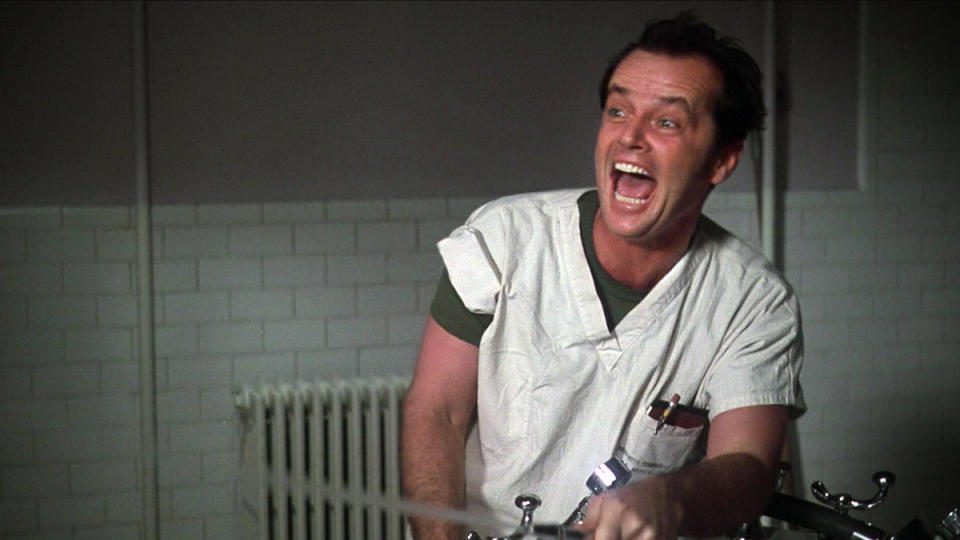
One Flew Over the Cuckoo’s Nest (United Artists)
For all of the (deserved) criticism the Oscars garner year after year, we have to admit that sometimes they get it right. Though, usually, when they do, there’s a blindingly obvious winner. And yet, the 1976 Academy Awards was anything but an easy decision. With Barry Lyndon and Jaws in the running, there were sound arguments for several of the night’s contenders. But if any film could win such a stacked year without it later becoming a historic misstep, it’d be One Flew Over the Cuckoo’s Nest.
Adapted from Ken Kesey’s novel of the same name, there’s a lot to appreciate about Cuckoo’s Nest: From the still-moving, powerhouse performances to its fairly progressive messaging, countless aspects of the film demand attention. Fittingly, Jack Nicholson won Best Actor, Miloš Forman won Best Director, Louise Fletcher won Best Actress, and the film took home both Best Adapted Screenplay and Best Picture. And yet, even with all of its accolades, it somehow eludes being an obvious, blow-out victor. I mean, freakin’ Stanley Kubrick was in the running. But One Flew Over the Cuckoo’s Nest simply oozes with ambition and near flawless execution – so much so that even the Academy couldn’t deny it. – J. Krueger
07. Moonlight (2016)
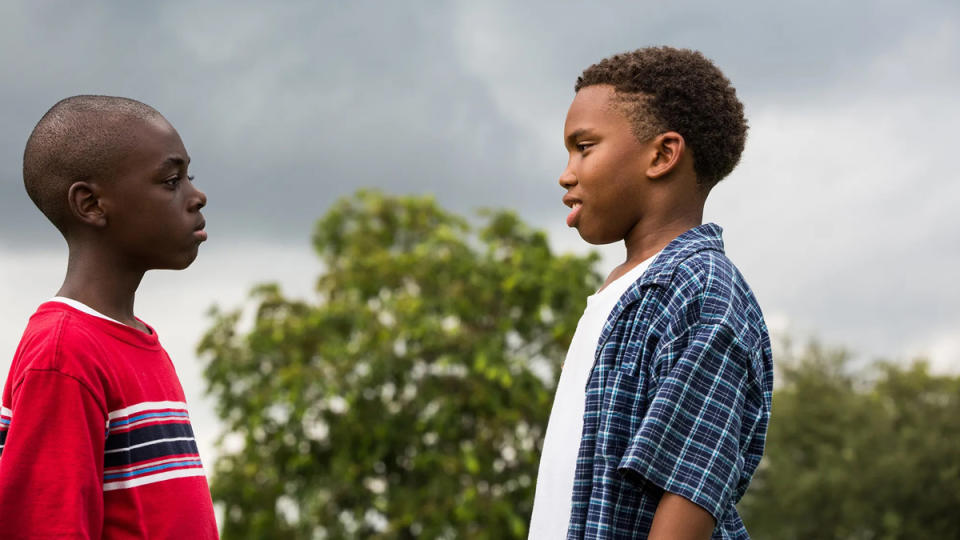
Moonlight (A24)
Barry Jenkins’ tender, gorgeous coming-of-age film was one for the history books. The 86th Academy Awards offered a very stacked Best Picture category — Moonlight was up against Arrival, Lion, Manchester by the Sea, and, memorably, La La Land. Even in a year stacked with some truly great options, though, Moonlight was the correct pick.
Many of the images that came out of Moonlight are the sort that sink their hooks in and don’t let the viewer go, months or even years after the credits roll, as the gorgeous lighting and colors throughout the film are just as memorable as the heart-wrenching story being told. There are also a number of memorable performances in Moonlight, with roles for Janelle Monáe and Naomie Harris to really sink their teeth into; the film was also responsible for introducing many viewers to Ashton Sanders and Jharrel Jerome, both of whom have gone on to acclaimed careers.
It’s Mahershala Ali, though, that most viewers will remember most of all — his tender, deeply authentic, and nuanced performance feels like an important take on masculinity in film, and will hopefully be remembered as such. In addition to Best Picture, Naomie Harris earned the Best Supporting Actress award and Ali walked away with the Best Supporting Actor statue, while Jenkins took home the Oscar for Best Original Screenplay. — M. Siroky
06. The Godfather (1972)
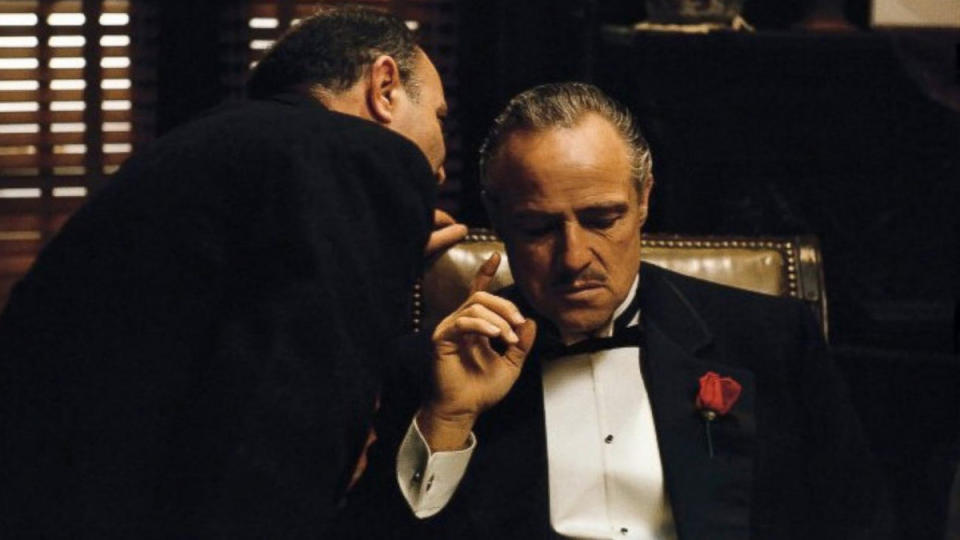
The Godfather (Paramount)
Some films are such integral parts of the cultural canon that they transcend cinema, becoming so deeply embedded that you can feel sure you’ve seen them despite never having actually sat down and pressed play. These sorts of touchstones are rare, and there arguably hasn’t truly been one since 1972’s The Godfather — and if there has, certainly not one as monumental.
Francis Ford Coppola turned the country on its head with this mob epic: Excavating the aspirational ideals of American success, he exhumed the blood-soaked corruption so often entombed under the rubble of loyalty and ambition. Michael Corleone’s descent into his dark destiny and Vito Corleone’s relentlessly earned fidelity offer chilling reflections of the American Dream, while also enduring as career-defining achievements for Al Pacino and Marlon Brando, respectively.
Beautifully shot, brutally rendered, and utterly entertaining, The Godfather represents a cinematic divide, with all of Hollywood designated as pre- and post-. Its approach to storytelling redefined gangster dramas; its haunting cinematography inspired productions for decades; its previously unachieved levels of success altered the way Hollywood did business. Some films may be ranked higher on this list simply because the term “best” is so subjectively defined, but few entries in all of cinema have had as profound an influence as The Godfather. — B. Kaye
05. Parasite (2019)

Parasite (NEON)
Bong Joon-Ho’s Parasite struck audiences with its bold class commentary laced with suspense and comedy. This was the first non-English-language film to win Best Picture, beating out nominees including 1917, Joker, Once Upon a Time in Hollywood, and Jojo Rabbit, while also receiving the awards for Best Director, Best Picture, Best Original Screenplay, and Best International Feature Film.
The film stars Song Kang-Ho, Jang Hye-Jin, Choi Woo-Sik, and Park So-Dam as the Kims, a low-income family who struggles in their pursuit of money. One by one, each family member manipulates their way into working for the wealthy Park family until a sudden discovery changes everything.
Bong’s immersive storytelling abilities masterfully guide the audience through this cutthroat satire, a striking and poignant dig at the absurdity of class division. Darkly funny and drenched with suspense, it is undoubtedly one of the most compelling films to ever win Best Picture. — G.A. Natanawan
04. Schindler’s List (1993)
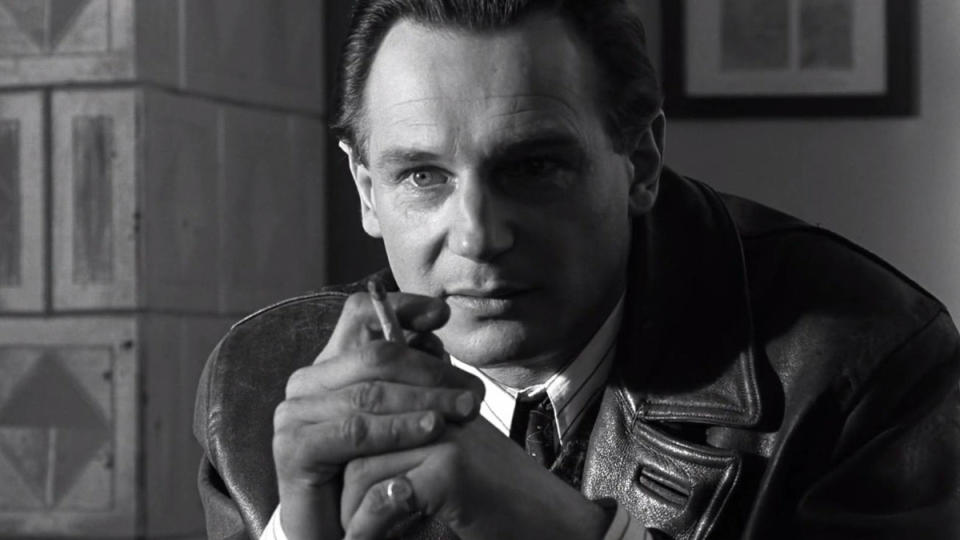
Schindler’s List (Universal)
There’s no need to put Schindler’s List in historical perspective — that’s the film’s job itself — but it’s interesting to put it in Spielberg perspective: Schindler’s List came between two Jurassic Park movies and just after Hook. We knew that Spielberg could deliver all kinds of effects-driven blockbusters, but this was a turning point for the acclaimed filmmaker: Never before had he confronted human evil and horror so directly, and even his latter entries come with the preamble, “Of course it’s powerful — he made Schindler’s List.”
That said, this is one of the hardest films on this list to actually watch. A devastating tale of hope during the Holocaust, it features single scenes, single lines, that can bring those most closely affected by it to tears. You can imagine what a challenge it was for Spielberg, a Jewish man, to actually make the picture, something he hesitated to do at first and eventually did for no pay, labeling any potential compensation “blood money.” He ultimately decided to take on the project so he wouldn’t give away “a chance to do something for my children and family about the Holocaust,” and ended up delivering not just one of the most defining WWII films ever, but one of the most defining works of cinema at large. — B. Kaye
03. The Silence of the Lambs (1991)
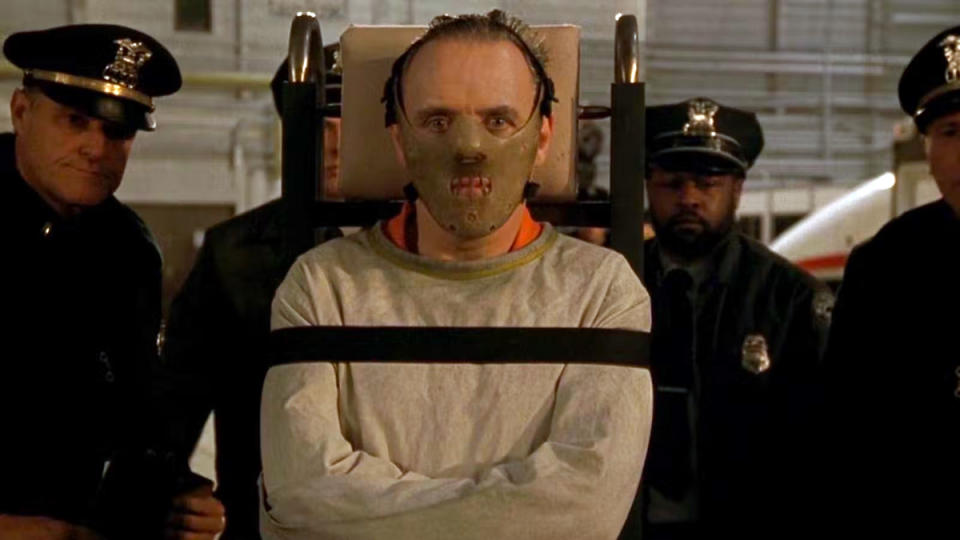
The Silence of the Lambs (Orion Pictures)
Horror is very often snubbed by the Academy Awards — ask anyone who has seen Toni Colette’s phenomenal performance in Hereditary whether she should have at least been nominated, and they’ll probably tell you yes. But in 1991, the Academy rewarded Jonathan Demme’s chilling opus The Silence of the Lambs with wins in all five central categories — the third and most recent film to achieve such a significant sweep.
But Silence of the Lambs is not merely a horror film, nor is it a dense drama that these days would be considered “Oscar bait.” Instead, the Richard Harris adaptation is a deftly crafted meditation on the psychology of evil, occasionally visually shocking and often thoughtfully written. Jodie Foster and Anthony Hopkins provide a masterclass in navigating power dynamics; the way Hopkins’ Hannibal Lecter continues to control Foster’s Clarice, even as they’re separated physically, is expertly orchestrated.
It likely won’t be the last film to win Best Picture with a subject matter so intense, but it will always serve as one of the most significant horror hybrids in the history of film. — P. Ragusa
02. Casablanca (1943)
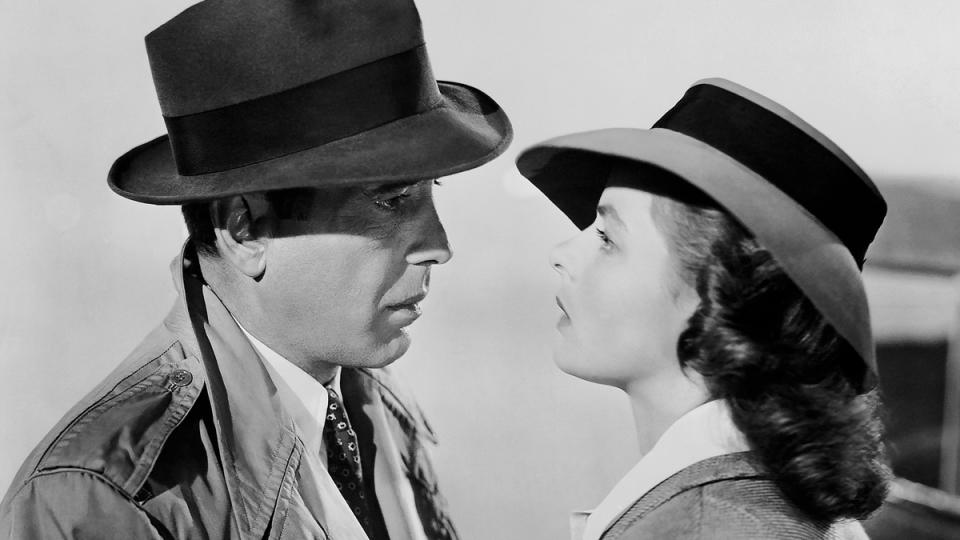
Casablanca (Warner Bros.)
While there were some solid nominees in the 10-film Best Picture lineup that year — like Ernst Lubitsch’s Technicolor Heaven Can Wait and the star-studded war epic For Whom the Bell Tolls — none of them have enjoyed Casablanca’s cultural relevance over the years.
But the thing we don’t mention enough about Casablanca is that yes, it’s one of the greatest movies ever made about World War II, but it’s also damn funny at points, packed with sparkling dialogue courtesy of writers Julius J. Epstein, Philip G. Epstein, and Howard Koch that star Humphrey Bogart in particular delivers with delicious drollness. There are the big iconic lines: “Here’s looking at you kid” or “Louie, I think this is the beginning of a beautiful friendship,” but also consider “I’m shocked! Shocked to find that gambling is going on in here,” and “I came to Casablanca for the waters… I was misinformed.”
That’s just one facet of this film to appreciate, which remains an unforgettable story about what it actually means to fight for a cause, or for other people. Casablanca deserves to be celebrated more for how watchable and witty a film it is; while it might have just celebrated the 80th anniversary of its release, it still feels timeless and modern. Put it in a time capsule, send it into space, hang it in the Louvre. It deserves universal appreciation. — L.S. Miller
01. The Godfather Part II (1974)
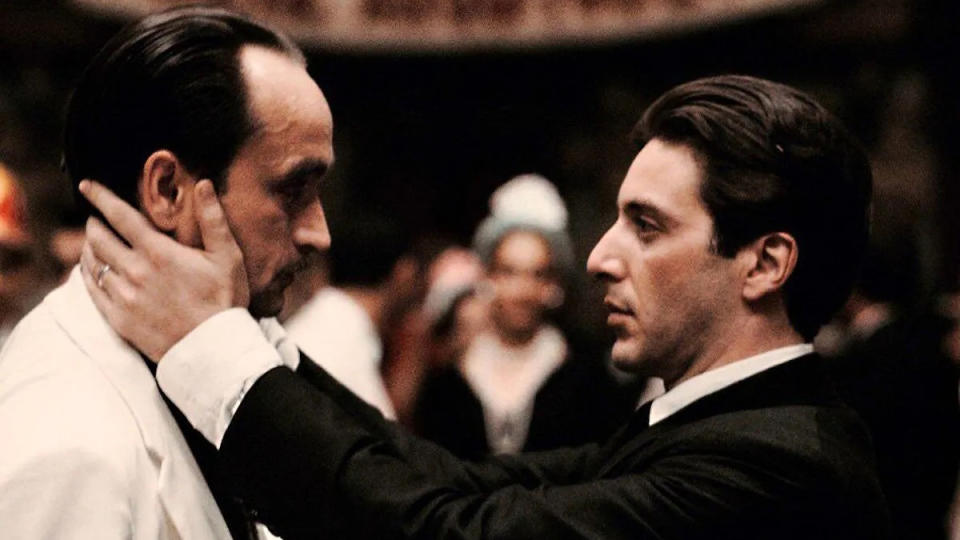
The Godfather Part II (Paramount)
Francis Ford Coppola’s gangster masterpiece remains just that, after all these years — a gosh-darned masterpiece. So many sequels struggle to even live up to what came before, but Francis Ford Coppola and Mario Puzo, just a heartbeat after the success of The Godfather, figured out not only how to keep the Corleone saga going, but create something even more astounding.
A huge factor in this is the split narrative, which chronicles Michael Corleone’s (Al Pacino) continued quest for power while also flashing back to a young Vito Corleone (Robert De Niro) as he makes his way as a young immigrant in America. Vito’s early days make Michael’s storyline all the sharper, as the idea of family loyalty is put to the test thanks to poor dumb Fredo (John Cazale); if you were to rank the top 10 most iconic screen kisses of all time (not in a Princess Bride way), Michael’s kiss of death would be high up on the list.
At the time, The Godfather Part II wasn’t received as warmly as the first by critics, but it’s been reappreciated in the years since, and even at the time of its release dominated the Oscars, winning Robert De Niro his first Oscar for Supporting Actor as well as Best Director, Best Adapted Screenplay, Score, and Art Direction. It beat out Chinatown and Coppola’s own The Conversation for the top prize as well, two films that easily could have won Best Picture in a different year. As Michael would say, Part II didn’t have to wipe everybody out. Just its enemies. — L.S. Miller
Every Oscar Best Picture Winner Ranked: From Argo to The Life of Emile Zola
Consequence Staff
Popular Posts
Billie Eilish Performs “What Was I Made For?” at the 2024 Oscars: Watch
Ryan Gosling's Performance of “I’m Just Ken” Was As Incredible As We Hoped It Would Be: Watch
Dakota Johnson Vows to Never Do Anything Like Madame Web Again
Crazy Town Members Beat Each Other Up in Bloody Fight After Disastrous Gig
On Deeper Well, Kacey Musgraves Plunges into a Pool of Self-Reflection: Review

